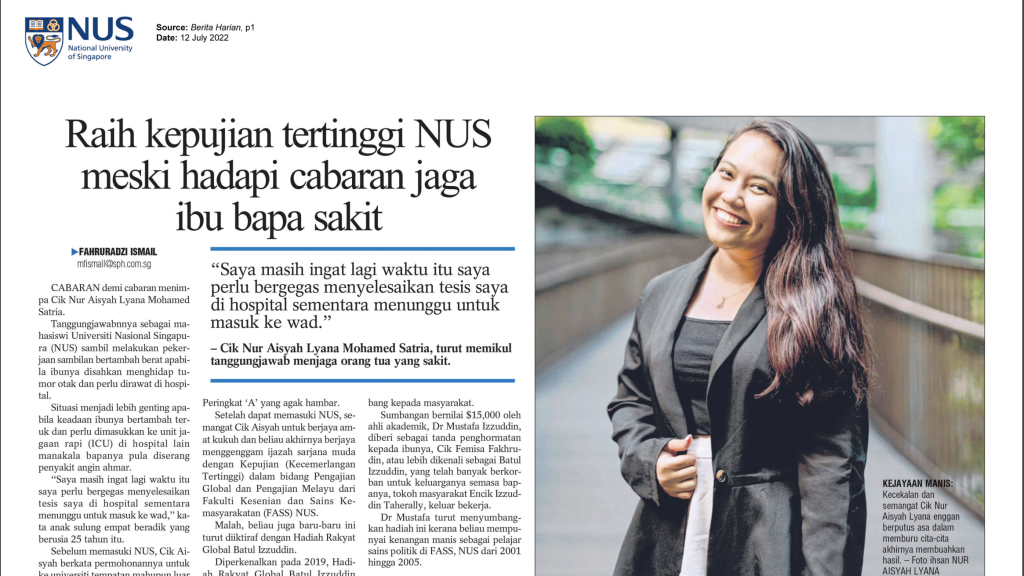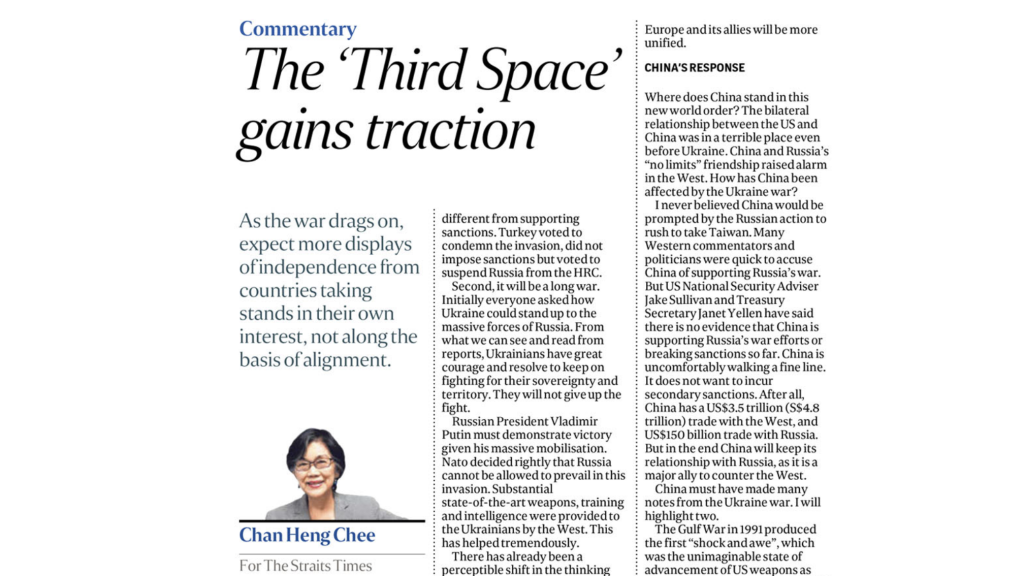News
Hamizah Myra Bounced Back after Losing her Father, Getting Pregnant at 17, and Graduates as Valedictorian
IN BRIEF | 10 min read
- A feature on FASS and NUS alumna Hamizah Myra (NUS Global Studies and NUS Sociology '24).
Click through image below to read this piece.
This story first appeared in Suria News Online and NUSNews on 26 July 2024.
NUS Seafarers Take to Sea Once Again on Voyages to Indonesia’s Anambas Islands
IN BRIEF | 15 min read
- The NUS Seafarers headed out to the Anambas Islands in Indonesia on two voyages in April and May, exploring diverse communities, enterprises, and environments scattered across the archipelago.
A second wind filled the sails of the schooner Four Friends for the first time in three years since the COVID-19 pandemic, as it glided through turquoise waters teeming with marine life.
Supported by the NUS Global Relations Office’s Study Trips For Engagement & EnRichment (STEER), which immerses students in diverse cultural and socio-economic environments of fast-evolving regions through experiential site visits, the NUS Seafarers took to the sea once more on two voyages to the Anambas Islands in Indonesia.
The NUS Seafarers is a close-knit community united by a love of nautical adventure, venturing out to the seas and communities of Southeast Asia aboard traditional sailing vessels with zero carbon footprint since 2017.
Led by Captain Warren Blake and Associate Professor Martin Henz of the Department of Computer Science at NUS Computing, the momentous revival of the NUS Seafarers saw the two groups of voyagers sail, hike, abseil, kayak, and snorkel their way across the Anambas archipelago over the course of 12 days each from 29 April to 10 May and 9 to 20 May, exploring its rich culture, history, economy, and natural environment from the unique perspective of a seafarer.
“NUS Seafarers voyages are holistic experiences that combine communal living, structured and ad hoc learning projects, and adventure learning. The vessel serves as a safe learning space from which learning journeys are planned and executed and where reflection and documentation take place,” Assoc Prof Henz, who is also a Residential Fellow at King Edward VII Hall, explained. “It is fascinating to observe how communities of learners spontaneously form on these voyages to tackle challenging learning objectives.”
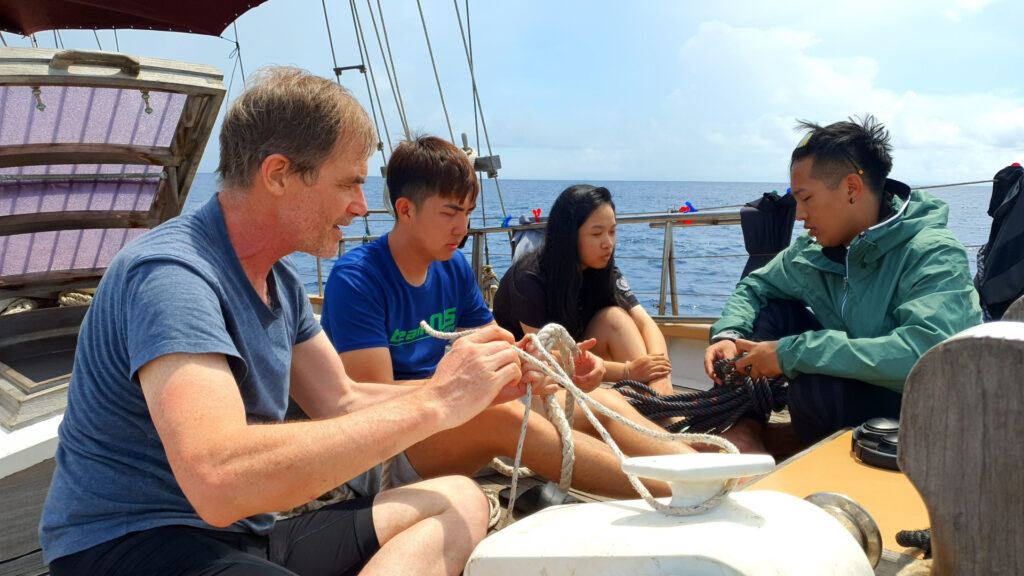
The crew comprised NUS students, alumni, and staff from all walks of life, hailing from faculties as diverse as the NUS Faculty of Arts and Social Sciences, School of Computing, College of Design and Engineering, and Yong Loo Lin School of Medicine.
Visiting a wide range of communities, enterprises, and environments throughout the archipelago, the crew derived a well-rounded understanding of the region from the expedition. NUS News tags along to find out what the voyagers learn from the rich experiences, interactions, and connections as they embark on the adventure of a lifetime!
Adapting to the Rhythms of Life at Sea
Plying the ropes, sails, and ship's helm by day, and getting regaled over dinner with gripping swashbuckling accounts of shipwrecks and shark encounters from the Captain by the light of the moon, the voyagers quickly took to life onboard the schooner, gaining their sea legs and acquiring experience and confidence in the manifold aspects of living at sea.
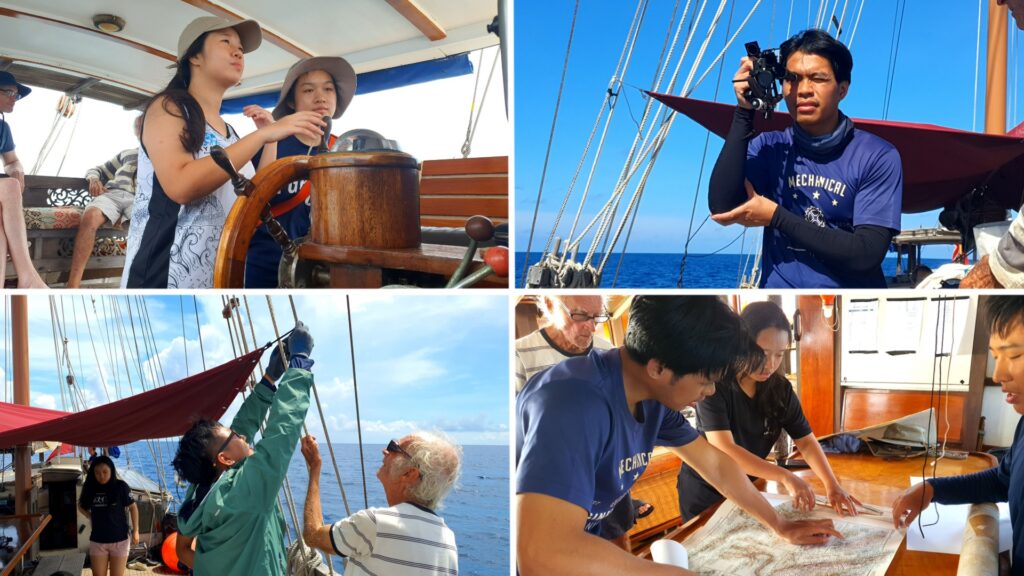
Over the course of ten days, the crew learnt a host of nautical skills on the fly—steering the ship, manning the ropes, tying nautical knots, manually raising the anchor, employing basic cartography to chart the ship’s course, and taking depth-sounding readings and records.
They also received a crash course in celestial navigation, including hands-on experience with using a sextant and the identification of significant constellations like the Big Dipper and Southern Cross to get their bearings out at sea. Blessed with clear skies and the absence of light pollution on most nights out at sea, the voyagers stargazed to their hearts’ content, treated to the sight of swathes of constellations, and even Venus and the Milky Way.
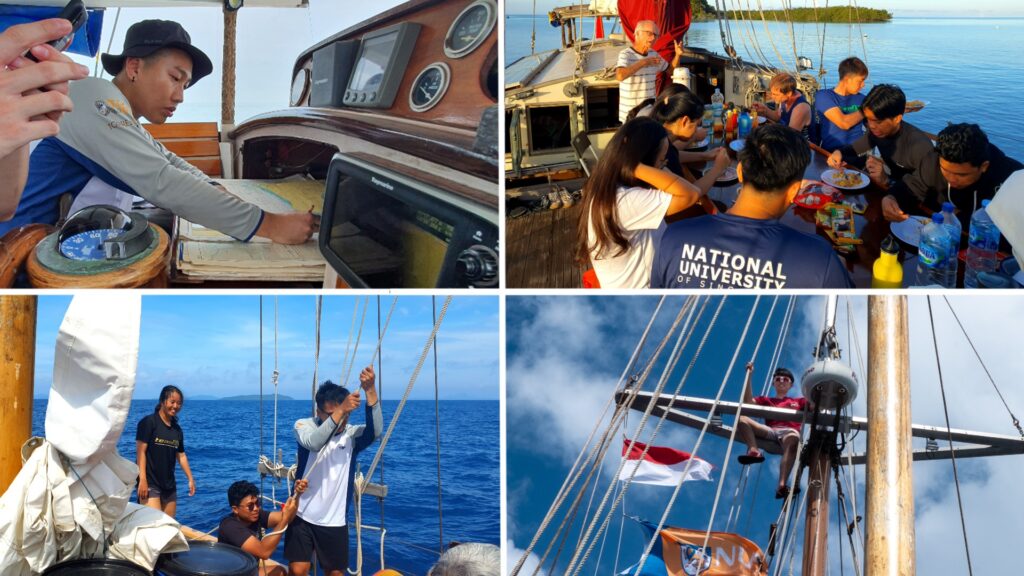
The journey was not all smooth sailing however— the voyagers contended with various challenges that took the wind out of their sails, such as a jammed rudder and anchor winching mechanism, and other small mishaps that they had to work together to overcome. Confronted with limited freshwater supply and limited electricity generated from the ship’s battery, they also gained a heightened appreciation for finite resources.
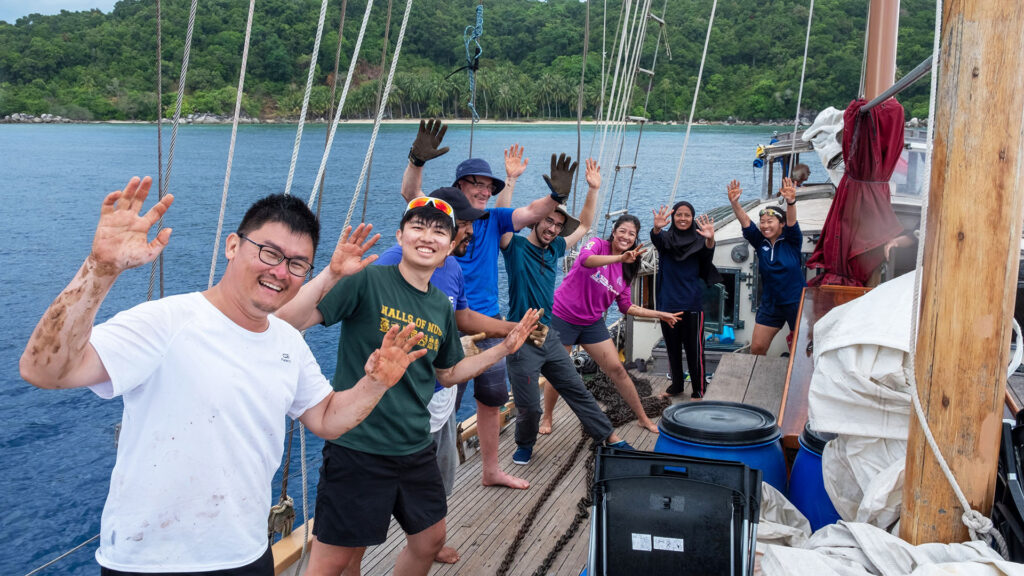
“One of the biggest challenges we faced was sailing the ship, an activity that requires accurate coordination, quick decision-making, and effective cooperation. The changing wind conditions and navigational challenges necessitated a cohesive team effort,” shared Tong Xinyao, a Year 1 Computer Science major.
“Through effective communication and a willingness to learn and help, we gradually grasped the basics of sailing. It was really fun and rewarding to see the sails up and enjoy the breeze on the deck after the hard work!” she quipped.
Connecting with Cocal communities: A Window into a Way of Life
The voyagers made a stop at Air Sena, a seaside village of stilt houses inhabited by the descendants of the Orang Laut, a nomadic seafaring people with a proud heritage of nautical knowledge and skill, and a resourcefulness in eking out a living from the sea.
Welcomed by the village chief Keng Lei, who led the voyagers on a tour through the village and graciously hosted them in his own home, the crew gleaned a first-hand understanding of the culture and economic structure of the local community.
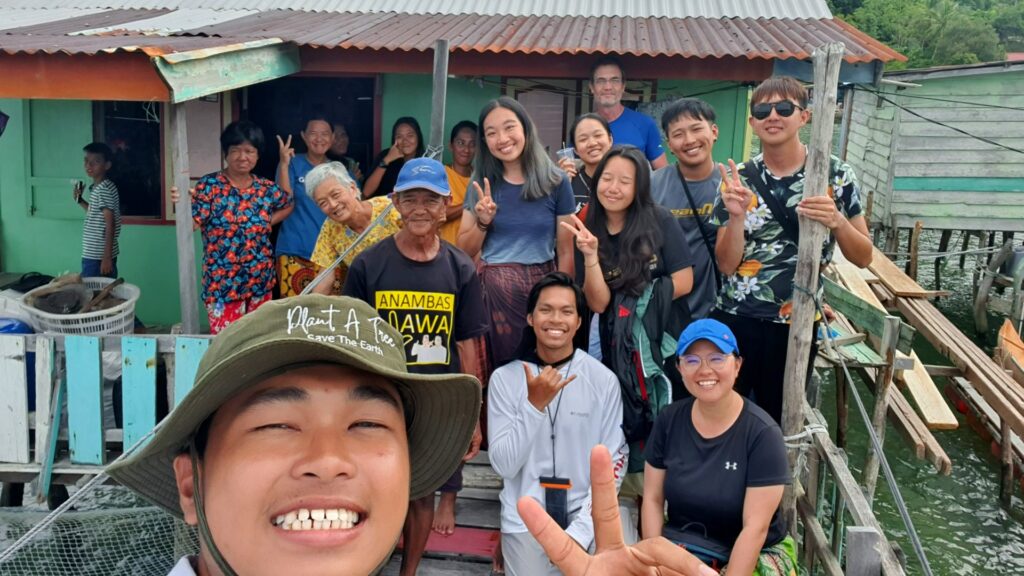
Despite the communication barrier between the villagers and most of the crew, the locals’ palpable warmth and hospitality quickly broke the ice. The experience exploring the village and interacting with the villagers as the latter went about their daily lives opened a window into a way of life vastly disparate from the fast-paced urban existence the voyagers lead.
“I was surprised by how much of my perception of Indonesia was comprehensively challenged, while also teaching me so much more than I could on my own through books and the internet. Each island we visited possessed a unique culture, history, economy and perspective that stretched back more than hundreds of years,” Muhammad Harriz Adry Bin Ridzuan, a Year 4 major in Mechanical Engineering, reflected. “The villagers of Air Sena are good people with a rich history, who can teach us plenty about how to live contentedly and treat others with kindness in our work.”
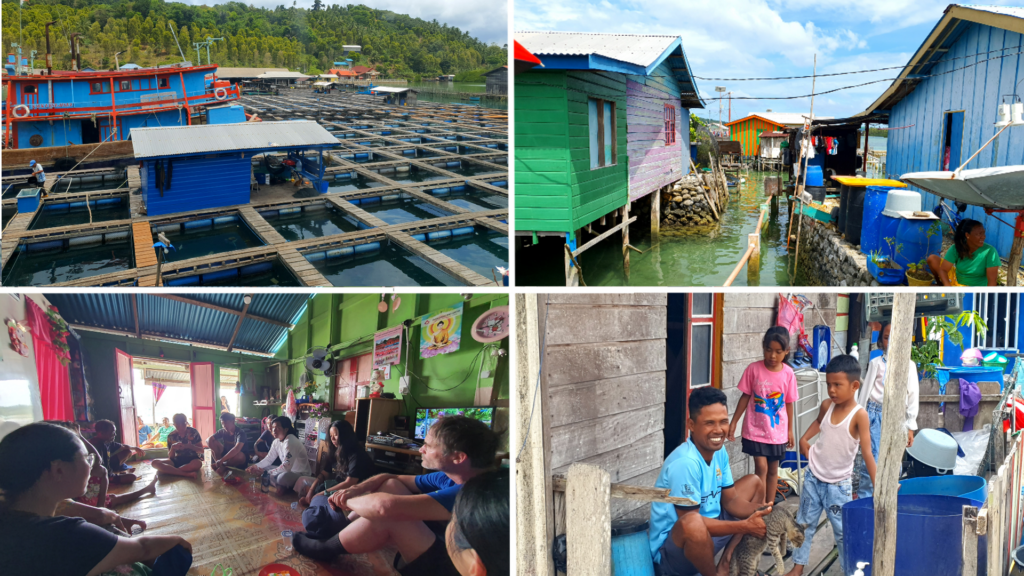
Through conversing with Keng Lei and other locals on the ground, the voyagers also gained valuable insights into the various aspects and nuances of kampong life, from culture and history to economy and family structure. Of particular interest was the village’s unique religious composition—an agglomeration of Buddhists and Christians—thanks to its history as a Chinese settlement generations ago, before Christian missionaries arrived in the colonial era.
“Some of them speak Mandarin Chinese, and others speak Chinese dialects like Hokkien and Cantonese. What is more interesting is they have been partly assimilated into Indonesian culture, mainly speaking Bahasa Indonesia,” Timothy Timuari Li Zhi, a Year 4 major in Global Studies and Southeast Asian Studies, observed. “The Chinese temple we visited also featured a fusion of the Chinese deity Tua Pek Gong with local Indonesian influences, resulting in a fascinating syncretism between Chinese culture and Indonesian culture.”
Besides the cultural aspects of Air Sena, the voyagers also witnessed the village’s economy in action, from small-scale fishermen heading out for the day’s work to the village’s extensive floating kelongs that farm species like grouper and Napoleon wrasse as part of its growing fish export enterprise.
Living Biodiversities: A Study in Reef Ecology
No voyage would be complete without experiencing the flora and fauna of the region. The voyagers had ample opportunities to kayak, swim and snorkel in the crystal-clear cerulean waters of the Anambas Islands, located within the famed Coral Triangle that supports one of the richest marine biodiversities in the world.

Immersed in the world beneath the waves, they witnessed first-hand the extensive, thriving coral reefs of Tokong Malangbiru and Sagudampur, and the breathtaking smorgasbord of marine life they harbour. Among the numerous coral species spotted around islands and in lagoons were brain coral, staghorn coral, and table coral, mesmerising swathes of shapes and colours through which residents of the reef darted.
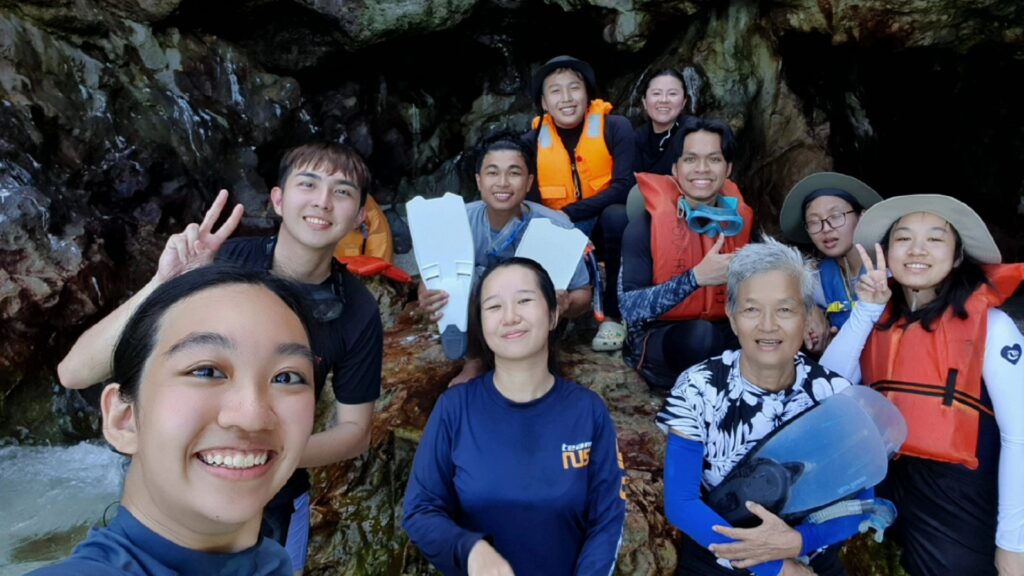
From blue sea stars, giant clams and anemones, to parrotfish, striped surgeonfish, clownfish, and multiple species of butterflyfish and damselfish, the voyagers observed the vibrant underwater ecosystem up close, and were even accosted by a particularly inquisitive longfin batfish. The experience was a first for some voyagers, cultivating an understanding and appreciation of the vast biosphere and the complex symbiotic interconnections between its various components.
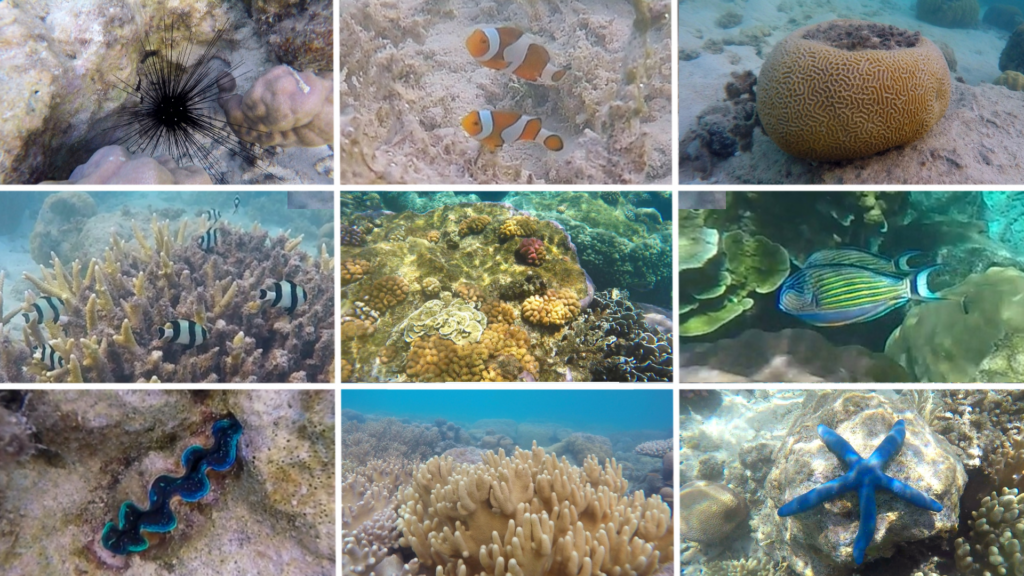
Besides being immersed in the beauty of reef ecology, the voyagers came up close with the sobering realities of climate change and global warming at some snorkelling locations—bleached, desolate reefs covered with detritus and devoid of the colour and splendour of the healthier reefs. Accompanied by Dedi Kurniawan, a Marine Science student from Universitas Maritim Raja Ali Haji (UMRAH) who shared his extensive knowledge on coral reefs, they also learnt about the damage that destructive fishing techniques such as trawling inflict on the ocean floor, and other threats to marine and reef biodiversity.
This is the first instalment of a two-part series on the NUS Seafarers “Understanding Anambas” STEER voyage and first appeared in NUSnews on 20 July 2023. Stay tuned for the second instalment of the voyagers’ experiences on the high seas and read more about the NUS Seafarers, or check out their YouTube channel!
NUS Open House: More than 7.7M Visitors Drawn to Action-Packed Showcase over 10 Days
IN BRIEF | 25 min read
- NUS Open House 2023 saw a strong showing by visitors eager to find out about the University’s academic programmes, as it returned in from 25 February to 6 March. Some 7.71 million visitors attended the physical and online showcase which involved 3,071 faculty and staff, students and alumni.

NUS Open House 2023 saw a strong showing by visitors eager to find out about the University’s academic programmes, as it returned from 25 February to 6 March. Some 7.71 million visitors attended the physical and online showcase which involved 3,071 faculty and staff, students and alumni.
Kicking off the 10 action-packed days were the informative virtual talks, webinars, and social media sessions. The on-campus event on 4 March saw packed crowds at the programme booths, talks, special classes, campus tours, student life performances and residential venues despite the heavy downpour. Prospective students gained valuable insights from faculty members, explored the University’s extensive global opportunities, as well as its diverse entrepreneurship platforms and lifelong learning courses, giving them a comprehensive overview of what NUS has to offer.
“I really enjoyed meeting the professors and students who are from the courses I'm interested in as I gained many insights from them on life in NUS and the various possibilities that are open for exploration,” said prospective student Karthika Warrier, an alumna from Raffles Institution who is considering applying to NUS Computing or the College of Humanities and Sciences (CHS).
Jasmine Chiam, an alumna from Nanyang Junior College (NYJC) who is interested in applying to CHS and NUS College, agreed. “The programme was well-run despite the fact that it was raining,” she said. “I felt that it was well-curated for students with different interests.”
A draw for many prospective students were CHS, the newly launched NUS College, and the College of Design and Engineering (CDE) – the University’s recent interdisciplinary pathways aimed at meeting the evolving demands of the workforce.
Addressing Shared Challenges with the Humanities and Sciences

CHS, which provides an enhanced undergraduate experience for students of the Faculty of Science (FOS) and the Faculty of Arts and Social Sciences to pursue breadth and depth across academic disciplines, showcased its Common Curriculum throughout the Open House.
Currently accepting its third intake, it held talks on hot topics such as sustainability, food science and technology, and mental health to demonstrate how students can apply various perspectives to address complex real-world issues.
The panel entitled “Why Sustainability and Climate Change Matter” saw speakers from the Geography, Japanese Studies, Anthropology and English, Linguistics and Theatre Studies departments weighing in on the topic from their respective disciplines. Another session by the Department of Food Science and Technology explained how its programme applies principles from chemistry, biology, engineering and nutrition to address issues such as food safety and security, as well as the careers its graduates can pursue.
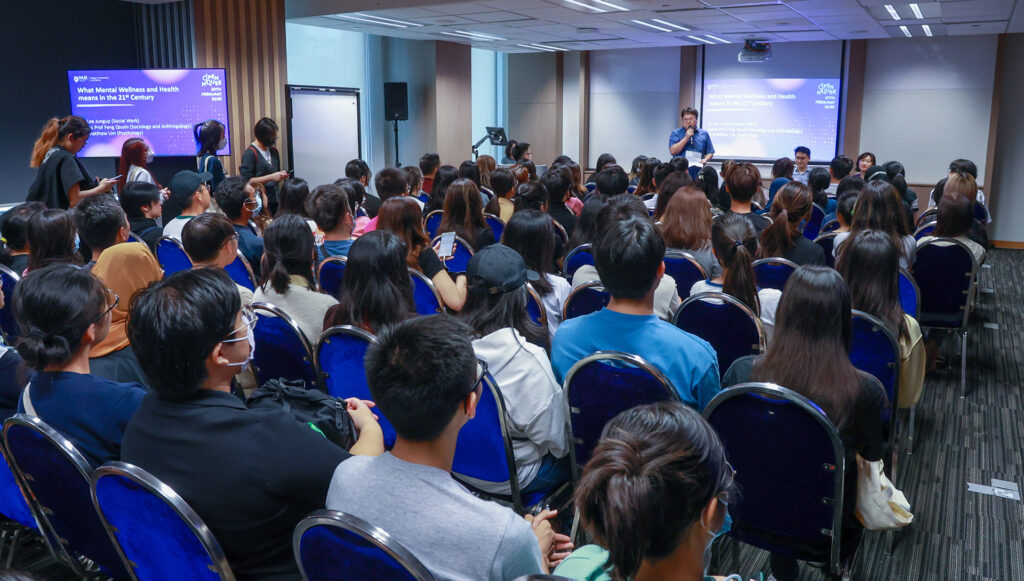
In the same vein, the panel “What Mental Wellness and Health Means in the 21st Century” saw speakers from the Social Work, Sociology and Psychology departments discuss perceptions of mental health in society. Dr Lee Jungup, an Assistant Professor in Social Work, pointed out the close relationship between social work and psychology. “Many of our Social Work students consider a double major with Psychology,” she said, noting that social work emphasises the practical while psychology is more theoretical and clinical in nature.
Jasmine, the NYJC alumna, said the various informative talks reaffirmed her decision to apply to NUS. “The NUS College tour as well as the CHS Common Curriculum sharing were particularly informative. They made the programmes seem quite appealing and I am looking forward to applying for both,” she said.
For some like Christian Chua, an alumnus from the NUS High School of Math and Science, attending the Open House talks helped clarify the career options available for the different programmes.
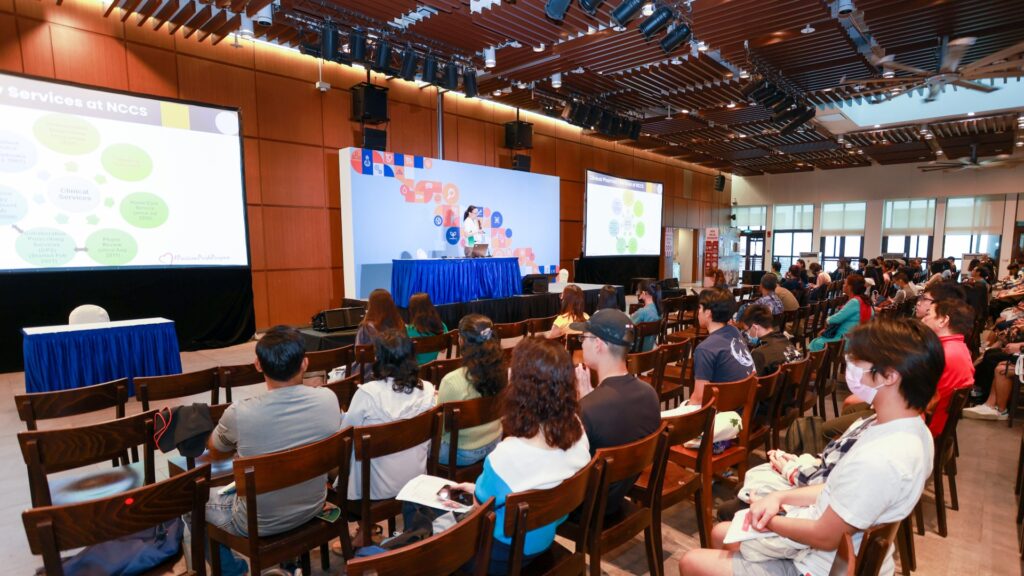
Christian, who is currently considering the Medicine, Pharmacy, and Pharmaceutical Science programmes, attended the Pharmacy talk and booth, where faculty members of different specialisations touched on the various career pathways and the collaborative practices of the discipline.
“It was useful that they discussed the different careers that Pharmacy graduates had gone into so I knew a degree in Pharmacy wouldn't just limit me to community or hospital pharmacy but also to the R&D, drug approval side, or the business side as well,” he said.
Shaping the Future of Design and Engineering
Meanwhile, there was action aplenty over at both the online and in-person Open House by CDE, which is accepting its second intake. Officially launched in November 2021, CDE was a merger of the Faculty of Engineering and the School of Design and Environment, ramping up the distinctive interdisciplinary experience at NUS.

From the Common Curriculum and the multidisciplinary education model, to the Student Exchange Programme and future career prospects, CDE faculty and students shared their insights on a plethora of topics with prospective students.
The talks, such as the one on Biomedical Engineering, Chemical Engineering and Materials Science & Engineering, also provided valuable information. Prospective students learnt how undergraduates are exposed to a range of interdisciplinary topics with global-scale applications in class, and how NUS engineers are taking on the world’s biggest challenges, such as clean energy.
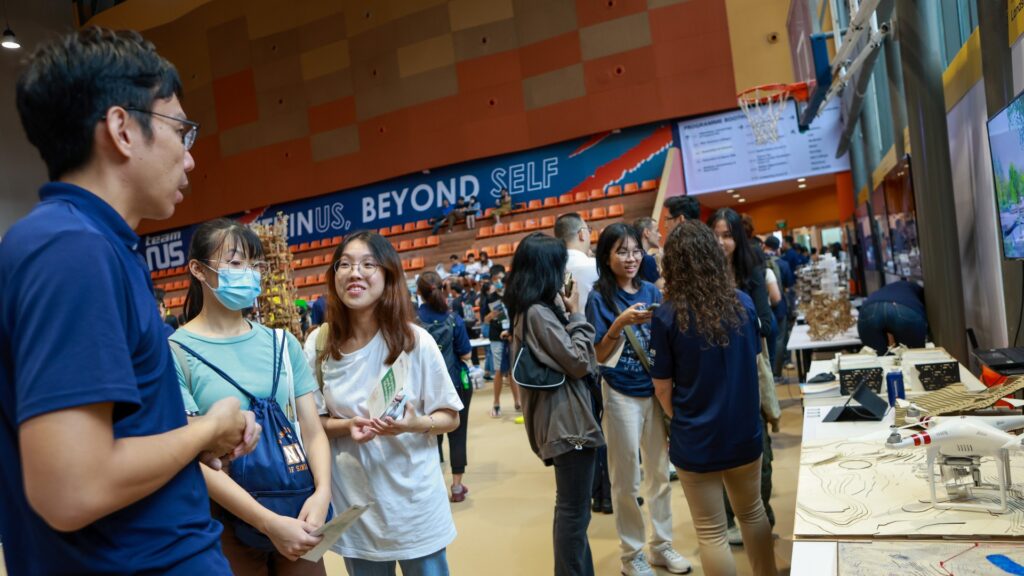
The talk on Architecture, Industrial Design and Landscape Architecture also saw a large turn-out. Discussing the breadth and depth of CDE’s curriculum, it touched on how students will be equipped to face the 21st-century challenges through their education in CDE.
Kaisyn, who is graduating from Nanyang Polytechnic this year, said, “I appreciated that they covered the basic skills and activities done throughout the curriculum. It allowed me to confirm that the Industrial Design course is relevant to my study and career plan.”
The in-person Ask-Me-Anything sessions with student panels also allowed participants to get their burning questions answered.
Tee Jia Hong, a graduate of Anglo-Chinese Junior College who intends to apply to Industrial and Systems Engineering (ISE) and attended the student sharing, said, “By listening to the experience from the ISE senior, I am able to get the hang of the academic and co-curricular prospect of being an ISE student.”
Over at CDE’s Rise of the Robots campus tour, participants were given a look at the Advanced Robotics Centre, which displayed projects such as an autonomous wheelchair, an artificial robotic arm, and a haptic feedback machine.

Robert Lim from Singapore Polytechnic, who attended the tour, said, “It was a memorable experience . . . I was able to learn more about what the courses have to offer and what undergrad students have accomplished in NUS.”
Exploring experiential learning

NUS College, Singapore’s first honours college, offered a glimpse of its flagship experiential learning programmes during its online and physical showcase. Faculty members highlighted the Impact Experience programme, where students develop solutions to real-world issues with community partners, and the Global Experience programme, which immerses them in global cities for specially curated courses and field visits based on specific themes.
The college, which is accepting its second intake, also held special classes for prospective students to get a feel of its small-group seminar-style lessons. Dr Ang Yuchen’s special class introduced his field course Biodiversity and Natural History in Singapore, which combines scientific concepts with the visual and language arts and environmental philosophy.
“I found the sample lessons useful in helping me not just get a sense of how lessons are conducted over at NUS College, but also how my potential Profs are like as teachers and facilitators,” said Eugene Teo, an alumnus of Raffles Institution, explaining that small, collaborative discussions was better suited to his learning style. Attending the Open House “also gave me a better understanding of the people I will be interacting with and the environment in which I would be studying in upon entering university life”, he added.
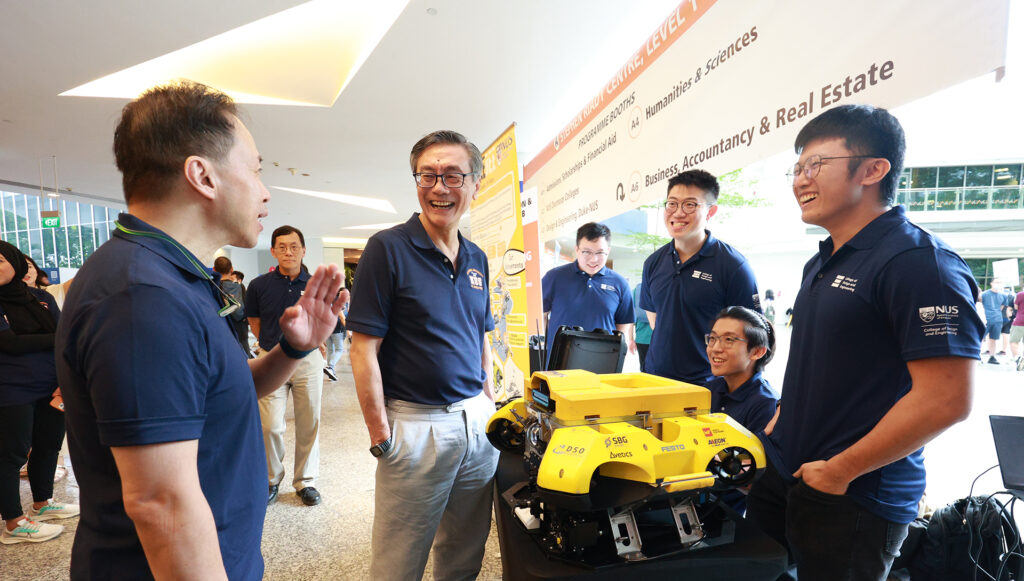
Interactivity was a prominent feature of the Open House. NUS Nursing offered visitors a chance to try basic wound treatment and resuscitation, while NUS Law held moot demonstrations at its Bukit Timah Campus.
 |
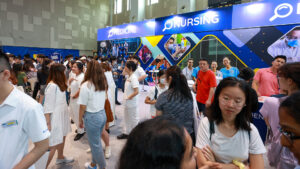 |
Aqirah Bte Azam, who will be graduating from Temasek Polytechnic in May, had the chance to see the Nursing students in action and attended a talk by its alumni. “Hearing their experiences in NUS and their careers have given me the courage to pursue my aspirations in nursing”, she said.

Smorgasbord of Student Life
Visitors also got a taste of the vibrant NUS student life on display. Student clubs and societies, as well as the Hall and Residential College (RC) interest groups, put their best foot forward at the Student Village.

Visitors were wowed by the striking moves of NUS Wushu, the energetic cheerleading displays of King Edward VII Hall’s KE Titans, and the snazzy K-pop dance moves of the Korean Cultural Interest Group. They were also treated to renditions of catchy tunes from Mandopop group NUS CAC Voices, acapella group NUS Resonance, Raffles Hall rock and jazz band RHockerfellas, and many more.
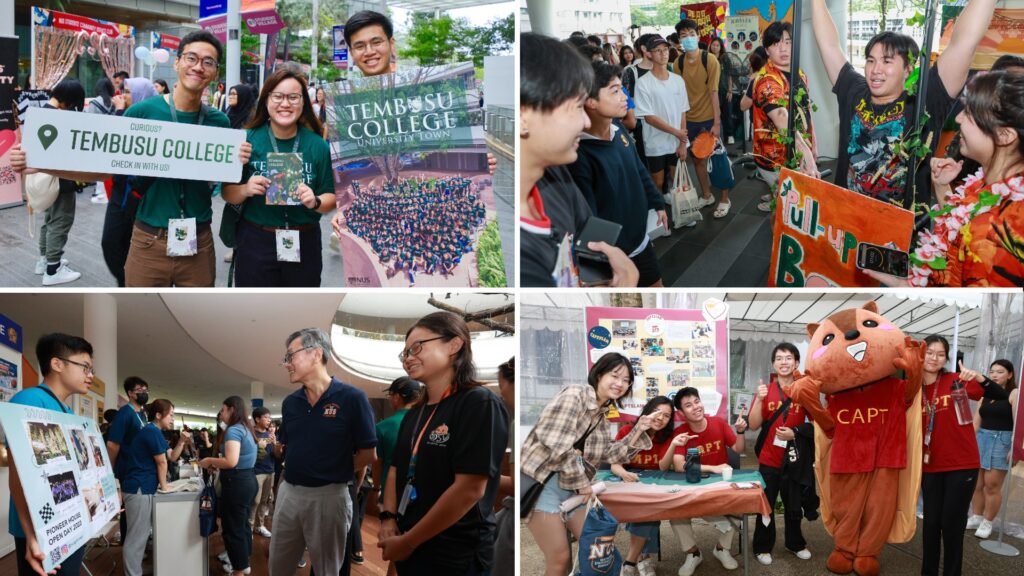
Representatives from the RCs, halls, and houses were present to offer prospective students the inside scoop on the on-campus experience. Complemented by A-Day-in-the-Life videos and 360° virtual tours, the booths, talks, and Ask-Me-Anything panels by student leaders gave participants a sense of the residential options at their fingertips.
“The House Life talk was the most enjoyable and informative event to me since the masters and students really explained to me what living in houses was like, while keeping us engaged through jokes and videos,” said Jia Hong.

Charlotte Toh from Singapore Polytechnic, said the Halls talk helped her better understand the hall culture and admission criteria.
Guided in-person tours of the various halls and residences, such as King Edward VII Hall, Tembusu College, Ridge View Residential College, and Residential College 4, opened a window to the close-knit community of residential life.
Samuel Liu, who graduated from National Junior College, said, “The well-guided tours and booths set up for each RC that I visited gave me a good indication of which RC would be most suitable for my character and goals.”
This story first appeared on NUSnews on 9 March 2023.
NUS Open House: More than 7.7M Visitors Drawn to Action-Packed Showcase over 10 Days
IN BRIEF | 25 min read
- NUS Open House 2023 saw a strong showing by visitors eager to find out about the University’s academic programmes, as it returned in from 25 February to 6 March. Some 7.71 million visitors attended the physical and online showcase which involved 3,071 faculty and staff, students and alumni.
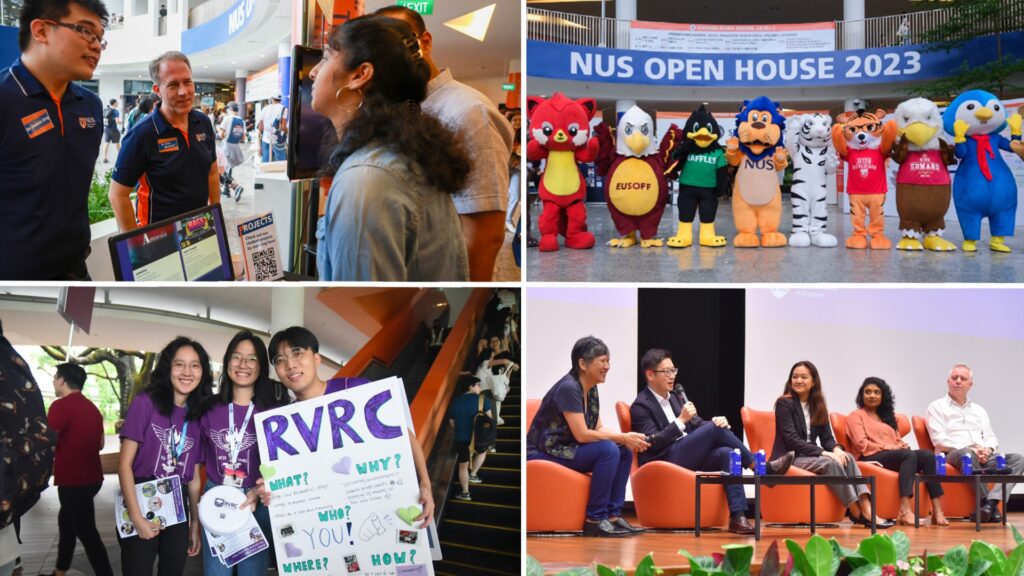
NUS Open House 2023 saw a strong showing by visitors eager to find out about the University’s academic programmes, as it returned from 25 February to 6 March. Some 7.71 million visitors attended the physical and online showcase which involved 3,071 faculty and staff, students and alumni.
Kicking off the 10 action-packed days were the informative virtual talks, webinars, and social media sessions. The on-campus event on 4 March saw packed crowds at the programme booths, talks, special classes, campus tours, student life performances and residential venues despite the heavy downpour. Prospective students gained valuable insights from faculty members, explored the University’s extensive global opportunities, as well as its diverse entrepreneurship platforms and lifelong learning courses, giving them a comprehensive overview of what NUS has to offer.
“I really enjoyed meeting the professors and students who are from the courses I'm interested in as I gained many insights from them on life in NUS and the various possibilities that are open for exploration,” said prospective student Karthika Warrier, an alumna from Raffles Institution who is considering applying to NUS Computing or the College of Humanities and Sciences (CHS).
Jasmine Chiam, an alumna from Nanyang Junior College (NYJC) who is interested in applying to CHS and NUS College, agreed. “The programme was well-run despite the fact that it was raining,” she said. “I felt that it was well-curated for students with different interests.”
A draw for many prospective students were CHS, the newly launched NUS College, and the College of Design and Engineering (CDE) – the University’s recent interdisciplinary pathways aimed at meeting the evolving demands of the workforce.
Addressing Shared Challenges with the Humanities and Sciences
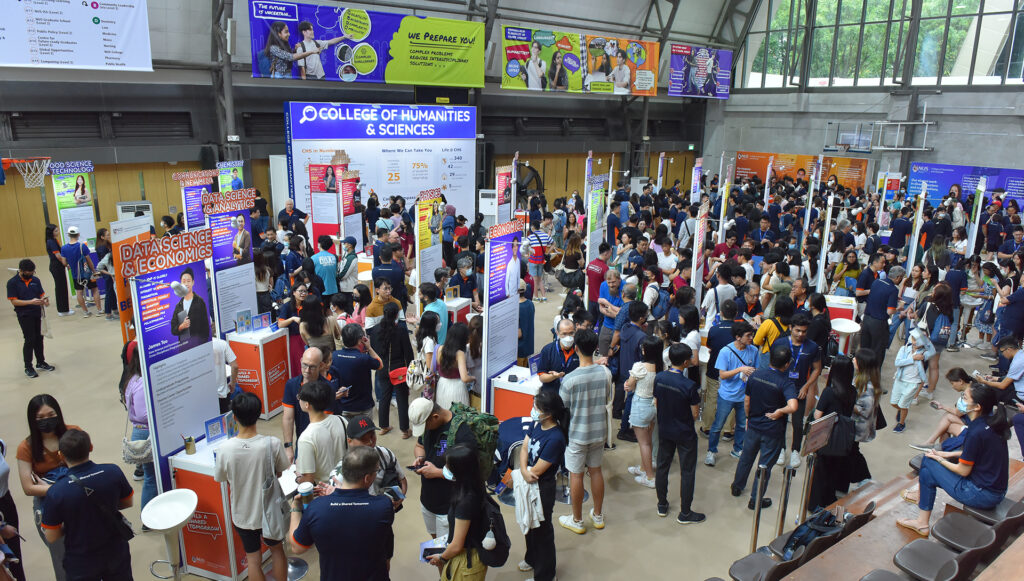
CHS, which provides an enhanced undergraduate experience for students of the Faculty of Science (FOS) and the Faculty of Arts and Social Sciences to pursue breadth and depth across academic disciplines, showcased its Common Curriculum throughout the Open House.
Currently accepting its third intake, it held talks on hot topics such as sustainability, food science and technology, and mental health to demonstrate how students can apply various perspectives to address complex real-world issues.
The panel entitled “Why Sustainability and Climate Change Matter” saw speakers from the Geography, Japanese Studies, Anthropology and English, Linguistics and Theatre Studies departments weighing in on the topic from their respective disciplines. Another session by the Department of Food Science and Technology explained how its programme applies principles from chemistry, biology, engineering and nutrition to address issues such as food safety and security, as well as the careers its graduates can pursue.

In the same vein, the panel “What Mental Wellness and Health Means in the 21st Century” saw speakers from the Social Work, Sociology and Psychology departments discuss perceptions of mental health in society. Dr Lee Jungup, an Assistant Professor in Social Work, pointed out the close relationship between social work and psychology. “Many of our Social Work students consider a double major with Psychology,” she said, noting that social work emphasises the practical while psychology is more theoretical and clinical in nature.
Jasmine, the NYJC alumna, said the various informative talks reaffirmed her decision to apply to NUS. “The NUS College tour as well as the CHS Common Curriculum sharing were particularly informative. They made the programmes seem quite appealing and I am looking forward to applying for both,” she said.
For some like Christian Chua, an alumnus from the NUS High School of Math and Science, attending the Open House talks helped clarify the career options available for the different programmes.

Christian, who is currently considering the Medicine, Pharmacy, and Pharmaceutical Science programmes, attended the Pharmacy talk and booth, where faculty members of different specialisations touched on the various career pathways and the collaborative practices of the discipline.
“It was useful that they discussed the different careers that Pharmacy graduates had gone into so I knew a degree in Pharmacy wouldn't just limit me to community or hospital pharmacy but also to the R&D, drug approval side, or the business side as well,” he said.
Shaping the Future of Design and Engineering
Meanwhile, there was action aplenty over at both the online and in-person Open House by CDE, which is accepting its second intake. Officially launched in November 2021, CDE was a merger of the Faculty of Engineering and the School of Design and Environment, ramping up the distinctive interdisciplinary experience at NUS.
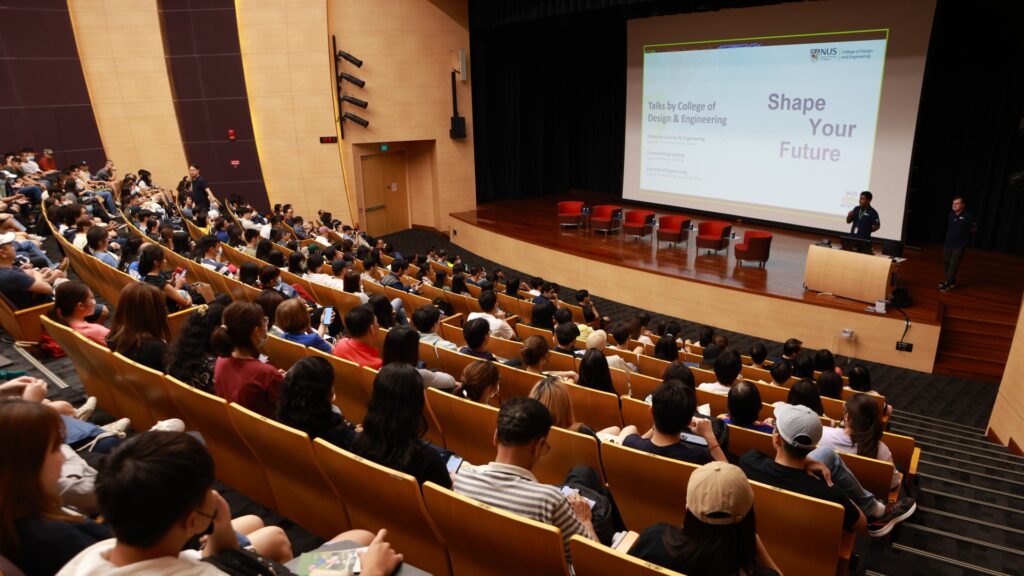
From the Common Curriculum and the multidisciplinary education model, to the Student Exchange Programme and future career prospects, CDE faculty and students shared their insights on a plethora of topics with prospective students.
The talks, such as the one on Biomedical Engineering, Chemical Engineering and Materials Science & Engineering, also provided valuable information. Prospective students learnt how undergraduates are exposed to a range of interdisciplinary topics with global-scale applications in class, and how NUS engineers are taking on the world’s biggest challenges, such as clean energy.

The talk on Architecture, Industrial Design and Landscape Architecture also saw a large turn-out. Discussing the breadth and depth of CDE’s curriculum, it touched on how students will be equipped to face the 21st-century challenges through their education in CDE.
Kaisyn, who is graduating from Nanyang Polytechnic this year, said, “I appreciated that they covered the basic skills and activities done throughout the curriculum. It allowed me to confirm that the Industrial Design course is relevant to my study and career plan.”
The in-person Ask-Me-Anything sessions with student panels also allowed participants to get their burning questions answered.
Tee Jia Hong, a graduate of Anglo-Chinese Junior College who intends to apply to Industrial and Systems Engineering (ISE) and attended the student sharing, said, “By listening to the experience from the ISE senior, I am able to get the hang of the academic and co-curricular prospect of being an ISE student.”
Over at CDE’s Rise of the Robots campus tour, participants were given a look at the Advanced Robotics Centre, which displayed projects such as an autonomous wheelchair, an artificial robotic arm, and a haptic feedback machine.
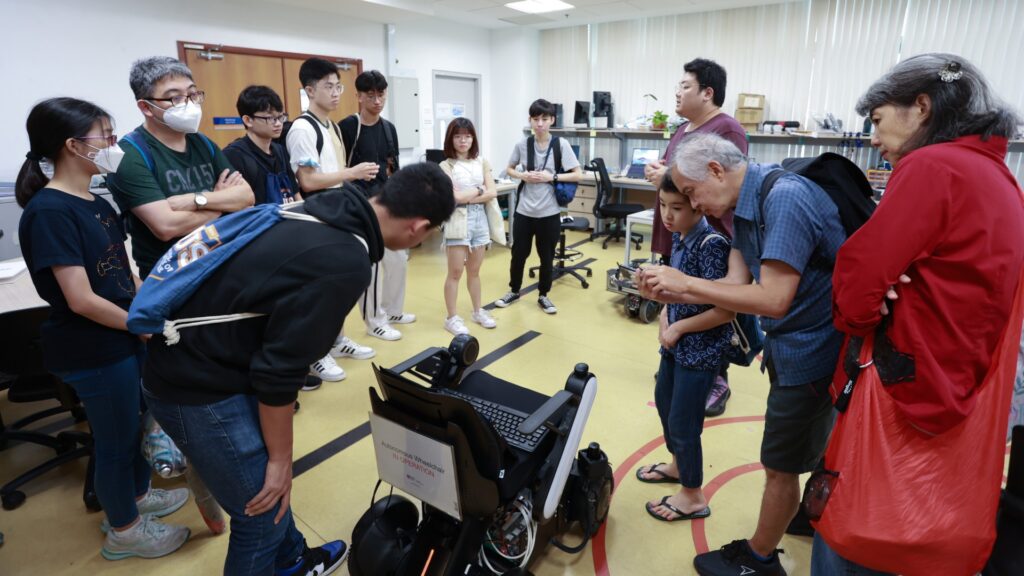
Robert Lim from Singapore Polytechnic, who attended the tour, said, “It was a memorable experience . . . I was able to learn more about what the courses have to offer and what undergrad students have accomplished in NUS.”
Exploring experiential learning

NUS College, Singapore’s first honours college, offered a glimpse of its flagship experiential learning programmes during its online and physical showcase. Faculty members highlighted the Impact Experience programme, where students develop solutions to real-world issues with community partners, and the Global Experience programme, which immerses them in global cities for specially curated courses and field visits based on specific themes.
The college, which is accepting its second intake, also held special classes for prospective students to get a feel of its small-group seminar-style lessons. Dr Ang Yuchen’s special class introduced his field course Biodiversity and Natural History in Singapore, which combines scientific concepts with the visual and language arts and environmental philosophy.
“I found the sample lessons useful in helping me not just get a sense of how lessons are conducted over at NUS College, but also how my potential Profs are like as teachers and facilitators,” said Eugene Teo, an alumnus of Raffles Institution, explaining that small, collaborative discussions was better suited to his learning style. Attending the Open House “also gave me a better understanding of the people I will be interacting with and the environment in which I would be studying in upon entering university life”, he added.

Interactivity was a prominent feature of the Open House. NUS Nursing offered visitors a chance to try basic wound treatment and resuscitation, while NUS Law held moot demonstrations at its Bukit Timah Campus.
 |
 |
Aqirah Bte Azam, who will be graduating from Temasek Polytechnic in May, had the chance to see the Nursing students in action and attended a talk by its alumni. “Hearing their experiences in NUS and their careers have given me the courage to pursue my aspirations in nursing”, she said.
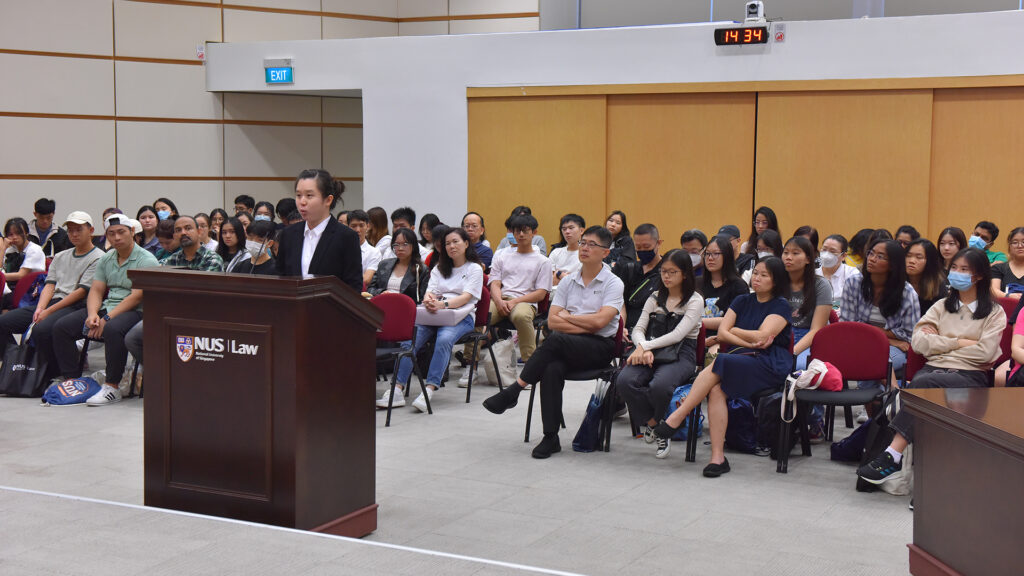
Smorgasbord of Student Life
Visitors also got a taste of the vibrant NUS student life on display. Student clubs and societies, as well as the Hall and Residential College (RC) interest groups, put their best foot forward at the Student Village.

Visitors were wowed by the striking moves of NUS Wushu, the energetic cheerleading displays of King Edward VII Hall’s KE Titans, and the snazzy K-pop dance moves of the Korean Cultural Interest Group. They were also treated to renditions of catchy tunes from Mandopop group NUS CAC Voices, acapella group NUS Resonance, Raffles Hall rock and jazz band RHockerfellas, and many more.

Representatives from the RCs, halls, and houses were present to offer prospective students the inside scoop on the on-campus experience. Complemented by A-Day-in-the-Life videos and 360° virtual tours, the booths, talks, and Ask-Me-Anything panels by student leaders gave participants a sense of the residential options at their fingertips.
“The House Life talk was the most enjoyable and informative event to me since the masters and students really explained to me what living in houses was like, while keeping us engaged through jokes and videos,” said Jia Hong.
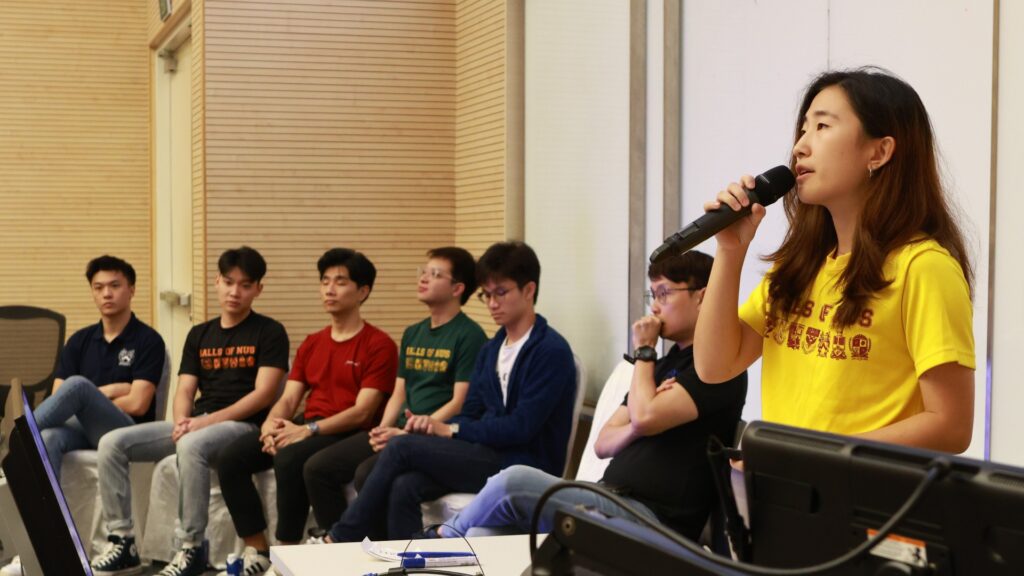
Charlotte Toh from Singapore Polytechnic, said the Halls talk helped her better understand the hall culture and admission criteria.
Guided in-person tours of the various halls and residences, such as King Edward VII Hall, Tembusu College, Ridge View Residential College, and Residential College 4, opened a window to the close-knit community of residential life.
Samuel Liu, who graduated from National Junior College, said, “The well-guided tours and booths set up for each RC that I visited gave me a good indication of which RC would be most suitable for my character and goals.”
This story first appeared on NUSnews on 9 March 2023.
FASS Inspiring Mentor 2022 Award Winners Announced

The NUS Faculty of Arts and Social Sciences is proud to announce the winners of the 2022 FASS Inspiring Mentor Awards.
Congratulations to:
- Assoc Prof Melvin Yap Ju-Min, Associate Professor, Department of Psychology
- Assoc Prof Robin Loon Seong Yun, Associate Professor, Department of English Language and Literature
- Dr Amazaki Osamu, Senior Lecturer, Centre for Language Studies
- Dr Natalie Pang Lee San, Senior Lecturer, Department of Communications and New Media
- Dr Kamalini Ramdas, Senior Lecturer, Department of Geography
The NUS Career Compass 2023
IN BRIEF | 5 min read
- Find out how the University has developed and broadened our curriculum to better prepare our graduates for the swiftly evolving workplace, and how interdisciplinary learning can help students solve complex issues in our society.

In collaboration with CNA938
How does NUS cultivate highly sought-after talents in the workforce of the future?
Find out how the University has developed and broadened our curriculum to better prepare our graduates for the swiftly evolving workplace, and how interdisciplinary learning can help students solve complex issues in our society.
This story first appeared on NUSnews on 23 February 2023.
CHS at NUS Open House 2023: Download the FASS Essentials on 27 February 2023
IN BRIEF | 10 min read
- On 27 February, get the full download on the essentials of academic programmes, student life, career preparation, overseas opportunities and financial aid at CHS via Zoom in the ‘virtual’ edition of CHS@NUS Open House 2023.

If you have not already marked your calendars for two dates with the NUS College of Humanities (CHS) during NUS Open House 2023, do it now!
On 27 February, get the full download on the essentials of academic programmes, student life, career preparation, overseas opportunities and financial aid at CHS via Zoom in the ‘virtual’ edition of CHS@NUS Open House 2023. Go to https://bit.ly/CHSatNUSOH2023-Virtual for the full 27 February programme.
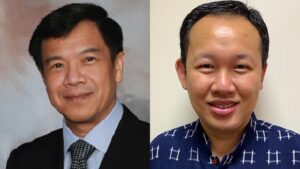
Then prepare to come on-campus on 4 March to engage with our award-winning faculty members, advisors and students to experience interdisciplinary education and explore your future vocation. Go to https://bit.ly/CHSatNUSOH2023-OnCampus for the full 4 March programme.
To help you plan your way through the lineup of FASS-specific talks and activities, read on for some of our highlights on 27 February 2023 that ought not to be missed.
Academics at the Forefront
The online edition of CHS@NUS Open House is meant to provide you with as comprehensive a briefing of what CHS, and its component Faculties of Arts and Social Sciences, and Science, have to offer students.
Academics is at the forefront and the day starts with a session devoted to the CHS Core Curriculum (9:00 – 11:00 am), a specially curated interdisciplinary programme that provides unprecedented freedom to choose the pursuit of breadth and depth across a broad spectrum of disciplines. This session will be led by Professor Sow Chorng Haur, Vice Dean (Outreach & Admissions), NUS Faculty of Science (FoS), and Dr Noorman Abdullah, Assistant Dean (External Relations & Student Life), FASS.
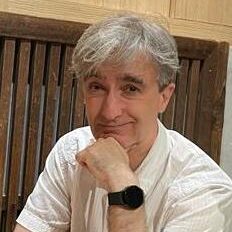
Associate Professor Luke O'Sullivan
The CHS Cross-Disciplinary Programmes
Three one-hour talks devoted to introducing Cross-Disciplinary Programmes (XDPs) offered by CHS will be running concurrently from 11:00 am. One programme FASS offers that embodies the concept of interdisciplinarity is the Philosophy, Politics, and Economics XDP, and the session for that will be led by Associate Professor Luke O’Sullivan (NUS Political Science) in discussion with fellow PPE Joint Programme Committee member, Dr Joel Chow (NUS Philosophy).
"This session is an opportunity to ask questions about the PPE-XDP. Philosophy, Politics, and Economics is a classic combination of disciplines that was first taught in Oxford and has spread globally because of its proven effectiveness. It brings together the ability to think about ideas in abstract and analytical terms, explore their practical implications for society, and model their costs and benefits in quantitative terms,” says Assoc Prof O’Sullivan. “PPE students can expect to develop a unique knowledge base and set of skills that leaves them suited for a wide range of careers in today's complex and fast-changing world."
Attendees are required to come prepared, because in addition to providing an overview of the PPE-XDP, Assoc Prof O’Sullivan expects audience engagement. Join the PPE-XDP session on 27 February at 11:00 am here.
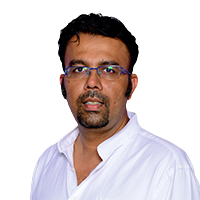
Associate Professor Rajesh Rai
Asian Studies @ CHS
NUS is recognised as a global centre of excellence in Asian Studies, where a multidisciplinary and comparative approach to the study of Asia and its regions is adopted. The session on programmes by the various Asian Studies departments at NUS (2:00 – 2:50 pm) will feature Associate Professor Rajesh Rai (NUS South Asian Studies), Dr Faizah Zakaria (NUS Malay Studies), Associate Professor Tham Shiao Wei (NUS Chinese Studies), Dr Clay Eaton (NUS Japanese Studies) and Dr Mohamed Effendy Abdul Hamid (NUS Southeast Asian Studies).
“You probably hear a lot about how Asia is the largest continent in the world, with the greatest diversity of cultures, philosophies, political thought and economic might, as well as scientific and technological advancement,” says Assoc Prof Rai, offering up a brief on the discussion he will be leading as moderator. “This session will take you through an interdisciplinary journey through history and current affairs to show you just how influential Asia has been a force for change, both positive and negative, on the world’s stage.”
Join this session by clicking here.
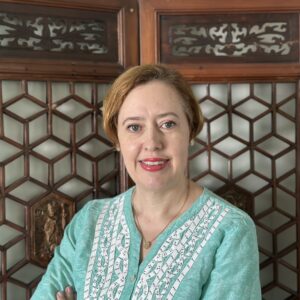
Humanities @ CHS
Learn more about the academic disciplines that focus on studying different aspects of the human condition from: Dr Donna Brunero (NUS History); Associate Professor John Whalen-Bridge, Associate Professor Graham Wolfe and Dr Leslie of NUS English, Linguistics and Theatre Studies; and Dr Zachary Barnett (NUS Philosophy).
“Do you: Ponder big questions regarding life, society, and culture? Wonder how language develops? Hold theatrical ambitions? Find yourself curious about connecting the past and present, the local and global?” session moderator Dr Brunero asks rhetorically. “If so, join us as we answer questions regarding our disciplines and share insights into how studying with us at NUS can broaden your horizons.”
To join Dr Brunero and her fellow speakers in this 3:00 - 3:50 pm session click here.

Social Sciences I: Same, Same but Different
This session features Dr Kamalini Ramdas (NUS Geography), Associate Professor Feng Qiushi (NUS Sociology and Anthropology), Dr Elaine Tan (NUS Political Science) and Dr Georgios Georgiou (NUS Economics), and will delve into their respective programmes as well as approaches toward forging a “collective identity”.
Session moderator Dr Kamalini explains. “This panel brings together social scientists from Economics, Geography, Political Science and Sociology to discuss what it takes to develop a collective identity as social scientists,” says Dr Kamalini, who will be working with her fellow speakers toward answering questions such as, “What are the benefits and challenges of a collective approach to learning and research? How might our students benefit from our commitment to engage?”
Click here to join the Social Sciences I (4:00 – 4:50 pm) session.
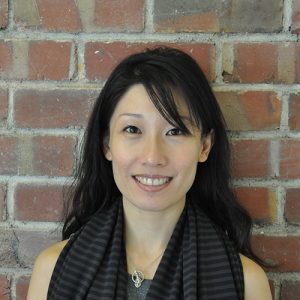
Social Sciences II: Understanding Social Complexity
Dr Adelyn Lim (NUS Sociology and Anthropology), Associate Professor Irene Ng (NUS Social Work), Dr Nina Powell (NUS Psychology) and Dr Alex Mitchell (NUS Communications and New Media) will be introducing the disciplines offered by their respective Departments, and show how they can each be applied to enable a deeper understanding of our world.
“The world we live in today can feel exciting but also downright contradictory. Global friendships are in many ways easier to make than in the past, yet we see terrorism, violent crime, wars, and enduring social inequality,” says session moderator Dr Lim, who will be discussing in detail with her fellow speakers complex issues thrown up by questions such as, “How did this world come about? Where are we heading in the future?”
To join the Social Sciences II (5:00 – 5:50 pm) session, click here.

Ms Sasiwimol Klayklueng
Foreign Language Studies: Passport to the World
Meet leading Language instructors Ms Sasiwimol Klayklueng (Thai), Dr Sandhya Singh (Hindi and Tamil), Ms Indianti Tjan (Indonesian), Ms Rungnapa Kitiarsa (Thai) and Ms Sophie Undorf Bouvier (French), who will elaborate on the Minor in Language Studies and Proficiency Certificates conferred by the NUS Centre for Language Studies, which are very much sought after by students looking to enhance their career prospects.
A Winning Vision of a City on Cleaner Energy in 2060
IN BRIEF | 15 min read
- NUS undergrads crowned national champions of Shell Singapore’s ‘Imagine the Future Scenarios’ competition.
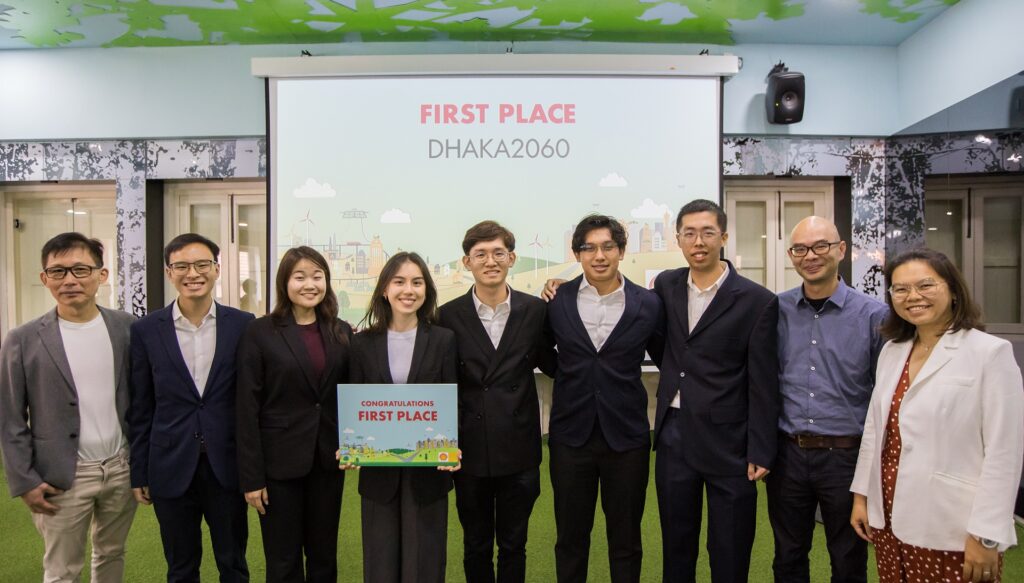
Over the year-end holidays, six second-year students from the College of Humanities and Sciences and NUS College at the National University of Singapore banded together to take on the interdisciplinary challenge of envisioning what the future could be if a city ran on cleaner energy.
Signing up for the 2022/2023 ‘Imagine the Future Scenarios’ competition to dream up two such alternate scenarios for an Asian or Middle Eastern city, the students envisioned how Dhaka’s ability to tackle climate change and rapid urbanisation would chart the future of Bangladesh’s capital city, eventually emerging national champions in the competition.
This is the seventh edition of the competition organised by Shell Singapore to encourage students to use their knowledge and imagination to anticipate the future and the challenges it could bring.
Team leader for ‘Team DHAKA2060’, Sophie Du Toit, said she and her team mates were drawn to the competition’s blue-sky proposition which allowed breadth for exploration, creativity and critical thinking, while challenging participants to consider the future from a grounded, realistic perspective.
Sophie, who is currently majoring in Global Studies with a keen interest in what sustainability could look like for current and future generations, said, “It was the competition’s strong emphasis on future planning vis-a-vis a transition to green energy which really drew us to participate in it. The prospect of engaging a nexus of issues – governance, clean energy and urban resilience – in order to craft plausible scenarios of a world 30 to 40 years into the future was “both exciting and deeply interesting.”
The team spent two months researching and brainstorming to demonstrate how Dhaka can capitalise on its existing resources and investments to make the green switch and develop a strategy that can accommodate potential policy changes. This led them to formulate two divergent scenarios of what work, life and play would be like for the city’s future citizens in 2060.
In the first ‘Green Straitjacket’ scenario, they speculated on what a city governed by a centralised government, with strict domestic controls over energy production and supply, would look like. Conversely, in the second ‘Silicon Delta’ scenario, they envisioned the city under decentralised, laissez-faire governance with a high reliance on foreign powers for energy imports.
Elaborating on their choice of city, Daniel Poon, who is currently pursuing a double major in Chemical Engineering and Political Science, said, “The city of Dhaka presents many unique opportunities alongside challenges, which have generally been sidelined in favour of bigger-name cities in the region. It is our hope that our project will be able to convincingly demonstrate the potential and corresponding pitfalls of Dhaka’s industrial and social future in the decades to come.”
Using theatrics to take their audience on a journey
Having scoped out plausible visions for the city’s future, the team took on the challenge of creating a skit to bring their audience on the journey to a ‘future’ Dhaka in the year 2060.
Morris Yang, a Philosophy, Politics and Economics (PPE) major, said the group made a unanimous decision to go with a more unconventional approach instead of presenting a typical slide show to bring the concept to life. With the goal of engaging the audience through relatable characters and realistic scenarios, Team DHAKA2060 mustered up ‘theatrical courage’ to create a skit to project how life in Dhaka might be in 2060.
“A skit opens up another dimension for us to demonstrate their lives, hopes and dreams – and even their anxieties – beyond words and pictures.” This approach, explained Morris, was both risky and challenging as it was different from the structured academic presentations the students were familiar with in their university projects.
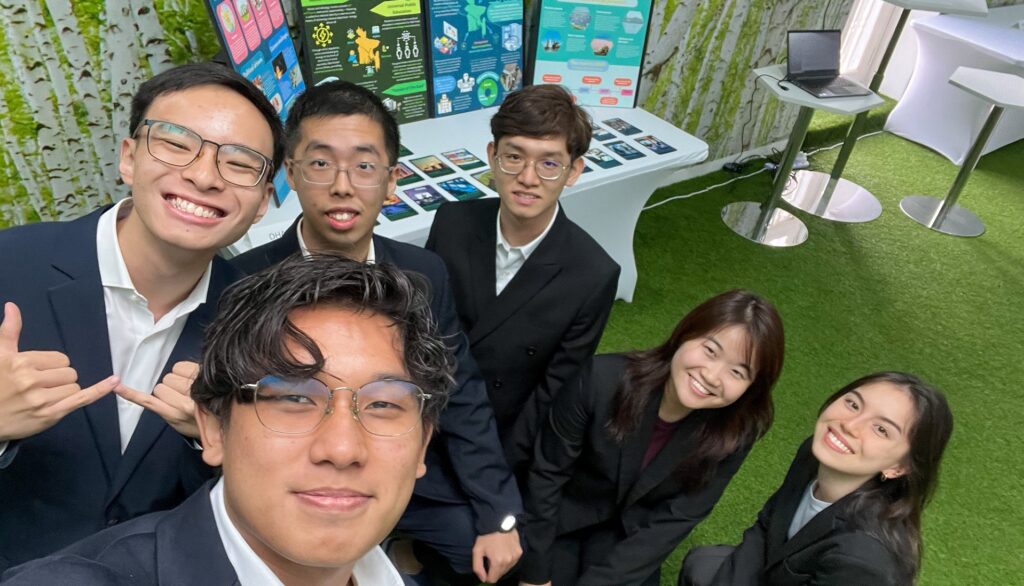
The team spent many evenings and nights rehearsing and polishing their skit in front of their classmate and residential hallmates. Not only did the rehearsals make for a fun experience, it unearthed hidden acting talent among the group and the risk taken paid off as the presentation turned out to be the most rewarding moment of the competition for each member.
“The theatricality of our presentation really immersed the audience in the worlds we’ve created. Being able to express our point with confidence was what helped us stand out in the competition,” said Eleyn Yap, a fellow PPE undergraduate.
History and Political Science double major Jeff Chin shared, “It was really gratifying to hear from the judges that they enjoyed our skit presentation and the energy it brought to the competition. The time and effort we put into bringing our ideas to life paid off, and it was a proud moment for us.”
Solutions that emerge from a confluence of ideas
Apart from daring to take a path less travelled in their presentation method, Team DHAKA2060 also credited the team’s win to its academic diversity which allowed them to consider multiple dimensions for each future scenario.
“While some of us were inclined to analyse the political possibilities for Dhaka, others pointed out (the) geographical constraints. The diversity in the way we think and see things became very obvious when it came to discussing Dhaka’s future. Everyone shared from their own perspective, yet ultimately, it was these differing and individual worldviews that strengthened the nuance of our case,” Eleyn said.
Iyan Danial Mohamad agreed that having many brilliant minds all pondering the logic of each idea helped immensely in ensuring they were sound. The Communications and New Media major who is also pursuing a double minor in History and Interactive Media Development, said, “Naturally, the fact that all of us came from different backgrounds as well also allowed us to expand the scope of our ideas, which was important so that we were able to cover more aspects of how a city could develop over the next few decades.”
“We were considerably more open to reiterating and challenging existing ideas without adhering to a dogmatic belief in the tried-and-tested,” said Morris.
Leaning on and trusting each other’s strengths, the team overcame their initial worry that they may have bitten off more than they could chew taking on a city that was rapidly evolving politically and socio-economically. However, it was the team’s varying view points and opinions that ultimately drove them to look at the issues from a macro perspective led to more convincing and multi-layered arguments that withstood questions from the judging panel.
This story first appeared on NUSnews on 10 February 2023.
The Half-life of Knowledge
IN BRIEF | 10 min read
- There is now an indisputable requisite to equip graduates with interdisciplinary knowledge and skillsets. We need both the agile lenses of interdisciplinarity as well as the deep-cutting laser of deep domain expertise. The former trains us to aim and focus the laser, while the latter allows us to cut to the heart of a problem.

| By Professor Tan Eng Chye |
“Teach a person to fish, and you may feed them for three-and-a-half years” may sound less inspiring than “Teach a person to fish, and you feed them for a lifetime”, but the former more accurately reflects the current realities of tertiary education.
Breaking news travels at warp speed, accelerated by social media and instant messaging. In a matter of minutes, news can reach the four corners of the world. Such interconnectedness highlights the leaps made in information technology over the years while underscoring a persistent and inexorable phenomenon – the reduction of the half-life of knowledge.
The half-life of knowledge, coined by Fritz Machlup in 1962, refers to the amount of time elapsed before half of the knowledge in a particular field is superseded or becomes obsolete. Given the speed with which knowledge develops and is shared, it is perhaps not surprising that this value is ever decreasing in many fields.
This phenomenon raises fundamental questions about our university degree programmes. How should a fresh graduate, filled with aspirations to change the world, deal with the harsh reality that a significant portion of their undergraduate training may be rendered irrelevant by the simple passage of time?
Distilling a degree programme is one possible, albeit drastic approach. We can consider equipping students only with evergreen core domain concepts. This training should take less time than our current degree programmes. As and when students require specific new knowledge, or need to upgrade existing knowledge, they can take short courses to bridge knowledge gaps and meet their professional needs. This type of “just in time” learning, also known as micro-credentialing, helps to circumvent the shortened half-life by injecting cutting-edge knowledge at just the right time.
Another less disruptive approach is revitalisation. We can maintain the current degree programme structure, but provide avenues for graduates to return to university in the future. Such short stints of study can follow existing models for bite-sized, self-contained courses, or semester-long study periods undertaken with the support of employers.
One certainty is that university study will cease to be just one stage of life. Instead, “university studies” will become the de facto way of studying, with a person continually refreshing and renewing their knowledge in tandem with or in anticipation of developments in industry, society and the world.
In anticipation of this, we created the NUS Lifelong Learners Programme (or NUS L3), which promises a 20-year period of student enrolment, from the point of undergraduate or postgraduate admission. In other words, a graduate of NUS can choose to come back to campus to take courses for at least 20 years from the day of matriculation.
Interdisciplinarity
Beyond the way knowledge is acquired, we are also grappling with working in an increasingly VUCA (volatile, uncertain, complex, and ambiguous) world. In such a context, can we continue to hold a siloed view of domain disciplines? In training law students, for example, we would be remiss not to show them basic programming, which can allow them to create customised commands to quickly and easily trawl through databases, with millions of legal records, to identify precedents.
Deep domain expertise is like a laser – a focused beam of knowledge that can cut through dense problems. However, real-world issues are increasingly multifaceted and ill-defined, often lacking a clear vulnerable spot at which a laser beam can be aimed.
As a mental experiment, consider the challenge of introducing autonomous electric vehicles to a city. This proposition involves urban design, city planning, the law, and engineering for accessibility. We can form a multidisciplinary team of experts, where each member is a domain expert, to tackle the issue. However, in all likelihood, we will encounter misalignment between domains, simply owing to differences in problem-solving methodology, thinking models or even nomenclature.
If we liken domain training to equipping students with specific lenses through which they can see and focus on information to solve a problem, then interdisciplinarity suggests that we should train students to operate across more than one domain. By educating them in core ideas from multiple domains and providing opportunities to apply their knowledge in authentic settings, students with interdisciplinary training can switch domain lenses as needed, solving problems using novel and unorthodox approaches that transcend domains.
To be clear, we are not advocating for dismantling deep domain training. Rather, we recognise that there is now an indisputable requisite to equip graduates with interdisciplinary knowledge and skillsets. We need both the agile lenses of interdisciplinarity as well as the deep-cutting laser of deep domain expertise. The former trains us to aim and focus the laser, while the latter allows us to cut to the heart of a problem.
NUS strongly believes in providing interdisciplinary pathways for our students. In 2020, we created the College of Humanities and Sciences (CHS) to provide an enhanced interdisciplinary undergraduate experience for students of the Faculty of Science and the Faculty of Arts and Social Sciences. CHS undergraduates can choose between deep domain training or the flexibility of interdisciplinary training of varying breadth and depth in modules offered by both faculties. Continuing our efforts to pave more interdisciplinary pathways for students, in 2021, we merged the School of Design and Environment and the Faculty of Engineering to form the College of Design and Engineering. More recently, NUS launched NUS College, Singapore’s first honours college offering pathways to more than 50 majors across a half dozen degree programmes. The aim of NUS College, as explained by its inaugural dean, Professor Simon Chesterman, “[is to offer] broad, interdisciplinary competencies that equip students for life, along with the opportunity to dive deep into areas in which you are passionate.”
To quote Charles Dickens, “It was the best of times, it was the worst of times, it was the age of wisdom, it was the age of foolishness.” Indeed, our experiences with the global pandemic and its effects on education over the past two years have given us the rare opportunity to engage in deep reflection and introspection. Witnessing the breakdown of resistance to adopting and adapting technology for teaching and learning during this time, we should be emboldened to re-examine and revolutionise some of our established, and perhaps outmoded, notions of how to offer higher education.
About the Author
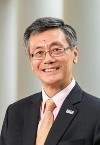 Professor Tan Eng Chye is President of the National University of Singapore. A passionate academic and educator, Prof Tan is a member of the World Economic Forum’s Global University Leaders’ Forum, as well as Singapore’s Future Economy Council, which is tasked with driving the growth and transformation of the country’s future economy.
Professor Tan Eng Chye is President of the National University of Singapore. A passionate academic and educator, Prof Tan is a member of the World Economic Forum’s Global University Leaders’ Forum, as well as Singapore’s Future Economy Council, which is tasked with driving the growth and transformation of the country’s future economy.
This article was first published in the Times Higher Education World University Rankings 2023 supplement and first appeared in NUSNews on 4 November 2022.
Call for Nominations | FASS Inspiring Mentor Award 2022
IN BRIEF | 3 min read
- We invite NUS FASS members of staff to nominate the colleagues who have served as their truly inspiring mentors - who have gone beyond the call of duty to positively impact their work and life - for FIMA 2022 honours.
Click through image below (or just write to fassmentoraward@nus.edu.sg) to file your nomination.
FASS Establishes LBKM Social Sciences Scholarship to Nurture Top Talents in the Social Sciences
IN BRIEF | 5 min read
- The scholarship was established through a S$300,000 gift from Lembaga Biasiswa Kenangan Maulud, LBKM (Prophet Muhammad's Birthday Memorial Scholarship Fund Board).
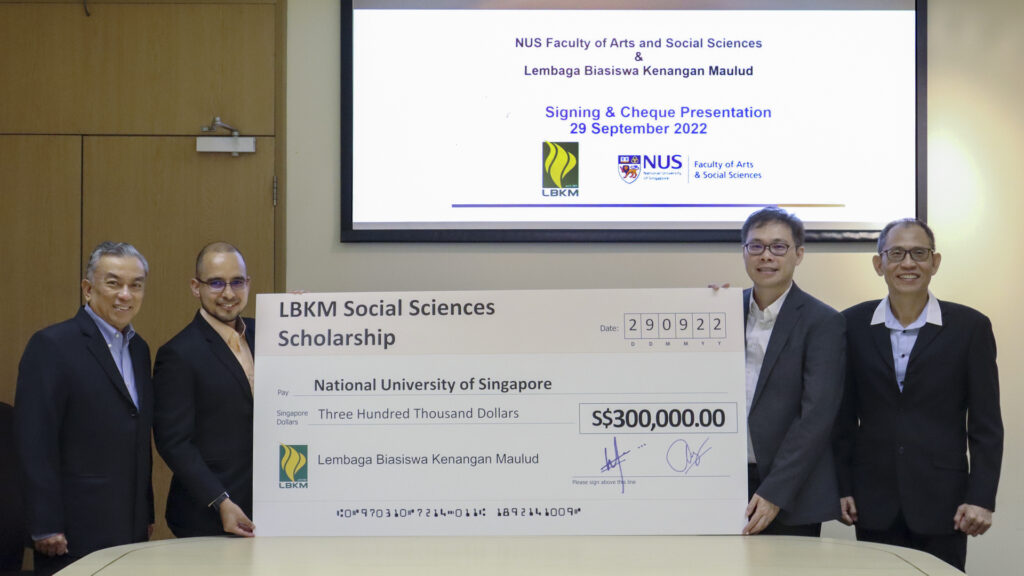
The NUS Faculty of Arts and Social Sciences (FASS) has received a generous endowment gift of S$300,000 from Lembaga Biasiswa Kenangan Maulud (LBKM) - or Prophet Muhammad's Birthday Memorial Scholarship Fund Board - to establish the LBKM Social Sciences Scholarship.
The Scholarship will be available to academically outstanding full-time third- and fourth-year Singaporean students pursuing majors in Communications and New Media, Economics, Global Studies, Philosophy, Politics and Economics (PPE), Political Science, Psychology, Social Work, as well as Sociology and Anthropology. This aims to further spur academic excellence in the social sciences amongst FASS undergraduates and encourage them to distinguish themselves in their scholastic activities.
Applications for the Scholarship worth $5,000 each will open in the academic year beginning in August 2023.
Professor Lionel Wee, Dean of NUS FASS, said, "The rise of the digital economy has driven up demand for social scientists as their knowledge and skills are needed to understand the impact of new technology on people and societies, provide social support in the wake of fast-moving changes, and overcome cultural differences in an increasingly shrinking world. These are roles robots and technology cannot replace. This Scholarship will enable us to attract and nurture exceptional social science students keen to grow their skills and achieve their fullest potential. We are grateful to LBKM for their trust and strong support."
Associate Professor Loy Hui Chieh, Vice Dean of NUS FASS, and Dr Syed Harun Alhabsyi, President of LBKM, signed the agreement today to establish the Scholarship, with a ceremonial cheque presented by LBKM to NUS FASS.
Dr Syed Harun said, "LBKM's continued support for undergraduates in the study of social sciences remains of extreme importance as societal and community needs become more complex, ever-changing and inter-disciplinary. It is hoped that LBKM's contributions will continue to inspire students to do well in the area of social sciences and groom future leaders who will not only perform exceptionally in their academic pursuits but also give back to the community."
The new LBKM Social Sciences Scholarship is an extension of LBKM's longstanding relationship with NUS FASS and past community donations that have supported undergraduate students financially and encouraged them to excel in their studies since 2007.
This story first appeared in NUSNews on 29 September 2022.
Receiving NUS’ Highest Honour Despite Having to Care for Sick Parents
IN BRIEF | 10 min read
- Berita Harian's feature on Nur Aisyah Lyana Mohamed Satria (NUS Global Studies and Malay Studies, '22), who juggled a part-time job and caring for her parents along with her studies to graduate with First Class Honours this year.
Click through to read this story on Nur Aisyah: part 1 (Front Page) and page 7.
This article first appeared in Berita Harian on 12 July 2022 (Front Page and page 7), and in NUSNews on 12 July 2022.
FASS Students Dominate 2022 USP Awards
IN BRIEF | 10 min read
-
NUS Faculty of Arts and Social Sciences (FASS) students have topped 9 out of 14 prize categories in 2022 University Scholars Programme (USP) Awards, achieving the USP Overall and Domain Prizes for academic excellence.

Students of the NUS Faculty of Arts and Social Sciences (FASS) in the University Scholars Programme (USP) have topped 9 out of 14 categories at the 2022 USP awards, including the Joanna Wong Medal, NUSS Medal for Outstanding Achievement, Izzudin Taherally Prize, Chan Bibe bte Syed Mohd Shah Prize, Albert Teo Prize, Tin Chew Hong Prize, Syed Ahmad Khan AMU Memorial Prize and Sung Kah Kay Memorial Prize. FASS students have also swept the USP Overall and Domain Prizes, with Philosophy, Politics, and Economics major Nickson Quak Jun Hao (Philosophy, Politics, and Economics) taking Best Overall Performance, in addition to sharing top spot with his compatriot Terence Mah (Psychology) under Best Performance in Science and Technology.And to stamp FASS’ dominance in this year’s awards, Archana Dhinakar Bala (Economics) – winner of the Joanna Wong Medal and the Syed Ahmad Khan AMU Memorial Prize – served as valedictorian for the USP commencement ceremony.
In full, the list of FASS winners of this year’s USP awards are.
Joanna Wong Gold Medal AwardPresented to the graduating student from USP who best embodies the ethos of the programme—demonstrating academic excellence and commitment to co-curricular activities.
Winner: Archana Dhinakar Bala (Economics) NUSS Medal for Outstanding Achievement
Presented to the graduating USP student with outstanding all-round achievements, who demonstrates academic excellence as well as significant participation in NUS students activities and/or impactful contribution in community service/voluntary work, preferably in leadership capacities.
Winner: Teow Jun Hao (Philosophy, Politics, and Economics) Sung Kah Kay Memorial Prize
For the graduating USP student who best exemplifies scholarship and academic excellence, and who demonstrates leadership in independent and interdisciplinary scholarship.
Winner: Yip Sze Kay (Majors: English Literature and Philosophy, Minor: French) Izzuddin Taherally Prize
For the graduating USP student who is well-rounded and has exemplified academic excellence and demonstrated a strong commitment to promoting interfaith dialogues or activities related to social harmony.
Winner: Ahmad Zaki bin Yazid (History) Chan Bibe Bte Syed Mohd Shah Prize
For the graduating USP student who is well-rounded and has demonstrated academic excellence as well as a strong commitment to wide-ranging learning through co-curricular acivites, or to community service.
Winner: Rachel Teng Ying Xin (Sociology) Albert Teo Prize
For the well-rounded graduating USP student who has exemplified academic excellence and demonstrated a strong passion for entrepreneurship or innovation in the social or business sector.
Winner: Peng Yun Ting (Philosophy, Politics, and Economics) Tin Chew Hong Prize
For the graduating USP student who is well-rounded, has exemplified academic excellence, and demonstrated strong commitment to community service preferably in the areas of eldercare, ageing or gerontology.
Winner: He Shiying (Major: Global Studies, Minor: Public Health) Syed Ahmad Khan AMU
For exemplifying academic excellence and reflecting a strong commitment or made a significant contribution to South Asian studies and culture.
Winner: Archana Dhinakar Bala (Economics) USP Prizes: Overall and Domain
For graduating USP students who have demonstrated academic excellence in USP modules.
- Best Overall Performance
Winner: Nickson Quak Jun Hao (Philosophy, Politics, and Economics)
- Best Performance in Humanities and Social Sciences
Winner: Belle Koh Rae Qi (Psychology)
- Best Performance in Science and Technology
Winners: Nickson Quak Jun Hao (Philosophy, Politics, and Economics) and Terence Mah Cai Jun (Psychology)
Commencement 2022: Kickstarting a Season of Celebration and Achievement
IN BRIEF | 10 min read
- NUS celebrates the milestone accomplishments of 13,975 graduates through 28 in-person ceremonies.
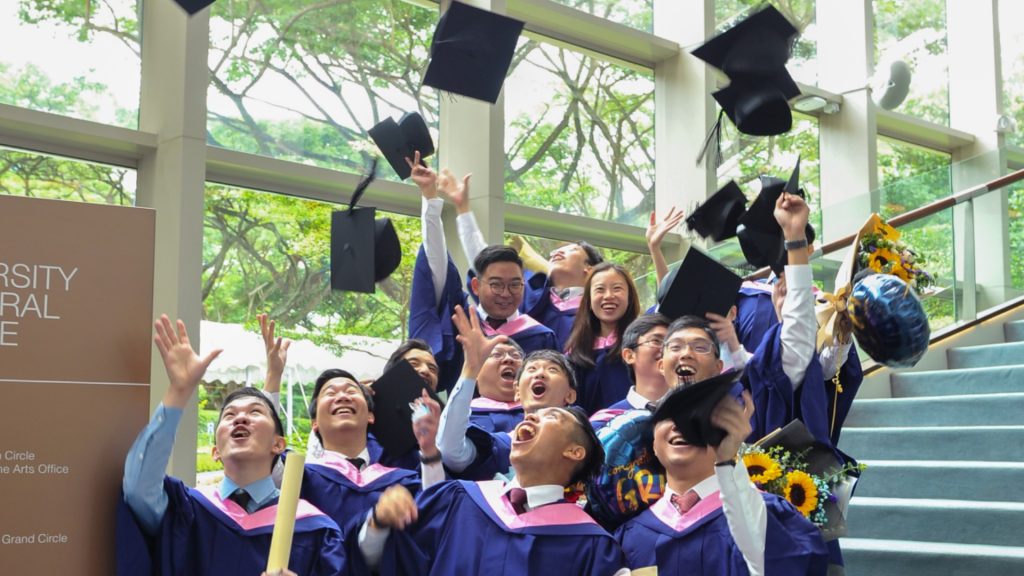
A long-awaited season of celebration is officially under way, with the inaugural ceremony of Commencement 2022 marking the milestone achievements of some 200 Faculty of Arts and Social Sciences (FASS) graduates, and seeing the conferment of two Honorary Graduates, Professor Tommy Koh and Professor Wang Gungwu.
Taking place at the University Cultural Centre, the ceremony kicked off bright and early on 6 July to an effervescent buzz of anticipation from the graduates and their loved ones, inaugurating a total of 28 in-person ceremonies to be held over the following 10 days.
In keeping with the Commencement traditions and the proud ceremonial heritage of NUS, the ceremony showcased the pageantry of the Ceremonial Procession, the fanfare, and playing of the National Anthem, all culminating in the highlight of the ceremony-the presentation of graduates. Graduates from the Class of 2022 celebrated their achievements amid the applause of family and friends, a momentous apogee of their time in NUS.
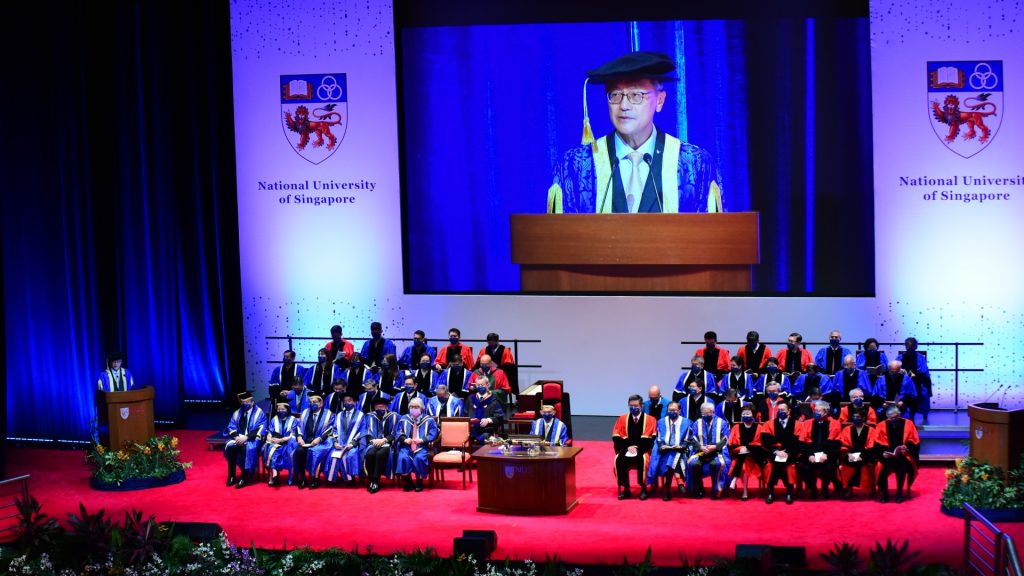
Speaking at the ceremony, NUS President Professor Tan Eng Chye reflected on the qualities needed for graduates to thrive in today's dynamic environment: an attitude of resilience and adaptability to overcome challenges, and a willingness and boldness to view problems as opportunities, exercise creativity, and apply their skills and knowledge to create solutions.
"For the Class of 2022, you are crossing the threshold into a wider world of dynamic change and great possibilities, but also of discomforting uncertainty," he said.
"But I am fully confident that the NUS graduates of today share the same ethos of excellence and service to community of generations past. In time to come, you will undoubtedly make your own unique contributions, and become the vanguard in elevating our collective prosperity and well-being."
Contributions to Law, Nature and Culture: Prof Tommy KohTwo illustrious NUS alumni were also honoured as Honorary Graduates for the Class of 2022-lawyer and diplomat Professor Tommy Koh, and historian Professor Wang Gungwu.
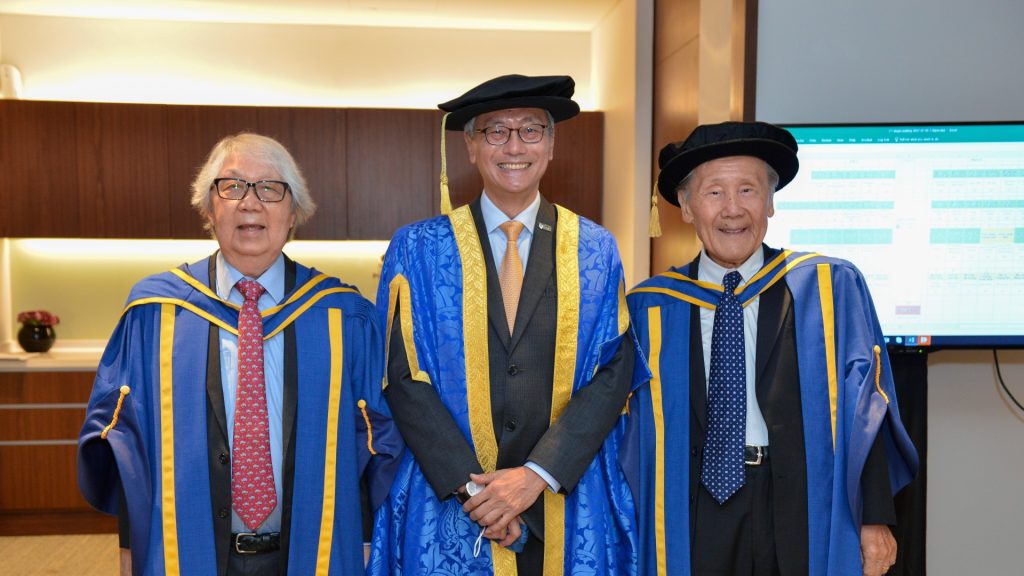
In recognition of his dedication as a practitioner-scholar and decades of service to the University, Singapore, and the world, Prof Koh, who wears many hats including Ambassador-at-Large at Singapore's Ministry of Foreign Affairs, Special Advisor of the Institute of Policy Studies, and founding Rector of NUS' Tembusu College, was conferred the Honorary Degree of Doctor of Laws.
Highlighting three areas on which he has focused his energies - law, nature, and culture - Prof Koh said, "I chose to study law, not to enrich myself, but to pursue justice and to promote the rule of law."
He also spoke about his work concerning nature and the environment, including chairing the 1992 Earth Summit, being patron of the Nature Society, and helping NUS establish the Lee Kong Chian Natural History Museum as its founding Chairman. "My vision is to live in harmony with nature. My agenda is to promote sustainability in all our endeavours," he added. "I am [also] glad that I have been able to play a very small role in transforming Singapore, from a cultural desert to a cultural oasis."
Delivering the citation for Prof Koh's conferment, Professor Simon Chesterman, Vice-Provost (Educational Innovation) and Dean of the NUS Faculty of Law and NUS College, referred to Prof Koh's "academic milestones [which] are but one strand of the rich tapestry of his professional life", as well as his leadership and guidance in education at NUS, and his eminent contributions to state and environmental diplomacy.
An Inspiring Story Worth Retelling: Prof Wang GungwuProf Wang, one of the world's foremost experts on the Chinese diaspora and Sino-Southeast Asian historical relations, was conferred the Honorary Degree of Doctor of Letters, the latest in a long list of accolades that includes the prestigious Tang Prize in Sinology, and the Distinguished Service Order of Singapore.
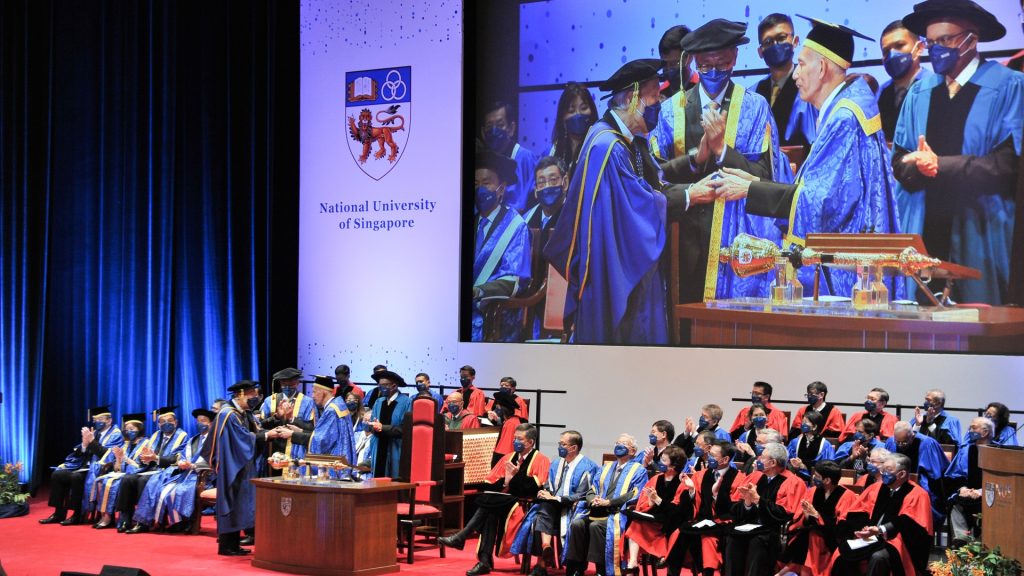
Reflecting on his time as a student of the University in colonial Malaya, Prof Wang said: "You can imagine how happy I am to be a graduand again with my alma mater. The university gave my generation a good start in life. It went on to adapt to the rapid changes of our time. In so doing, it has come out better and stronger."
He spoke about the "inspiring story worth retelling" of how the University had set out and followed its own aspirations, becoming a major centre of learning by being actively connected to the world, as well as regularly reinventing itself.
"The way our university strives to keep our humanity always in our sights is something to be very proud of. I hope that all of us graduating today, no matter where life leads us, will never hesitate to help our university to enhance this capacity to advance our human condition," Prof Wang stressed.
Prof Lionel Wee, Dean of FASS and co-Dean of the College of Humanities and Sciences, who delivered the citation on Prof Wang's conferment, lauded the latter as "an eminent figure and brilliant mind" who has made manifold contributions as a leading figure in Sinology, a renowned public intellectual, and a visionary leader and administrator at leading academic institutions around the world.
"This doctorate symbolises the meaningful connections between Professor Wang and the University, and it celebrates the long-standing contributions and value that Professor Wang's scholarly insights bring to Singapore, to Southeast Asia and, indeed, to the world," he said.
Parsing the Path ForwardInfusing the celebrations with a spirit of introspective gratitude, Valedictorian Mr Nickson Quak, who is graduating with a Bachelor of Arts with Honours (Highest Distinction) in Philosophy, Politics, and Economics said, "As varied as our journeys may have been, each and every one of us graduates here could have only made it thus far because of the unwavering support that our parents, our families, our loved ones, and our friends have so generously afforded us."
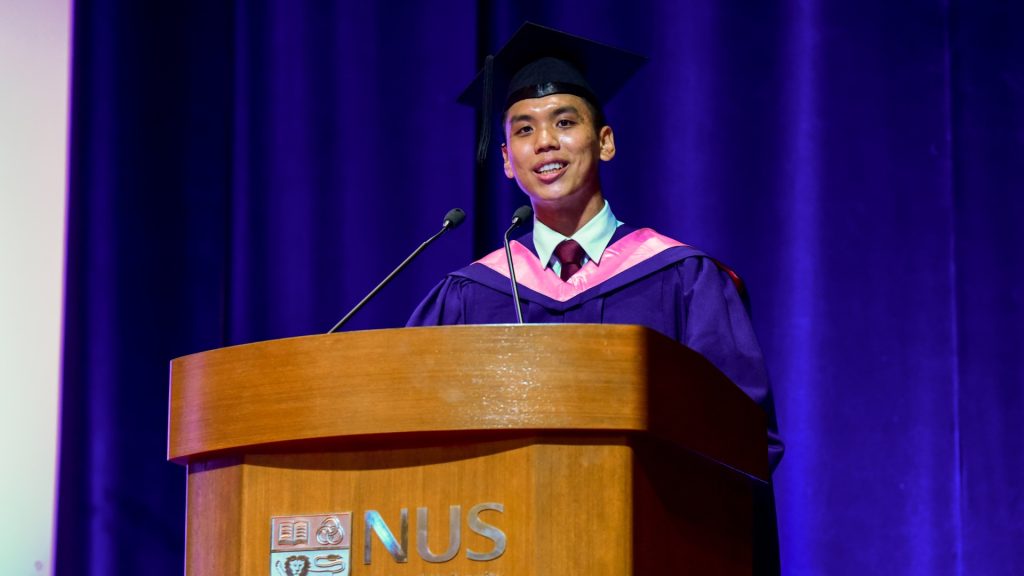
His words further summarised the spirit of determination and community that will carry graduates onwards in their lives: "If [the journey ahead] appears daunting to you, I say to you: fret not… because when you look to your left and your right, you see the resilient men and women who, forged by the challenges brought upon by the global pandemic, will always offer you a helping hand."
This story first appeared in NUSNews on 6 July 2022 as part of NUS News' coverage of Commencement 2022, which celebrates the achievements of our 13,975 graduates through 28 in-person ceremonies. For more on Commencement, look out for our upcoming graduate profiles, check out the official Commencement website, or look up (and tag) #NUS2022 and #NUSFASS on NUS' and FASS' social media channels!
The `Third Space’ Gains Traction
IN BRIEF | 10 min read
- By Prof Chan Heng Chee, NUS Trustee and member of the Yale-NUS College Governing Board, Prof at the Lee Kuan Yew Centre for Innovative Cities at SUTD and Ambassador-at-Large, Ministry of Foreign Affairs, Singapore.
Click through to read this article.
Source: The Sunday Times © SPH Media Limited. Permission required for reproduction.
NUS CHS Open House 2022: Discover #Interdisciplinary Education!
IN BRIEF | 5 min read
- The NUS College of Humanities and Sciences is hosting its Open House 2022 next week and all prospective students who have received offers are invited!
- A two-day hybrid programme – 11 May on Zoom (and viewable on CHS’ Facebook page) and 14 May on several locations across the NUS Kent Ridge campus, specifically the areas around the Faculty of Arts and Social Science (FASS), and the Faculty of Science (FoS) – CHS Open House 2022 aims to address all concerns a prospective undergraduate may have before committing to academic at the University and College.
- Highlights include opportunities to engage, discuss and explore academic pursuits, career development and student life at the College with key faculty and administrative staff and leadership — live and in person.
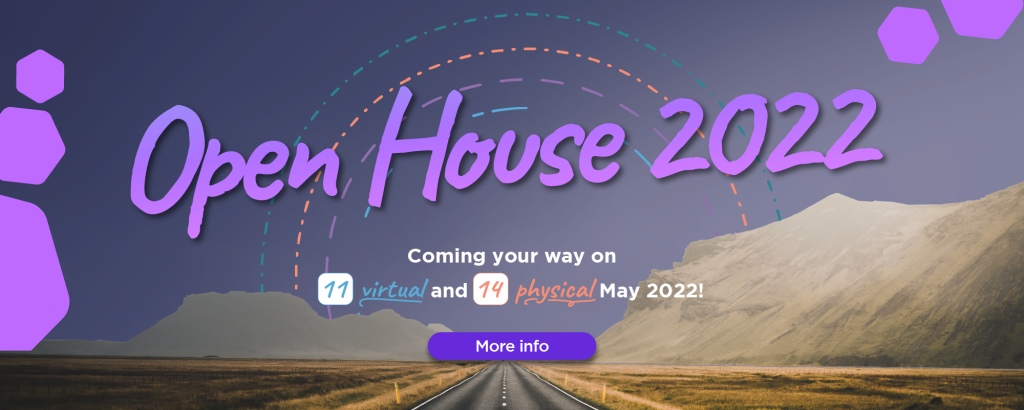
The NUS College of Humanities and Sciences is hosting its Open House 2022 next week and all prospective students who have received their offers are invited. As the deadline for them to accept their offers is looming, CHS has put together a programme aimed at answering all the questions they may have and clarifying all their concerns as much as possible.
Marking a cautiously calibrated return of the University to the normalcy of hosting large on-site events, this year’s CHS Open House is a two-day hybrid programme: 11 May on Zoom (and viewable on CHS’ Facebook page) and 14 May on several locations across the NUS Kent Ridge campus, specifically the areas around the Faculty of Arts and Social Science (FASS), and the Faculty of Science (FoS).*
11 May 2022 (Wednesday): The Essentials, OnlineThis a series of comprehensive information sessions (on Zoom and livestreamed on Facebook Live) covering everything new undergraduates need to know to get the most out of their education journey with CHS, including the:
- CHS Core Curriculum
- College’s three challenging but rewarding cross-disciplinary programmes
- Data Science and Economics (DSE-XDP)
- Environmental Studies (BES-XDP)
- Philosophy, Politics, and Economics (PPE-XDP)
- myriad Learning Pathways laid for you
- versatile career development programmes designed to prepare you for the future workplace
- CHS Student Experience—eye-opening and busy, yet energising and enriching
Speakers and panelists include CHS Co-Deans, Vice-Deans, key faculty staff members, career preparation and student services leader.
For more information and links to the 11 May sessions, click here.
14 May 2022 (Saturday): Get Personal, On CampusThe College is calling for prospective students to come on site, visit where they could well be spending their undergraduate years very soon, and speak to their future instructors and potential mentors. The full-day programme – running in key FASS and FoS locations across the NUS campus – offers:
- entry to witness and even participate in talks/lectures and panel discussions presented and hosted by award-winning instructors on a variety of academic subjects, interdisciplinary topics and specialised research areas
- face-to-face engagement with faculty, admin and student representatives from ALL Departments and student organisations under CHS, and opportunities to explore academic, financial aid and student activity options with the people in the know
- consultation with the career development teams of CHS
- guided Walking Tours across the facilities of FoS and FASS
For more information on the activities planned for 14 May, click here.
Discover Your #Interdisciplinary Future @ CHSThis Open House is the last chance for prospective students to learn more about the complete #interdisciplinary educational experience that they can expect at CHS. One that opens up a world of possibilities and equips them with skills and knowledge across the humanities, social sciences, physical sciences and applied sciences. One that inspires, cultivates and prepares them to work across diverse industries and sectors, with multidisciplinary teams, to solve some of the most complex wicked problems facing the world today — from social inequality to food shortage, unsustainable development and global warming. And one that grooms them to be the leaders of public institutions and private enterprise tomorrow.
* Campus shuttle bus services will be made available on 14 May to all visitors for easier movement across campus, which extends to Kent Ridge MRT.
Sixteen NUS Programmes in Global Top 10
IN BRIEF | 5 min read
- Programmes include those from Arts and Social Sciences, Computer Science, Design and Engineering and Science – demonstrating the University’s strengths across its different colleges, faculties and schools, according to the latest Quacquarelli Symonds (QS) World University Rankings by Subject.
- FASS courses among the World's Top 10 (in their respective subject areas) include Anthropology, Geography, Linguistics, Politics & International Studies, and Sociology.

Sixteen of the University’s academic programmes have been placed in the top 10 worldwide, according to the latest Quacquarelli Symonds (QS) World University Rankings by Subject.
These programmes include those from Arts and Social Sciences, Computer Science, Design and Engineering, and Science – demonstrating the University’s strengths across its different colleges, faculties and schools.
“We are delighted that NUS continues to be among Asia’s best universities. We are in the top 10 in 16 subject areas in the QS World University Rankings by Subject 2022. NUS is also in the top 10 in two (of five) broad categories - Engineering & Technology and Social Sciences & Management - in the same rankings,” said NUS Senior Deputy President and Provost Professor Ho Teck Hua.
“This is high international recognition of our world-leading faculty, talented students, staff and alumni, and will serve as strong encouragement for all of us at NUS."
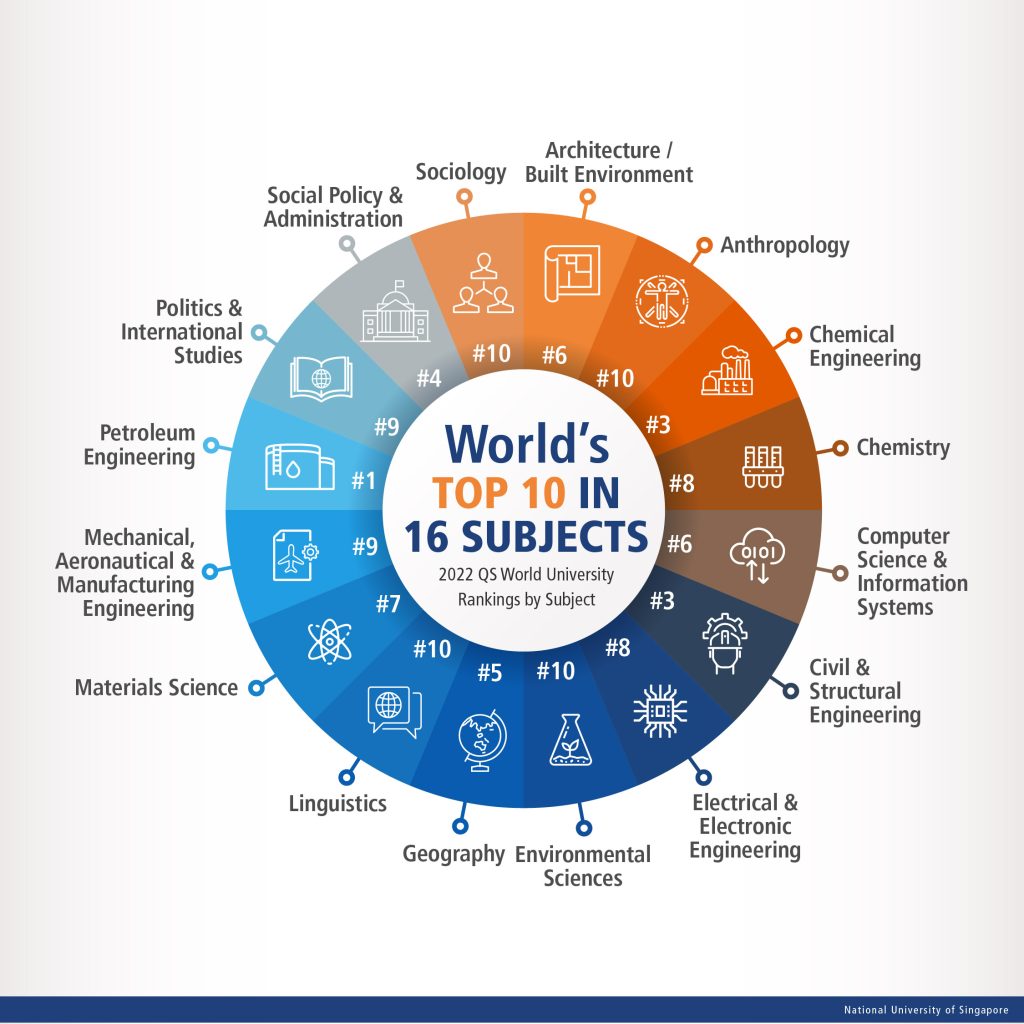
NUS takes pole position as Asia’s best university, sharing the top spot with the University of Tokyo. Both universities have 37 programmes ranked in the top 50.
The QS rankings provide independent comparative analysis of the performance of 15,200 individual university programmes at 1,543 universities across the world. The programmes are across 51 academic disciplines and five broad faculty areas.
“The consistent improvements made by Singaporean institutions in our rankings result from a decade of investment and strategizing,” said Mr Ben Sowter, Research Director at QS.
He noted that NUS has the largest endowment of any university in Asia today. “Advantaged by this long-term preparation for their financial futures and by a relentlessly international outlook, Singaporean higher education is going from strength to strength,” added Mr Sowter.
Education to prepare students for a post-pandemic worldGraduates are expected to be agile and adaptable in the post-pandemic world order. In training students to connect the dots across diverse disciplines, NUS has embarked on educational innovations centred on interdisciplinarity and experiential learning.
The establishment of the College of Humanities and Sciences and the College of Design and Engineering has allowed NUS to deliver future-focused interdisciplinary education at scale, while offering students flexibility to pursue multiple pathways and specialisations. The result: an education that offers both breadth and depth.
This will be reinforced with the inaugural intake at NUS College – Singapore’s first undergraduate honours college – in the new academic year. The college will welcome a diverse community of students from across 50 majors including Humanities and Sciences, Engineering, Environmental Studies, Business, Computer Science and Law. These undergraduates will come together to pursue experiential and interdisciplinary learning in an immersive residential environment.
This article first appeared in NUSNews on 6 April 2022.
Open House 2022 Engages and Excites
IN BRIEF | 30 min read
- The ever-popular NUS Open House hit new heights this year, attracting over 8.61 million visitors – a 26.2 per cent increase from the 6.83 million visitors that attended last year's online Open House.
- From 26 Feb to 5 Mar, visitors crowded the websites, livestreams, webinars and social media sessions hosted by the University's colleges, faculties and schools. There was something for everyone, and the event covered everything from academic courses to student life and entrepreneurship programmes.

The ever-popular NUS Open House hit new heights this year, attracting over 8.61 million visitors – a 26.2 per cent increase from the 6.83 million visitors that attended last year's online Open House.
From 26 Feb to 5 Mar, visitors crowded the websites, livestreams, webinars and social media sessions hosted by the University's colleges, faculties and schools. There was something for everyone, and the hybrid event covered everything from academic courses to student life and entrepreneurship programmes.
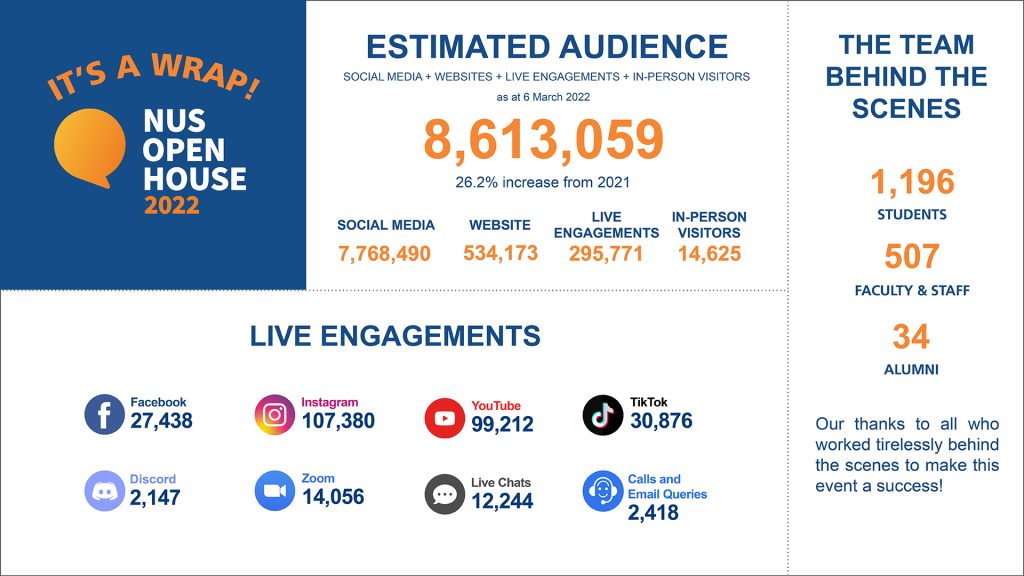
While much of the engagement happened online, prospective students got to meet NUS students and staff face-to-face for the first time since the pandemic started.
The physical Open House, held one sunny Saturday on 5 Mar, included numerous booths showcasing the University’s wide-ranging academic options and vibrant student life; sample classes and talks to get a taste of varsity life; and tours of the different colleges, faculties, and schools.
Prospective students gave the hybrid format a thumbs-up.
Joshua Chua, an alumnus of Anderson Serangoon Junior College, appreciated the online sessions and felt the physical Open House was a huge differentiating factor.
“The (physical) Open House really gave me a good image of what living and studying at NUS could look like by virtue of being an in-person event as opposed to it being virtual, so I'm really grateful to NUS and everyone involved for having this opportunity during the pandemic,” he said.
On her part, Hwa Chong Institution alumna Elsie Woo, who attended both the online and in-person sessions, said, “The experience was really welcoming and wholesome, and really exposed me to NUS as a whole.”
Showcasing the country’s first honours college
One of the highlights this year was the NUS College, Singapore’s first honours college. It will accept its first batch of students this year.
Prospective students were treated to online webinars on the College’s distinctive curriculum, its global pathways, and its focus on hands-on experiential learning. In more intimate breakout rooms, staff and student volunteers readily answered questions about student life and academic pathways. By having a home college or faculty – say Business or Science – while simultaneously being enrolled at NUS College, students will be able to get an educational experience that is as broad as it is deep.

The in-person activities featured a tour of the facilities and residential options that NUS College students would be able to enjoy.
Elsie Woo was one of many students drawn to NUS College’s unique offerings.
“I attended a few webinars, including introductory talks for NUS College and Food Science and Technology,” said Elsie, who also visited many booths in-person.
“The sessions were very well-planned and the seniors were extremely helpful and patient.”
Nanyang Polytechnic alumnus Koh Jin Yuen focused his time on NUS College, attending the College’s guided tour and virtual sharing sessions.
“The NUS College tour was informative as I got to ask the facilitators about their experiences. I think the curriculum is very meaningful,” said Jin Yuen.
“The Open House helped to deepen my understanding of how NUS College works, and allowed me to better understand the lifestyle of a student from NUS College.” He is intending to apply for the Information Systems programme offered by NUS Computing, as well as NUS College.
Ramping up interdisciplinary offerings
Exciting developments in the realm of interdisciplinary education—a major theme that NUS has been championing—were foregrounded at the Open House, with the College of Design and Engineering (CDE) also taking in its inaugural cohort. A result of the merger of the Faculty of Engineering and the School of Design and Environment, CDE is set to transform the NUS educational experience.
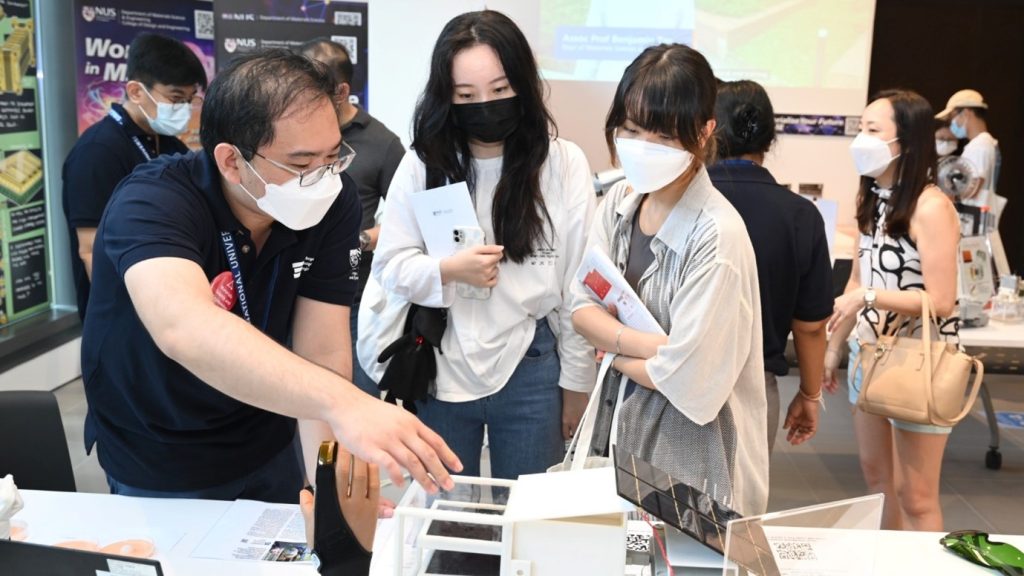
Across five galleries and 19 sub-categories, including Architecture, Industrial Design, Materials Science and Engineering, Biomedical Engineering, and Civil Engineering, visitors were presented with an informative display of the wide range of courses and programmes that will be on offer in the new College.
Raffles Institution alumna Grace Zai, who visited the Designing the Future exhibition and galleries, said, “The Engineering galleries were very informative as I could ask questions I had about the course, as well as student life, and get a clearer picture of what I would be studying and doing. It helped me make a more informed decision on my choices.”
Grace is considering applying to Engineering Science and Architecture, as well as Mechanical Engineering and Electrical Engineering with a specialisation in robotics.
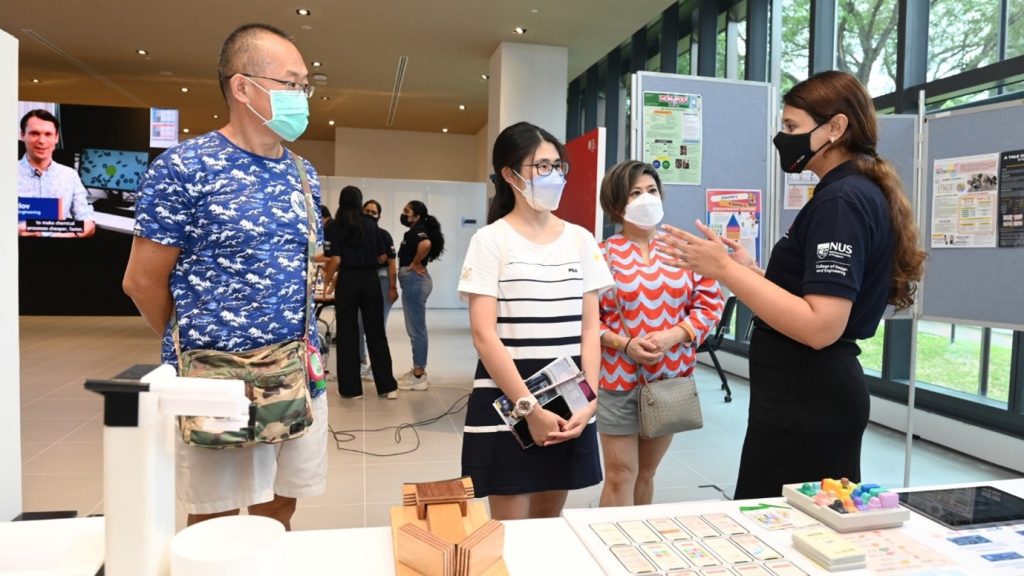
There were also panel discussions, both online and in-person, where faculty and current students interacted with prospective students to share their experiences and answer questions about the new interdisciplinary curriculum.
“As a prospective student, I got to see first-hand the school facilities, as well as the accommodations. My experience was pretty enriching and enlightening because I could ask the professors questions I had in mind and learn more about the courses,” said Timothy Tay, a graduate of Victoria Junior College who visited the SDE gallery on Sustainable Innovations.
“For example, I did not realise Project Facilities Management (PFM) was recently changed to Infrastructure Project Management (IPM). The professor explained that students will now graduate with a BEng degree rather than a BSc degree,” he recalled, referring to the first interdisciplinary full-time undergraduate programme to cover engineering, design, management, technology, building science and law modules.
Information was also available on the vibrant student life of the College’s various clubs and societies, as well as career programmes that enable students to better understand their interests and what it takes to marry that with industry skills and experience.
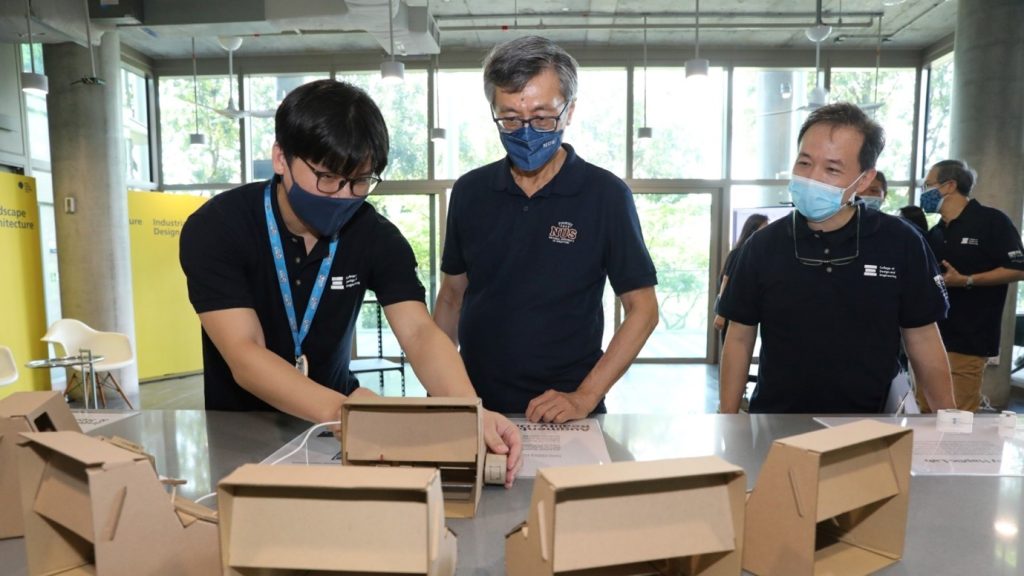
“The NUS Open House provided me with a more informed perspective on the courses offered in NUS. The various booths set up and run by students allowed for quick chats about what the courses have to offer. The responses by the students and professors were engaging and genuine, which I found informative in making my choice for courses in NUS,” said Kalepu Sai Sri Akshath, who attended CDE’s online and in-person events with his family and is intending to apply to Computer Engineering.
Drone-sensing demonstrations and the Solar Roof Tour, 5G Lab Tour, and BEEHUB Tour further showcased the College’s manifold facilities. Visitors also got a first-hand experience of NUS’ very own net-zero energy building through tours at SDE4, itself a product of both architecture and engineering, and the first of its kind in Singapore.
A marriage of the humanities and sciences
Continuing in the vein of interdisciplinarity and equipping students with a multifaceted, integrated toolbox of skills to thrive in the future economy is the College of Humanities and Sciences (CHS), which will be accepting its second intake this year.
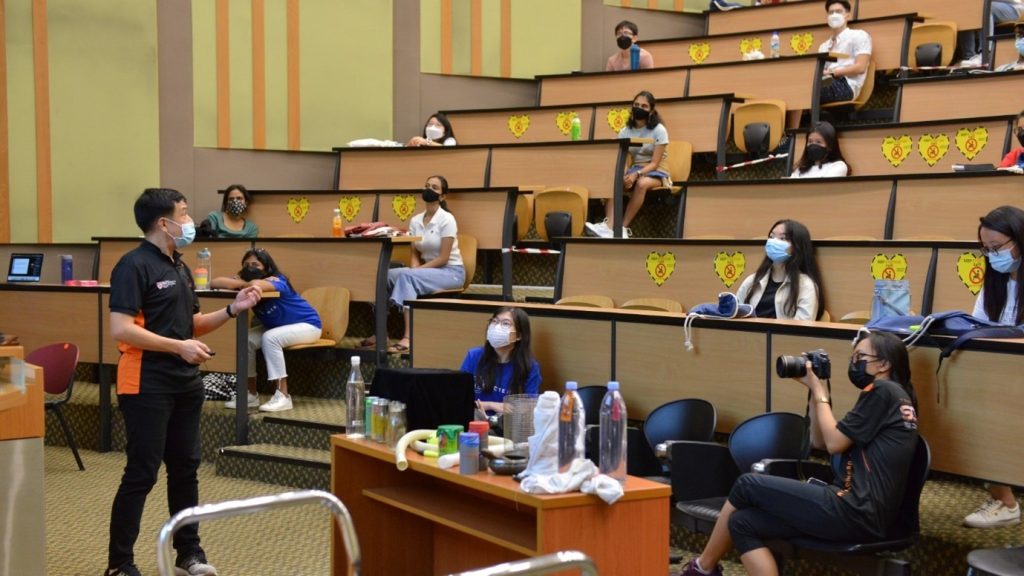
Seminars about the CHS Core Curriculum were available at the Open House, as well as informative masterclasses that covered a vast range of interdisciplinary topics.
The Data Science and Economics masterclass saw Assoc Prof Lim Tiong Wee and Assoc Prof Chen Ying (Statistics & Data Science, Faculty of Science) and Dr Denis Tkachenko (Faculty of Arts and Social Sciences) break down the complexities of the digital economy with real-life examples, and explicate its relevance to Singapore’s Smart Nation goals.
The new Data Science and Economics (DSE) cross-disciplinary programme will be the first of its kind in Singapore to integrate knowledge across these two disciplines.
“I got to understand how data science and economics complement each other,” said Russell Hor, a graduate of St. Joseph's Institution who has finished National Service and is enrolling in CHS this year.
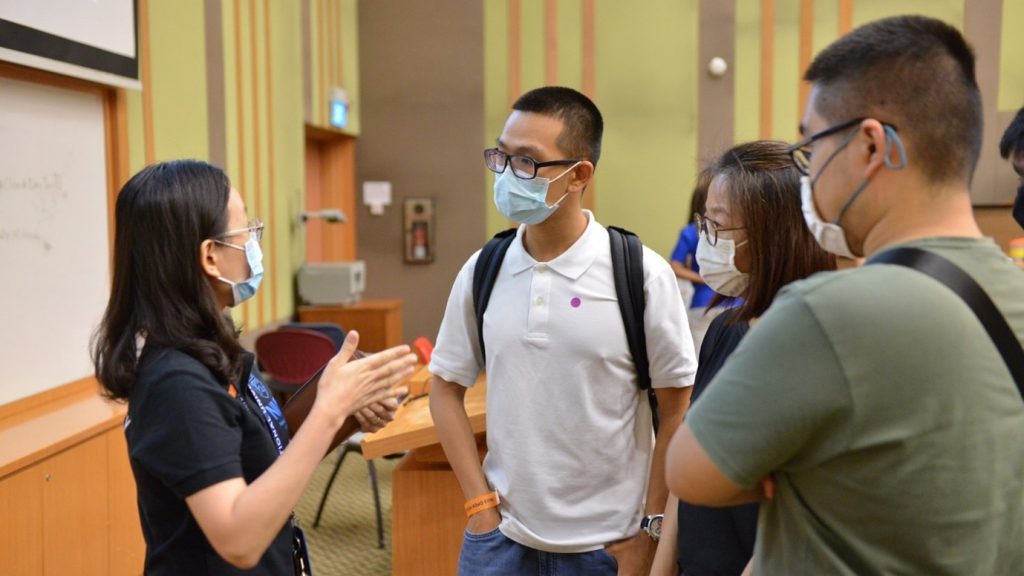
Vanille Goh, who graduated from Anglo-Chinese Junior College and attended the Geography and Environmental Studies masterclasses, said, “[The masterclasses] provided me with a good overview of how passionate the lecturers were and how each course will adequately prepare me for what I would want to do in the future.”
Nanyang Junior College alumna Wen Xinyue also appreciated the in-person masterclasses, adding that they gave her a first-hand glimpse into studying humanities at the university level.
“I am interested in studying English, and from the English Language and Literature masterclass on Gender, Sexuality and Language, I learnt about how entrenched gender roles and stereotypes can be within the language we use,” she shared.
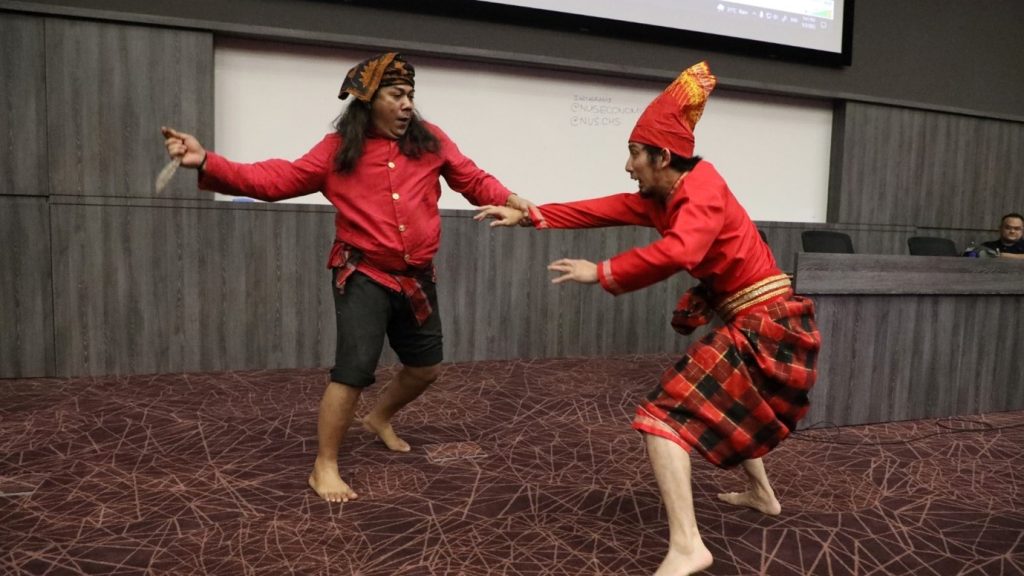
Meanwhile, over at the “Insights into Southeast Asia from the Martial Arts Perspective” masterclass, Dr Mohamed Effendy of NUS Southeast Asian Studies presented prospective students with a riveting intellectual and visual treat, demonstrating how useful unique perspectives on the region’s myriad communities can be gleaned by studying them through the lens of the martial arts. Students saw the concepts brought to life – witnessing first-hand an exciting live demonstration by practitioners of pencak silat – of how Southeast Asian warriors of old defended themselves using a wide array of techniques and weapons.
Action aplenty
There was action aplenty among other faculties. NUS Business School’s programmes included a 360 live tour, as well as live chats with the BBA Deans on the different majors offered by the School. Its in-person sessions included sharing sessions by the BBA Deans, BIZCareers advisors, and student ambassadors.

Year 4 Accountancy and Finance undergraduate Calvin Chur was one such student volunteer, serving as an emcee for the online Open House and sharing in-person on 5 Mar about life at the Business School.
“It was a tiring, but extremely fulfilling day engaging with prospective students, learning about their concerns with regards to entering a new phase of life and trying to address those concerns,” said Calvin. “In fact, many of their concerns mirrored those that I had as a fresh A-level graduate attending the NUS Open House back in 2016 – and I am glad that I could offer insider insights to help them make an informed decision at this major milestone of their lives.”
Year 4 Real Estate undergraduate Natasha Liem, another student volunteer who served as an emcee, added, “There was quite a large number of viewers for the panel and a prospective student actually sent me a message on Instagram to enquire more about real estate from a student's perspective. I think the panel went well!”

For NUS Business School Executive (Marketing & Outreach) Ms Casey Jean Grant, it was an eye-opener to experience the whole planning process.
“Most of the students and parents were very curious and excited about the prospect of coming to NUS Business School,” she added. “Their excitement definitely rubbed off on us and made the rest of us excited to share about our School.”
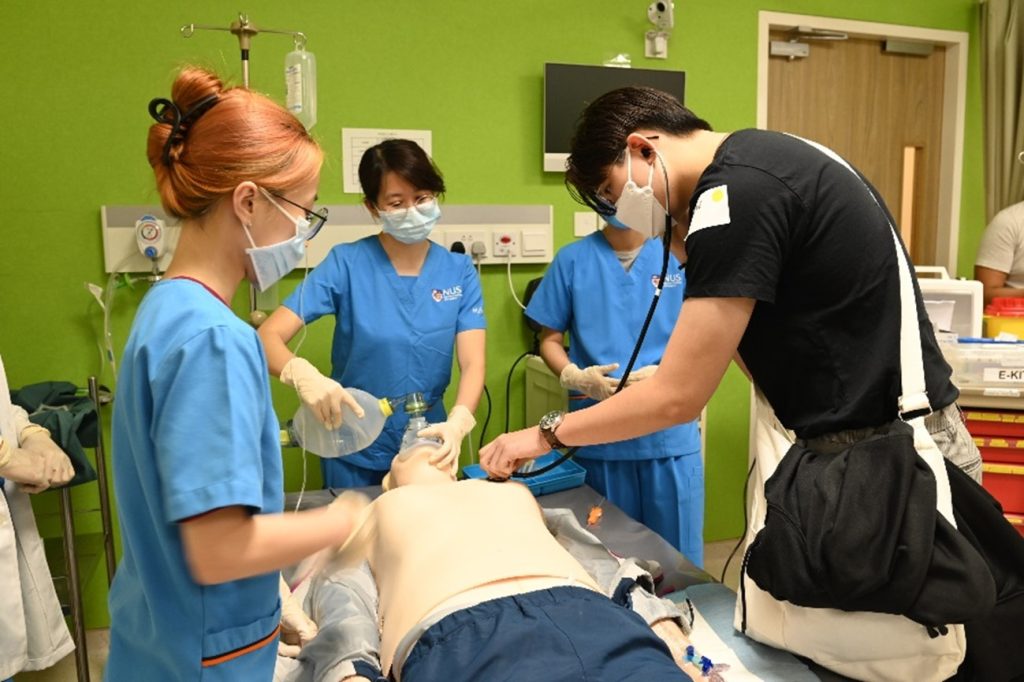
With frontline healthcare workers being in the spotlight these couple of years, there was plenty of interest in NUS Dentistry, NUS Nursing, NUS Medicine, and Duke-NUS Medical School. Live demonstrations were conducted and prospective students got a taste of what it would be like to be a dentist, nurse or doctor.
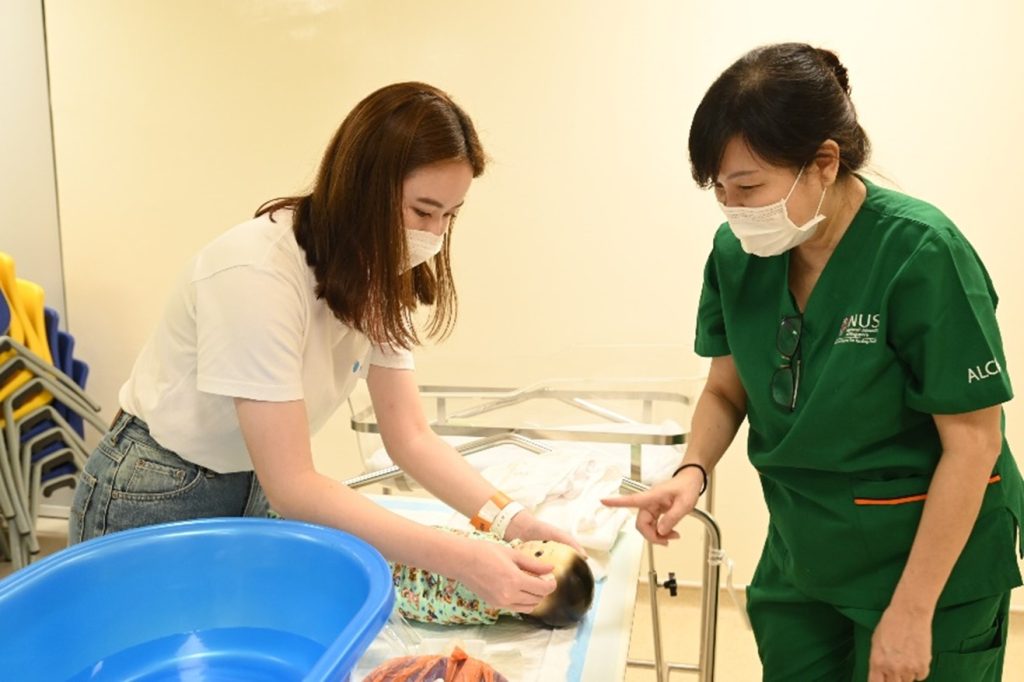
Serving up a slice of campus life
Whether on the screen or in the flesh, visitors to the Open House also witnessed the rich and vibrant student life beyond the classroom that NUS is known for.
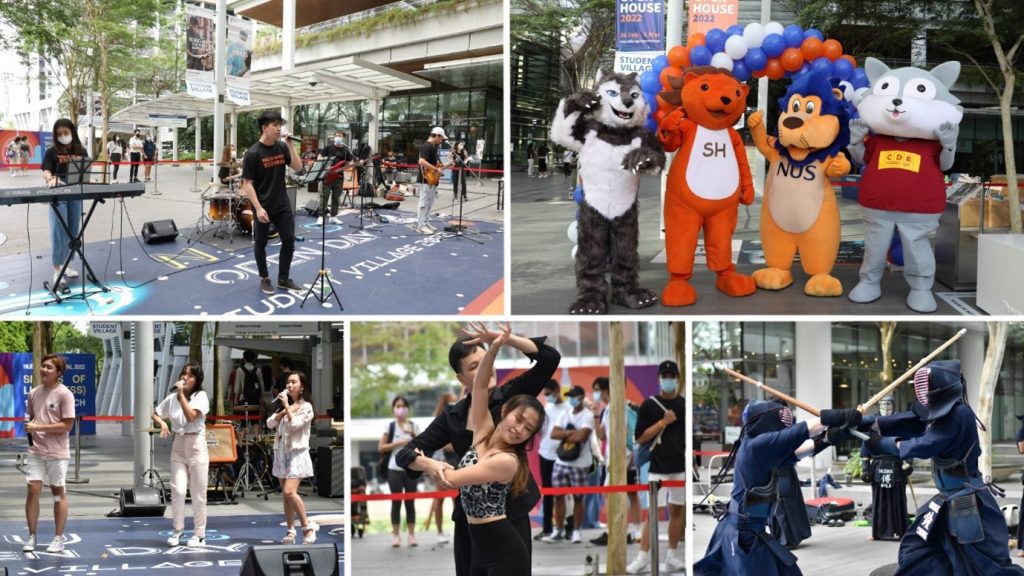
Besides holding talks to acquaint visitors with the wide range of co-curricular activities available, student clubs and societies rose to the occasion at the Student Village showcases to feature a spectacular smorgasbord of music, dance and sporting performance across the eight days that Open House was on. Visitors were serenaded by soulful tunes by the NUS Jazz Band and wowed by the moves of NUS Kendo Club. They were also treated to cheerleading displays, snazzy dance performances by NUS Funkstyle and BreakiNUS, catchy renditions of contemporary pop and choral music by the a cappella group Resonance, and the dulcet tones of TheNUSChoir and the NUS Mandopop group Voices.
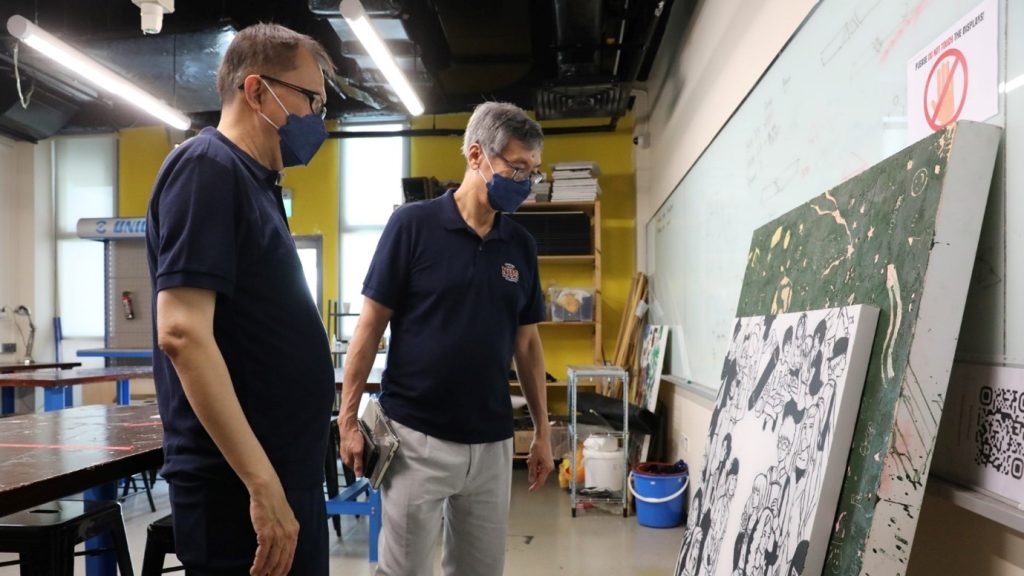
"It was really lively with dozens of booths as well as live performances put on by really talented students! It truly allowed me to understand the culture here and makes me want to be a part of it after experiencing first hand,” Vanille Goh shared.
Students and hall masters from the halls and residences also conducted informative residential life talks, A-Day-in-the-Life-Of vlog sessions and Ask-Me-Anything sessions to help students interested in on-campus living understand its manifold aspects like academic programmes and pastoral care.
These were complemented by in-person tours of King Edward VII Hall, NUS College, Ridge View Residential College, Tembusu College, RC4, and Pioneer House, NUS’ newest housing model, giving participants a real taste of the sense of community and camaraderie that comes with residential life in NUS.
Joshua Chua, who also participated in the RC4 tour, said, “The RC4 tour was definitely a highlight because the tour guide, as with most staff and students, was welcoming and frank, which eased my nervousness.”

Matthew Yeow, an alumnus of Anglo-Chinese School (Independent) who attended both online and in-person sharing sessions by student residents of the Residential Colleges, said, “During the physical Open House, I had the opportunity to find out a lot more about the residential colleges and what made them distinct from halls. Furthermore, I also got to find out more about the individual residential colleges and their communities, as well as the additional modules they took.”
“As a prospective student, I think the Open House was executed effectively through both the online and physical mediums. Having the opportunity to come down and visit the University and talk to the current students gave me a better understanding of student life in NUS,” he added.
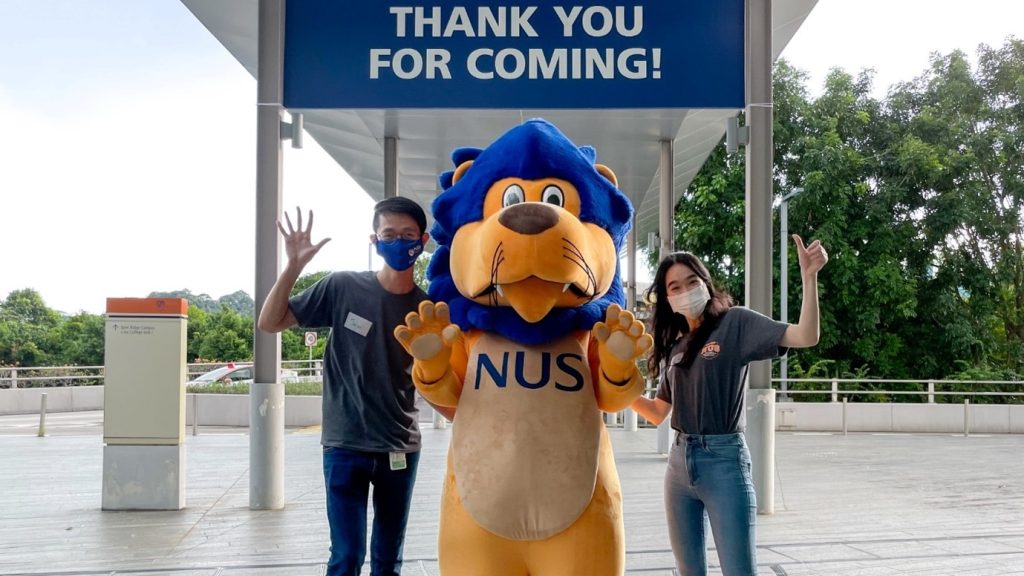
This story first appeared on NUSNews on 8 March 2022.
New Courses for the New Economy
IN BRIEF | 5 min read
- NUS is offering a number of new programmes to prepare graduates for the future, including the much-anticipated Major in Anthropology, and Minor in Interpreting by the NUS Department of Chinese Studies.
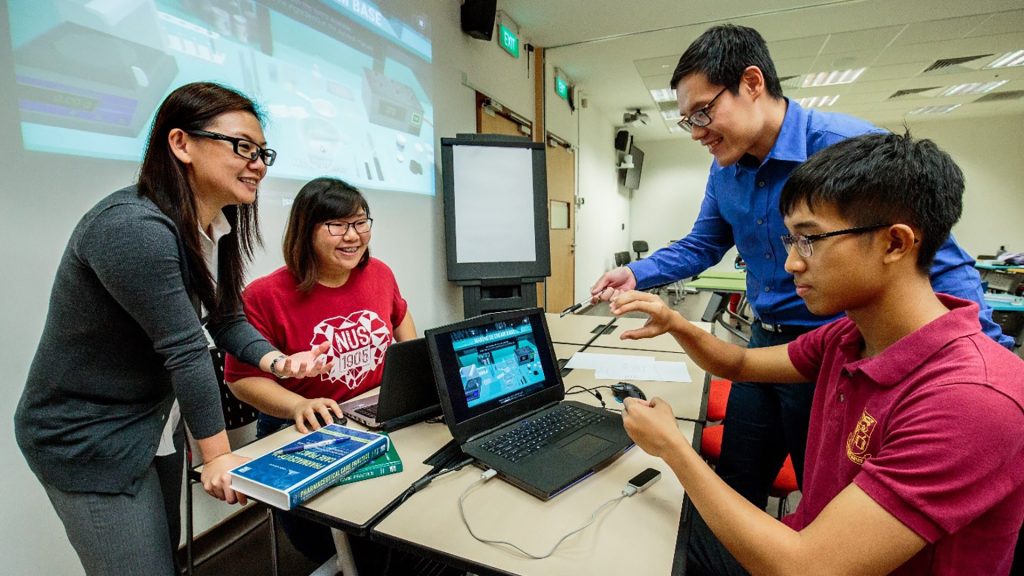
The University’s key theme of preparing undergraduates for the workplace of the future will be further enhanced with the launch of new majors, minors and degree specialisations in the upcoming academic year. About 10 new courses are on the cards.
New programmes from the NUS College of Design and Engineering (CDE), NUS Faculty of Science, NUS School of Computing, and NUS Faculty of Arts and Social Sciences will cover areas such as Artificial Intelligence, technology, data science, sustainability, globalisation. They will add on to the interdisciplinary offerings by the flagship NUS College, Singapore’s first honours college welcoming its first cohort in August – as well as those by the College of Humanities and Sciences (CHS).
“The overall goal of all our education reform efforts is to advance a university curriculum that prepares students well for a Fourth Industrial Revolution world and workplace,” said Professor Bernard Tan, NUS Senior Vice Provost (Undergraduate Education).
“Our education, focused on both breadth and depth, ensures that our graduates are held in high regard by employers. Last year, more than nine in 10 NUS graduates secured a job within six months of their final examinations.”
New majors and minors
Bachelor of Engineering (Infrastructure and Project Management)Offered by CDE’s Department of the Built Environment, this degree will equip graduates with the knowledge and interdisciplinary skills to excel in the multifaceted built environment. This is the first interdisciplinary full-time undergraduate programme to cover engineering, design, management, technology, building science and law modules. Major in Anthropology
Offered by the NUS Faculty of Arts and Social Sciences to all CHS students, this major will study the range of human diversity, accounting for how people in different times and places have developed into distinctly different societies. The degree will expose students to a vast variety of different beliefs and health practices, economic and political systems, material culture, and even different notions of beauty, the environment, food, family, and the good life.
Anthropology is much sought after for the sort of training it offers its students – a ground up approach to developing deep understanding on just about every aspect of the human condition. Students will be equipped to better understand and deal with the chaos, uncertainty, and ambiguity that characterises the contemporary age.
Second Major in Sustainable Urban DevelopmentOffered by CDE’s Department of Civil and Environmental Engineering, it aims to train the next generation of urban problem-solvers. They will be equipped with interdisciplinary knowledge and skills to create sustainable urban environments in the context of the changing climate. Open to all NUS undergraduate students, this major is stackable to students’ primary major in their chosen field, and can be completed in four years with no additional academic workload. Second Major in Nutrition
This will be offered by the Faculty of Science to all CHS students, including those reading Food Science and Technology as the primary major. It is designed to equip students with knowledge in human nutrition, providing them with the necessary foundation to develop a cross-disciplinary perspective along the food supply chain – from farm to fork to health. Minor in Interpreting
Multilingualism is a defining characteristic of Singapore’s multi-ethnic, immigrant society. With four official languages and with English as the working language, translating and interpreting between each of the mother tongues and English has always been a prominent feature of Singapore society. Against this backdrop, the NUS Department of Chinese Studies has placed as one of its core objectives, the training of graduates with strong Chinese-English bilingual skills who can become leaders in the translation and interpreting arenas.
This new Minor will allow students a related alternative to translation, or as an affiliated Minor to Translation which is already being offered at the Department.
New specialisations
Three new specialisations will be offered by the NUS School of Computing:
Specialisation in Digital Product and Platform ManagementThis will be offered to students pursuing the Bachelor of Computing (Information Systems) Degree. They will build up a repertoire of knowledge and skills sought after by both technology companies and the digital immigrant companies that are fast adopting the product- and platform-centric technology and business operating models. Specialisation in Intelligent Systems Solutioning
Students pursuing the Bachelor of Computing (Information Systems) Degree can also take this new specialisation to learn to implement and apply intelligent system solutions buttressed by the new technologies of Artificial Intelligence, the Internet of Things, and Augmented Reality. They will learn to apply these new technologies in software engineering, and to implement and manage intelligent system solutions. Graduates will be able to take on job roles in intelligent systems engineering and solutioning. Specialisation in Machine Learning-based Analytics
This new specialisation for Bachelor of Science (Business Analytics) students will enable students to tap into the analytics capabilities of Machine Learning, a sub-field of Artificial Intelligence. They will learn to rapidly and automatically develop models that can quickly and accurately analyse massive, complex data sets, in order to help businesses unlock the value of corporate and customer data and enact decisions that keep them ahead of the competition. Graduates will be able to take on careers in the rapidly-growing business and data analytics field, among others.
New modules
Aside from the new majors, minors and specialisations, a number of new modules are being offered. For instance, the NUS School of Computing is starting a Digital Ethics and Data Privacy module to educate students on this pertinent and pressing issue.
The NUS Faculty of Law is introducing two modules – one on Law & Technology and one on Data Literacy – as technology and data are increasingly being key drivers for the legal industry.
Find out more about the courses offered by the University, and explore this year’s Open House. Here are four things to look out for at the Open House.
This story first appeared on NUSNews on 24 February 2022.
NUS Open House 2022: Interdisciplinary Offerings, In-person Activities and More!
IN BRIEF | 5 min read
- NUS Open House 2022 is back with opportunities for prospective students to meet NUS professors, students and alumni face-to-face, after two years of connecting virtually.
- Running from 26 February through 5 March, NUS Open House 2022 will begin with a comprehensive line-up of informative activities, including the online segment, during the week leading up to the physical Open House, which takes place on Saturday, 5 March from 9 am to 7 pm across NUS’ campuses in Kent Ridge and Bukit Timah.

NUS Open House 2022 is back with opportunities for prospective students to meet NUS professors, students and alumni face-to-face, after two years of connecting virtually.
The physical event will take place on Sat, 5 Mar from 9am to 7pm across NUS’ campuses in Kent Ridge and Bukit Timah. This will be preceded by a comprehensive line-up of informative activities during the week leading up to the physical Open House.
Including the online segment, NUS Open House 2022 takes place from 26 Feb to 5 Mar. Here’s a heads-up on four things to check out:
1. Exciting interdisciplinary offerings
NUS College, Singapore’s first honours college, was formed by the merger of the University Scholars Programme and Yale-NUS College. Offering an immersive, experiential and interdisciplinary educational journey, it will welcome its first batch of students this year. Students will have a home college or faculty, say, Business or Engineering, while simultaneously being enrolled at NUS College. There, they will have the opportunity to enjoy a holistic interdisciplinary curriculum that is complementary to their major.
Another option for interdisciplinary learning can be found at NUS College of Design and Engineering. The College offers a programme that prepares students for the future through interdisciplinary learning and robust research in the fields of engineering and design. At the College, students are given the flexibility to build and design their own learning experience.
The NUS College of Humanities and Sciences, the enhanced undergraduate experience for students of the Faculty of Arts & Social Sciences and the Faculty of Science, is accepting its second intake this year. The College offers 13 Common Curriculum pillars consisting of modules such as scientific inquiry, humanities, digital literacy, design thinking, artificial intelligence and many more exciting options. These are complemented by majors and minors spanning the arts, humanities and sciences, such as global studies, philosophy, theatre and performance studies, quantitative finance, data analytics and pharmaceutical science. Students can pick and choose modules to create a customised curriculum that matches their interest and aspirations.
To ensure that graduates are ready to take on leading roles in the New Economy, NUS constantly develops new courses. Here are this year's new offerings.

2. Meeting you in person - again
After two years of meeting virtually, the NUS community is excited to get together in real life with prospective students once again!
You can look forward to an enlightening schedule of in-person activities including a tour of the Centre for Healthcare Simulation by NUS Nursing; tours of residential living options such as Tembusu College, CAPT (College of Alice & Peter Tan), and RC4; a live demonstration of a moot court session and tour of the NUS Bukit Timah campus by NUS Law; tours and a showcase of NUS College; as well as a live question-and-answer session with Duke-NUS Medical School.
3. Webinars, talks, live chats, hotlines and more
Get a taste of life as an NUS student, even before the physical event. A host of insightful webinars, talks, question-and-answer sessions, live chats, hotlines, and virtual tours have been arranged starting 26 Feb to give you a head start on topics such as admissions, student life, and on-campus living, as well as programmes offered by NUS College, the College of Design and Engineering, the College of Humanities and Sciences, Business, Music and many more.
Obtain behind-the-scenes knowledge from NUS student ambassadors and the NUS Students’ Union on the rich student life available at NUS, and be serenaded by NUS Choir and NUS Jazz Band.
Professors will be on hand to share information on their respective programmes, and you’ll even have a chance to sit in on classes. Have a question that is not covered by the briefing? No sweat! There’ll be chat sessions with NUS Admissions, professors and students from selected programmes during which you can get your queries addressed.
Click here for the list of virtual and in-person activities for NUS Open House.

4. Exciting student life
NUS offers a myriad options for a rich student life, and NUS Open House is the perfect place to start exploring the possibilities. Many alumni recall their NUS days fondly, remembering not only the academic progress they made, but the camaraderie forged with friends from clubs, societies and on-campus residences.
Throughout the period of the online Open House and during the physical event, representatives from various student-led groups will speak on topics including hall life, clubs and societies, as well as campus performing groups. Take part in a live session with music and dance groups, embark on a virtual residential tour, and more.
We’re looking forward to seeing you online from 26 Feb and in-person on 5 Mar!
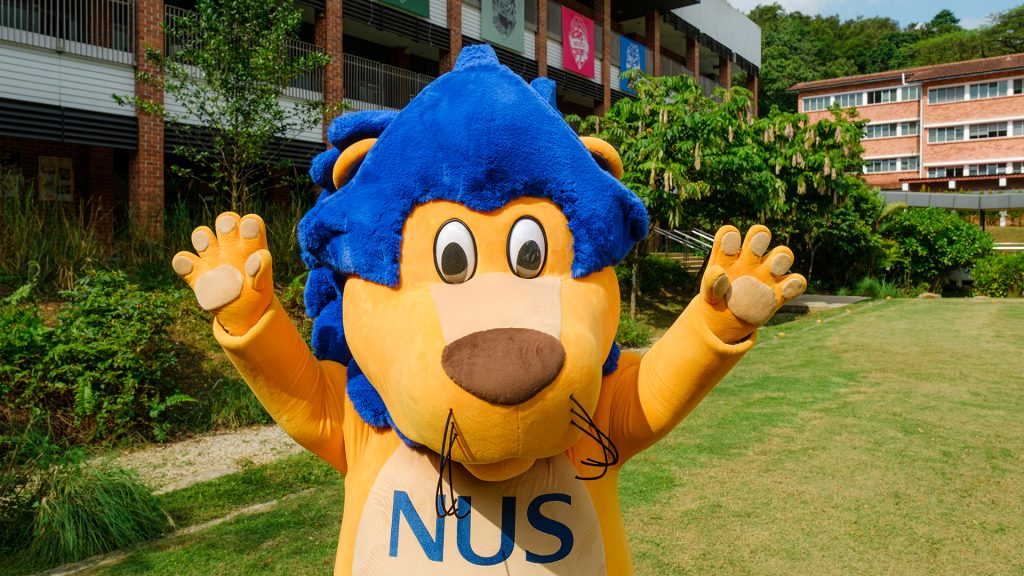
This story first appeared on NUSNews on 23 February 2022.
FASS Inspiring Mentor 2021 Award Winners Announced

The NUS Faculty of Arts and Social Sciences is proud to announce the winners of the 2021 FASS Inspiring Mentor Awards.
Congratulations to:
- Prof Jack Qiu Linchuan, Professor, Department of Communications and New Media
- Assoc Prof Loy Hui Chieh, Associate Professor, Department of Philosophy
- Assoc Prof Robin Loon Seong Yun, Associate Professor, Department of English Language and Literature
- Dr Michael Yoshitaka Erlewine, Assistant Professor, Department of English Language and Literature
- Dr Nina Laurel Powell, Senior Lecturer, Department of Psychology
Winners of AY2020-21 Faculty Teaching Excellence Awards Unveiled
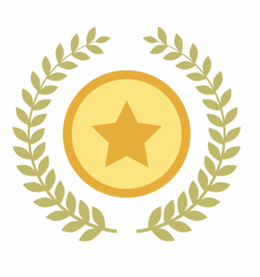 The NUS Faculty of Arts and Social Sciences is proud to announce the 37 winners of the Faculty Teaching Excellence Award for their work in AY2020‐21, 16 of which have also been nominated for the Annual Teaching Excellence Award(ATEA) and Annual Digital Education Award (ADEA).
The NUS Faculty of Arts and Social Sciences is proud to announce the 37 winners of the Faculty Teaching Excellence Award for their work in AY2020‐21, 16 of which have also been nominated for the Annual Teaching Excellence Award(ATEA) and Annual Digital Education Award (ADEA).
Special thanks are due to members of the Faculty Teaching Excellence Committee–Dr Susan Ang (English Language and Literature and Chair of FTEC), A/P Loy Hui Chieh (Philosophy; FASS Vice‐Dean), A/P Lim Wee Hun, Stephen (Psychology), Dr Gilbert Yeoh (English Language and Literature) and Mrs Chen Ing Ru (Centre for Language Studies)–for their efforts in shortlisting and nominating the winners.
|
NAME |
DEPARTMENT |
|
Mr Appriou Yannick Francois |
Centre for Language Studies |
|
Ms Baranska, Malwina |
Centre for Language Studies |
|
Ms Klayklueng, Sasiwimol |
Centre for Language Studies |
|
Ms Morita, Kazuko |
Centre for Language Studies |
|
Dr Chaidaroon Suwichit |
Communications and New Media |
|
Dr Hong Renyi |
Communications and New Media |
|
Dr Mitchell, Alexander Ian |
Communications and New Media |
|
Dr Shobha Avadhani |
Communications and New Media |
|
Mr Tan Kai En |
Communications and New Media |
|
Dr Timothy Wong Chong Ji |
Economics |
|
Dr Vu Thanh Hai |
Economics |
|
A/P Michelle M. Lazar |
English Language & Literature |
|
Dr Miguel Escobar Varela |
English Language & Literature |
|
A/P Starr Rebecca Lurie |
English Language & Literature |
|
A/P Thell Anne Marie |
English Language & Literature |
|
Dr Roy, Tania |
English Language & Literature |
|
A/P Chang Tou Chuang |
Geography |
|
A/P Daniel Adam Friess |
Geography |
|
Dr Gretchen Christina Coffman |
Geography |
|
Dr Kamalini Ramdas |
Geography |
|
Dr Kenney-Lazar Miles Richard |
Geography |
|
Dr Teo Sheng Kiat, Shaun |
Geography |
|
Dr Donna Maree Brunero |
History |
|
Dr Lawrence, Kelvin |
History |
|
Dr Sayaka Chatani |
History |
|
Dr Beddor, Robert Speeter |
Philosophy |
|
Prof Bain, William Ward |
Political Science |
|
Dr Dunya Deniz Lepori |
Political Science |
|
Dr Jia Lile |
Psychology |
|
Dr Nina Laurel Powell |
Psychology |
|
Dr Wong Shi Hui Sarah |
Psychology |
|
Dr Peace Wong Yuh Ju |
Social Work |
|
Dr Chua Hui Ching, Emily |
Sociology |
|
Dr Elliott Edward Prasse-Freeman |
Sociology |
|
Dr Jennifer Emily Estes |
Sociology |
|
Dr Noorman Abdullah |
Sociology |
|
Dr Radics, George Baylon |
Sociology |
Congratulations to them all!
FASS Announces New Additions to Leadership Team
IN BRIEF | 2 min read
The NUS Faculty of Arts and Social Sciences is pleased to announce recent new appointments to the Faculty's leadership team.
Three eminent members of the Faculty received new appointments to the Deanery at the beginning of this year:
- Professor Joseph Park (English Language and Literature)
Vice-Dean (Undergraduate Studies) - Dr Zhang Yang (Economics)
Associate Dean (Undergraduate Studies) - Dr Noorman Abdullah (Sociology)
Assistant Dean (External Relations and Student Life)
We wish them the very best with their new portfolios. Click here to visit the FASS Deanery page.




Looking to 2022: Celebrating the Year’s Three Anniversaries by Prof Tommy Koh
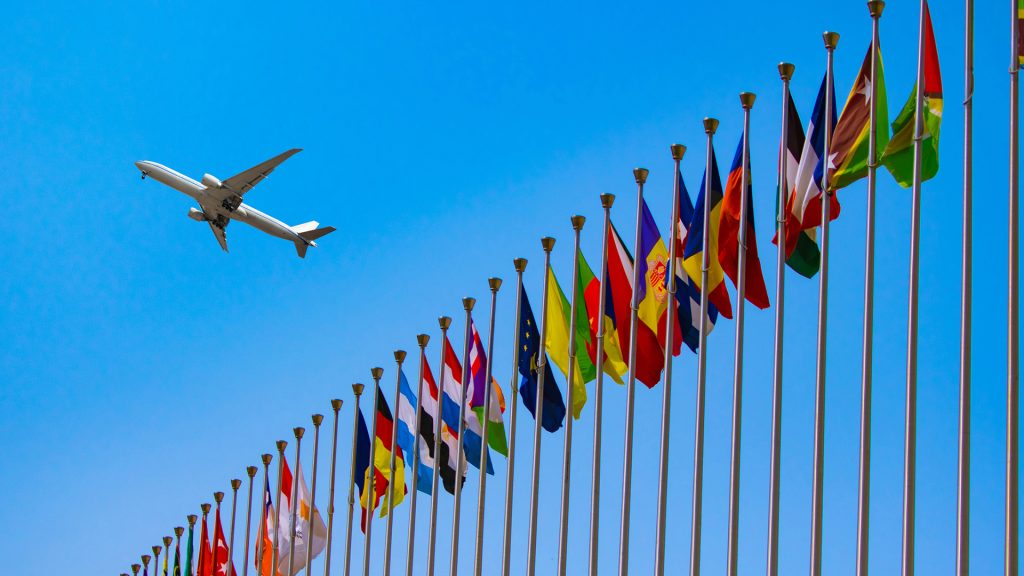
The last two years have brought untold pain, sorrow and destruction to the world. With vaccination and other preventive measures, I see light at the end of the tunnel. We need good news to restore our morale. I have therefore decided to write a positive essay about 2022. In 2022, we will celebrate the 40th anniversary of the UN Convention on the Law of the Sea, the 30th anniversary of the Forum of Small States and the 25th anniversary of the Asia-Europe Foundation.
UNCLOS at 40
The UN Convention on the Law of the Sea or UNCLOS, in short, was adopted in 1982, after nine years of negotiation. It came into force in 1994. It has 168 parties, including the European Union. There is a Singapore Connection to UNCLOS. In the final year of the conference, I was elected as its president.

Why is UNCLOS an important treaty?
It is an important treaty for several reasons.
First, the oceans cover 70 percent of the earth’s surface. It is a source of food for the people of the world. It is the highway for shipping and maritime trade. It functions as the blue lung of the planet. UNCLOS seeks to regulate all aspects of the uses of the oceans and their resources.
Second, UNCLOS has given the world clear legal rules on the maximum breadth of the Territorial Sea, the fishing rights of costal stress, special regimes of passage for ships and aircraft through and over international straits and archipelagos, etc.
Third, UNCLOS is a victory for international cooperation, for multilaterism and for the rule of law. Because of UNCLOS there is peace of sea.
FOSS at 30
The United Nations has 193 members. The majority of the members are small countries. The world favours the big and strong. Small countries often feel that they are being treated as second class citizens. A glaring sample of this inequality can be seen in the composition of the UN Security Council. The five permanent members, USA, China, Russia, France and UK are big countries.
In 1992, Singapore took an important initiative at the UN. It established the Forum of Small States. Any country whose population is below 10 million is eligible to join.
FOSS has 108 members. This is more than half the membership of the UN. Since every country has one vote at the UN, the combined voting power of FOSS gives it salience. Before FOSS, it was difficult for small countries to get elected to various UN bodies. It is less difficult now.
By joining forces, FOSS has empowered small countries in other ways. The big countries can longer afford to ignore the small countries. The senior officials of the various international organisations welcome opportunities to meet with FOSS. FOSS has amplified the voices of the small countries. It has also strengthened the negotiating leverage of small countries. We still live in an unequal world. FOSS has made it a little less unequal.
ASEF at 25
The second Prime Minister of Singapore, Mr Goh Chok Tong, is responsible for many important international initiatives. One of them is the Asia-Europe Meeting or ASEM. Mr Goh felt that it was strategically important to build a bridge linking Asia and Europe. He proposed a summit meeting between the leaders of Asia and Europe. This was held in Bangkok in 1996.
At the ASEM summit, in Bangkok, PM Goh proposed the establishment, in Singapore, of the Asia-Europe Foundation. The proposal was adopted by the summit. The objective of the foundation is to promote better mutual understanding between the people of Asia of Europe. We seek to achieve this objective by bringing together the students, youth, intellectuals, artists, parliamentarisms, think-tanks, universities, museums, etc. from the two regions.
I was appointed as the first executive director of ASEF. My deputy was from France. My other senior colleagues came from Germany, UK, and China. We were energized by our historic mission. I was in Europe almost every month, helping to organize inter-regional meetings or speaking to conferences. It was a very busy period of my life.
During my tenure, ASEF had 13 Asian members and 15 European members plus the European Commission. Today, ASEF has 21 Asian members and 30 European members. The substantial increase in its membership is one indication of the success of ASEF.
About the Author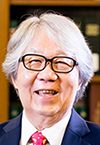 Professor Tommy Koh is Professor at NUS Law, and the Rector of NUS Tembusu College. He is also Ambassador-at-Large at Singapore’s Ministry of Foreign Affairs; Chairman of the Centre for International Law of NUS; and Special Advisor of the Institute of Policy Studies at NUS. A veteran diplomat and academic, Prof Koh’s former roles include being Dean of NUS Law (1971-1974), Singapore's Permanent Representative to the United Nations (1968-1971 and 1974-1984), and Singapore’s Chief Negotiator for the US-Singapore Free Trade Agreement (2000-2003).
Professor Tommy Koh is Professor at NUS Law, and the Rector of NUS Tembusu College. He is also Ambassador-at-Large at Singapore’s Ministry of Foreign Affairs; Chairman of the Centre for International Law of NUS; and Special Advisor of the Institute of Policy Studies at NUS. A veteran diplomat and academic, Prof Koh’s former roles include being Dean of NUS Law (1971-1974), Singapore's Permanent Representative to the United Nations (1968-1971 and 1974-1984), and Singapore’s Chief Negotiator for the US-Singapore Free Trade Agreement (2000-2003).
Looking to 2022 is a series of commentaries on what readers can expect in the new year. This is the first installment of the series.
NUS Bags Major PR Award for College of Humanities and Sciences Campaign

One year since the official inauguration of the NUS College of Humanities and Sciences (CHS), the publicity campaign for the new College has gained recognition at the recent Public Relations in the Service of Mankind (PRISM) Awards.
The University bagged a Distinction Award in the category “Outstanding Campaign by a Non-Government Organisation or Not-For-Profit Organisation” for the launch and publicity of the interdisciplinary College.
The award recognises NUS’ effective communications regarding the necessity of an interdisciplinary education to faculty members, prospective students and their parents, alumni, employers, and members of the public.
The campaign also underscored what CHS offers students in a world plagued by complex challenges that require integrated interdisciplinary approaches. The campaign included the launch event, student profiles, social media, and CHS collaterals and media assets in the form of CHS-specific infographics, news and FAQs.
The campaign also included a video series on interdisciplinarity, a podcast series by the teaching team of the common curriculum Humanities module, and stakeholder endorsement in the form of testimonials from students and alumni of NUS Faculty of Arts and Social Sciences (FASS) and the NUS Faculty of Science (FoS) who have pursued interdisciplinary studies. A successful admissions publicity campaign was run, including the 2021 NUS Open House which drummed up interest in the College with student and employer panels, small group tours, and student chat rooms.
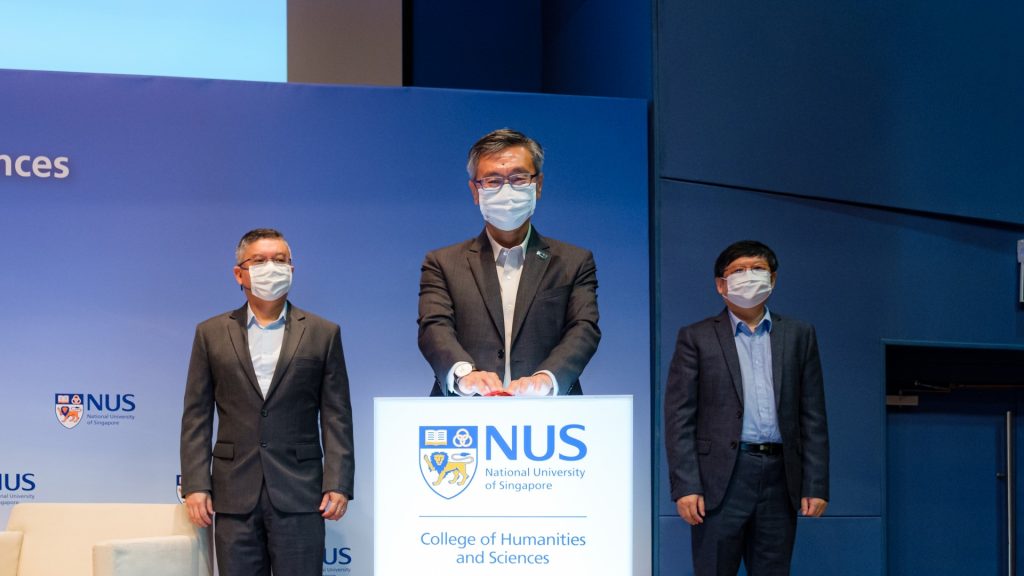
The accolade from PRISM, which coincides with the one-year anniversary of the official inauguration of CHS, bears testament to the concerted effort on multiple fronts of the campaign by various stakeholders, including the Communications teams from FASS and FoS, the NUS Office of University Communications and communications agency AKA Asia.
“The award comes as a truly wonderful one-year anniversary gift to all our colleagues involved in the CHS campaign,” said NUS Chief Communications Officer Ms Ovidia Lim-Rajaram.
“It is gratifying to know that our efforts to kickstart a meaningful, groundbreaking programme at the College are paying off, and that the journey to promoting an interdisciplinary, 21st-century educational experience at NUS is off to a great start.”
Communications at CHS is co-led by Mr Nisar Keshvani, Associate Director for Strategic Outreach and Communications at FASS, and Ms Janice Quah, Associate Director for Corporate Communications at FoS.
“The campaign award, a result of the synergy and collaboration across diverse University faculties and departments, epitomises the spirit of interdisciplinarity that CHS values, and the idea of capitalising on each other’s strengths to achieve the best outcomes,” Mr Keshvani said.
Ms Quah added, “It has been a challenging journey but seeing our communications ideas collectively come to fruition is truly fulfilling! The validation of the hard work motivates us to continue raising the bar, to sustain the impactful profiling of CHS to students and stakeholders.”
Recognising the best in public relations
Celebrating 44 winners across 27 categories, the PRISM awards ceremony was held on 15 Dec by the Institute of Public Relations Singapore (IPRS), the only accrediting body for public relations practitioners in Singapore. The Guest of Honour was Mr Tan Kiat How, Minister of State at the Ministry of Communications and Information (MCI).
Acknowledging the challenges of a shifting communications landscape, Mr Tan said, “MCI recognises the importance of excellence in public relations and communications across all sectors of the economy.”
“The campaigns up for awards today show how all of you have worked around these challenges and continued to achieve excellent levels of reach and impact.”
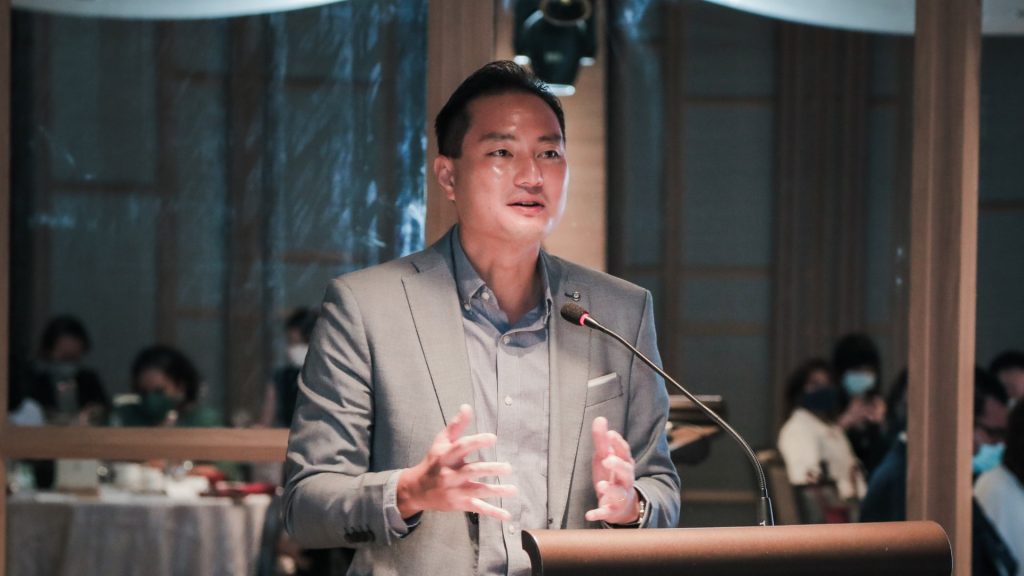
Held biennially since 1987, the PRISM Awards is one of the oldest and most prestigious awards in the industry, celebrating Singapore’s brightest stars in the communications and public relations industry. It is judged by a panel of established business leaders and senior practitioners, recognising and honouring organisations and individuals for excellence in public relations and communications.
Ms Koh Juat Muay, President of the IPRS Council 2021/2023 said, “The winning entries and the winners this year reveal a singular story – the resilience of our people, the ingenuity of the campaigns and strength of the organisations that continues to thrive in an evolving local and global communications landscape.”
“IPRS is privileged to hold PRISM Awards 2021 and share in the pride of profession demonstrated by our people and in the brilliance of their campaigns. Our winners truly embody the meaning of PRISM and that is Public Relations In the Service of Mankind,” she added.
This story first appeared in NUSNews on 21 December 2021.
An Interview with Emeritus Prof S. Vasoo and Assoc Prof Winston Goh on The Strange Start of Psychology at the National University of Singapore
The Strange Start of Psychology at the National University of Singapore (NUS Department of Psychology, 2021), showcases the history of the NUS Faculty of Arts and Social Sciences' Department of Psychology, Singapore's oldest psychology programme. The programme, which kicked off during the 86/87 academic year at the Department of Social Work (renamed the Department of Social Work and Psychology), became a department in 2005.
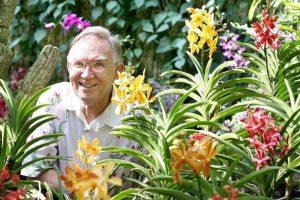
Author Dr John Michael Elliott (1945-2019), who was at the time a psychologist at the then Ministry of Social Affairs, joined the programme six weeks after it began and retired in 2018.
As the book explains, in Singapore, historically psychology was viewed more as clinical work that supported psychiatry, and mental health care was deprioritized. Instead, during the island's colonial era, patients requiring mental health treatment were institutionalized in The Insane Hospital, which commenced operations in 1841 with 30 beds. This hospital evolved into The Lunatic Asylum (1862, 100 beds), followed by The New Lunatic Asylum (1887, 300 beds), and then the Mental Hospital in 1928, which became Woodbridge Hospital in 1951.
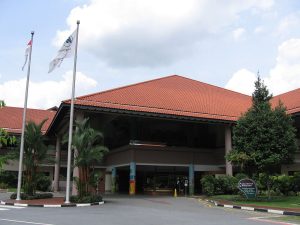
In 1993, Woodbridge Hospital moved to Buangkok Green, becoming the Institute of Mental Health's new inpatient facility.
There was a definite need for trained psychologists in Singapore, as well as a programme to train them, since, post-independence, all psychologists in the country completed their education abroad. When the NUS psychology programme got started in July 1986, however, the discipline was still often seen as non-Asian and more as medical training than a social sciences course, and also as a luxury in the realm of social work. The Department of Social Work was an ideal place for the new programme, Dr Elliott notes, as it would contribute to the department's own development, enabling it to offer an honours degree in social work and psychology.

The NUS psychology programme's initial cohort had 72 students and 1 staff and grew rapidly. There are currently around 900 students in the introductory psychology module and 220 honours graduates annually. At its inception 35 years ago the programme offered a three year general degree with a competitive fourth year honours degree. In 1989, 50 students received a general degree, 11 of whom went on to get an honours degree. Today, the department's own clinical psychology master's programme graduates approximately 15 annually, and psychology graduate students can also obtain a Master of Social Sciences or PhD.
The NUS Department of Psychology ranks 16 out of 303 on the Quacquarelli Symonds list and psychology is a well recognized and respected course of study in Singapore. Many graduates go on to engage in psychological work in the public sector, such as in Singapore's Ministries of Health, Defense, Home Affairs, and Social and Family Development. A number of graduates are also employed in private sector positions involving psychological work like human resource management and marketing, or in private practice in the fields of clinical, counselling, and industrial-organisational psychology, among others.

We discussed the The Strange Start of Psychology at the National University of Singapore, which has an online launch on Friday, 10th December at 11 am, with Associate Professor Winston D. Goh, the current NUS Department of Psychology Head, and Emeritus Professor S. Vasoo, who led the then NUS Department of Social Work and Psychology from 1987 to 1999.
 A/P Vasoo Q & A
A/P Vasoo Q & A
1. What were your most memorable experiences developing the new psychology programme during your term leading the NUS Department of Social Work and Psychology?
I have been teaching students and working with academic staff for about 50 years. In the course of these years, I always encouraged and advised them not to look back on events that had surpassed them. This is because memorable matters would not come back and one would not be able to deal with the bygones. No point spending time lamenting over things that have gone past as it can be emotionally costly and tiring. I always encourage students and academic staff to look ahead on events that will be forthcoming as these can be managed as they unfold and are within their control. I am of the opinion that various human issues that we can grasp at hand are largely solvable as long as we persistently tackle them with empathy. It is only with good empathy that we can have clearer insights to deal with human issues and relationships.
I recall that one of the challenging tasks that I had to deal with as the Head of the Department of Social Work and Psychology was to quickly recruit a group of Psychology academic staff to deliver the undergraduate psychology programme in 1986. I had selected staff with diverse psychology training such as a developmental psychologist, a cognitive psychologist, a social psychologist, an experimental psychologist, a clinical psychologist, and a psycholinguist. You can imagine with these varied backgrounds coming together to agree on a basic undergraduate curriculum was not easy. Each of them had different hobby horses to ride, which was understandable while mind-boggling, as there were protracted views within the group and at times heated arguments that I had to mediate. I brokered a deal as a non-partisan and drew a consensus among the different psychological academic personalities for the need to develop a top-notch undergraduate psychology programme based on the best psychology departments in the United Kingdom and United States. The foundation laid for the early phase of the psychology programme saw the fruition of some of our top psychology scholars in the Faculty of Arts and Social Sciences. I am indeed proud to witness that some of these accomplished scholars have become lead anchors of the NUS Department of Psychology and later appointed Heads. The nurturance of these top scholars have helped stabilize the psychology programme and provided succession of leadership. They also supported the Deanery of the Faculty of Arts and Social Sciences.
2. What can psychologists learn from social workers, and what can social workers learn from psychologists?

To put it simply, both psychology and social work are non-identical twin disciplines with each having to deal with human behaviour and social issues. As a psychologist, one has to understand human behaviour and the cause of such behaviour, and as a social worker, one has to understand the cause of social and human problems and then enable people to find ways to problem solve. Both disciplines deal with human and psychosocial issues, and human behaviour requires a multidisciplinary focus. I would say that no single discipline is adequate to solve human life course issues. I must add that a good psychologist will require social work lenses and a competent social worker needs to have helpful psychological lenses. As one will appreciate, we are all human beings and are ecologically bounded. Therefore both psychological and social work analyses are critical to better appreciate human behaviour and social interactions, and these can contribute to effective human and social problem solving.
3. What do you see as the most notable impacts in practice of social work and psychology in Singapore so far and in the future?

Psychology graduates as well as social work graduates are making robust contributions in public service, private enterprises, and non-governmental organisations. Psychologists hold highly respectable positions in areas such as clinical services, rehabilitation, health, human resources, education, the armed forces and the police, besides others. Increasingly, psychologists are needed to contribute psychological solutions to strengthen our psychological defences against various societal crises.
Likewise, social workers are also appointed in highly regarded positions in fields such as social services, rehabilitation, health, social research, counselling and mental health, education, the armed forces, and childcare, among others. Both psychologists and social workers have so far given valuable suggestions and inputs to policy changes to the care and protection of children, youth, and women, and in the support of the vulnerable and the promotion of inclusiveness of people with special needs.
Singapore like the rest of the world will be confronted with serious social and ecological changes, including the consequences of unabated climate change. In view of these changing scenarios, our future psychologists will have to be equipped with psychological skills in assessing the impact of human behaviour on mitigating issues related to the environment and climate change as well in order to have good insight into the social and psychological consequences of an ageing Singapore community. Trainee social workers can be better equipped with social analytical skills, which will make them more versatile in predicting specific vulnerable sectors of the community. Thereby, the future social workers can enhance their community problem solving capacity by building more support networks to build a socially healthy community. Specifically, more attention can be paid by both social workers and psychologists to deal with the social and psychological implications of the growing social divide between the haves and have-nots, and find more innovative ways to deliver services to enable the less well-off to move up.
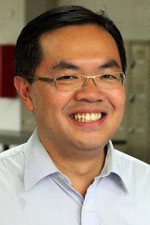 A/P Goh Q & A
A/P Goh Q & A
1. What are some of your fondest memories of Dr John Elliott, first as a teacher, and later as a colleague?
John encouraged critical thinking and we always had very illuminating discussions during his tutorials (see photo on page 28); of course, tutorials at that time only had between 5 and 7 students, so very difficult to hide! He was quite a tough marker though - never got an A from him for my term papers; but then again, As were given out very sparingly during that period (and there were no CAs at that time; the term paper grades were not counted). As a colleague, he was always willing to give advice to young hires, and his experience helped me immensely in the crafting of exam questions when I first started helming my own modules. I also remember he was very particular in signing or agreeing to legal documents - he once refused to upload materials into IVLE (the forerunner of LumiNUS) because he felt NUS did not provide enough protection for staff.
2. What motivated you to study psychology at NUS as an honours and then Masters student, and what prompted you to return to the department to teach and carry out research projects?
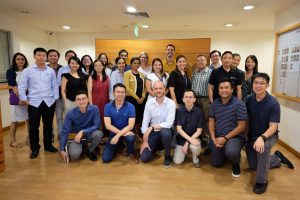 I was in the pre-med programme in junior college, so the path seemed straightforward for me. But I started reading about psychology as a course in various government information booklets and thought this was more interesting than medicine - I also didn't do well at the A levels, so perhaps this was fate telling me to take another path. However, this meant you had to go overseas as there was no psychology programme offered locally and my parents could not afford an overseas education. So when I was accepted in FASS, I was set to major in the closest one at the time - Sociology. I didn't start right away as I had to serve National Service; and in my second year of NS, I found out that NUS had started a psychology programme (again, fate may have been looking out for me!). Fortunately, I did well enough in the aptitude test (required then) to be allowed to major in Psychology. Everyone was hoping to do Honours, and at the time, you had to be invited, so I was elated when the Department of Social Work and Psychology offered me Honours, no motivation required. As for the Masters, I worked as an RA after completing my Honours, so I wanted to see if a research and academic career appealed to me, and decided to do my Masters while I was a TA for the Department. After that, NUS funded my PhD overseas on a staff development scheme, so I was obligated to return to serve a bond. In a sense, NUS Psychology has been my home since I started as an undergrad student, for I never left!
I was in the pre-med programme in junior college, so the path seemed straightforward for me. But I started reading about psychology as a course in various government information booklets and thought this was more interesting than medicine - I also didn't do well at the A levels, so perhaps this was fate telling me to take another path. However, this meant you had to go overseas as there was no psychology programme offered locally and my parents could not afford an overseas education. So when I was accepted in FASS, I was set to major in the closest one at the time - Sociology. I didn't start right away as I had to serve National Service; and in my second year of NS, I found out that NUS had started a psychology programme (again, fate may have been looking out for me!). Fortunately, I did well enough in the aptitude test (required then) to be allowed to major in Psychology. Everyone was hoping to do Honours, and at the time, you had to be invited, so I was elated when the Department of Social Work and Psychology offered me Honours, no motivation required. As for the Masters, I worked as an RA after completing my Honours, so I wanted to see if a research and academic career appealed to me, and decided to do my Masters while I was a TA for the Department. After that, NUS funded my PhD overseas on a staff development scheme, so I was obligated to return to serve a bond. In a sense, NUS Psychology has been my home since I started as an undergrad student, for I never left!
3. What future plans are in the works for NUS Psychology and how do they connect to the need for scholars and practitioners of the discipline in Singapore and the region?

Top psychology departments in the world are very well resourced with research spaces, laboratories, and facilities; so we hope to move in that direction and provide all of our research-active staff dedicated lab spaces to do research that will benefit Singapore and the discipline in general. We will also need to see how many more students (we have always been one of the more in-demand majors since inception) will want to be Psychology majors with the advent of the College of Humanities and Sciences, and perhaps develop various teaching innovations to serve an even more expanded student body (the days of 5-7 pax tutorials, or a 10-student Honours cohort in my year, are long gone). But we have very good educators in the department, so I am not worried about that. Our Clinical Psychology Masters programme is also in very high demand, given the focus on mental health needs nowadays. So we will need to see how we can support training for manpower needs in the public and private sectors in terms of workshops for associate psychologists, in additional to training people to be professional clinical psychologists.
Thank you very much for your time and answers, Prof Vasoo and A/P Goh! Readers can learn more about the history of the NUS Department of Psychology here. Catch the book launch on Friday December 10th at 11 AM by registering via Zoom.
LESSONS FROM THE DREAM FACTORY
IN BRIEF | 4 min read
- Alumni entrepreneurs from the NUS Overseas Colleges programme share the profound influence the experience has had on them.
A WORLD OF POSSIBILITIES Since the pioneer batch of 14 NUS students headed to Silicon Valley in 2002 as part of a partnership with Stanford University, the NUS Overseas Colleges (NOC) programme has grown to more than 15 cities, from Shenzhen to Stockholm. Melding start-up internship with academic studies at partner universities, the programme is considered a rite of passage for aspiring entrepreneurs. Six NOC alumni share their experiences of the programme, and the insights gained from it.
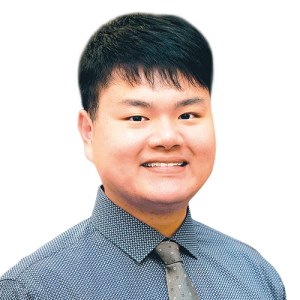
Engineering ’21
Mr Ang Yi Shuan
Postgraduate at NUS Graduate Research Innovation Programme (GRIP)
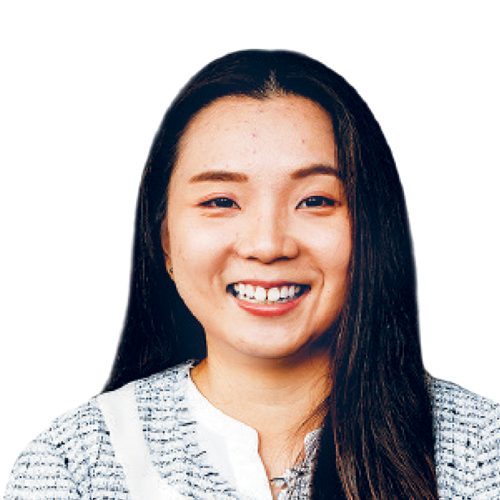
Arts and Social Sciences ’21
Ms Cordillia Ann Tan Mei Yu
Director of Pitstop Tyres
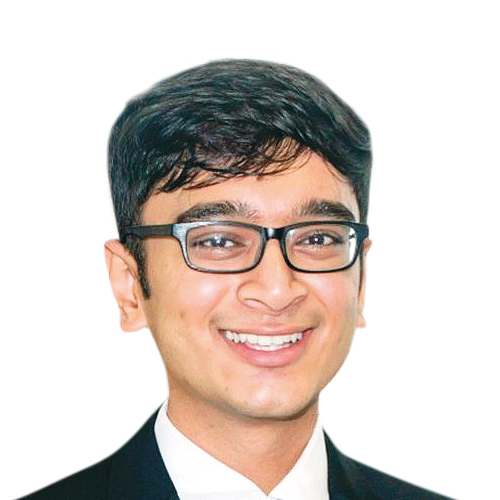
Engineering ’20
Mr Dobariyapatel Hardik Kishor
Co-founder of Factorem

Business ’20
Mr Mohamad Shijudeen Bin Bajar Rahman
Co-founder of Carfix
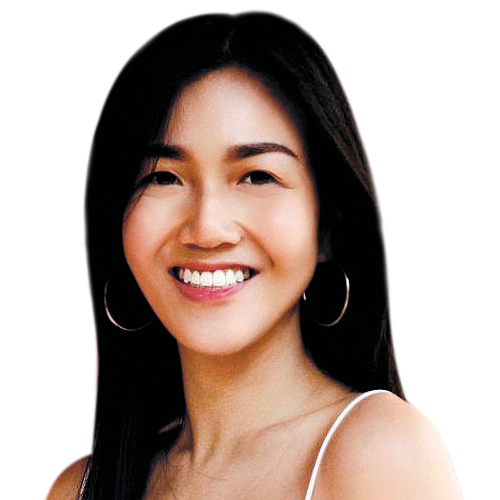
Design and Environment ’19
Ms Toh Ann Cher
Co-founder of Homebase

Arts and Social Sciences ’21
Ms Yeoh Wanqing
Co-founder of Hatch
WHEN DID YOU LEARN OF THE NOC PROGRAMME AND WHAT MADE YOU APPLY FOR IT?
Toh Ann Cher: As Real Estate students, we didn’t get a lot of information on NOC, but I learned about it while I was in Year 2 and got interested because it was a year-long programme that allowed me to work and study at the same time. I have always been interested in the China market and decided to head to Beijing in September 2016 to get an immersive experience of its work culture. While my internship at Xiaomi didn’t quite relate to my course, it wasn’t difficult to convince my parents (that it would be a valuable experience) — though I didn’t tell them about it until two months before my departure! The fact that Tsinghua University is a highly-regarded institution was a saving grace.
Dobariyapatel Hardik Kishor: I saw university as a place to try things out to know what is right for me — NOC was one of those exploratory experiences. While I did think of starting my own business, I always figured I would first get myself a corporate job to build experience and credibility. However, joining NOC and working for a small company with three co-founders, who when in doubt might simply turn to Google for answers, changed my way of thinking altogether.
Ang Yi Shuan: I first learned about NOC as a Year 1 Computer Engineering student through a roadshow. I knew that I didn’t want to go into a corporate role upon graduation and joined NOC in 2020 to learn about the tech ecosystem in Shenzhen, see how companies there are driven by R&D, and learn the ins and outs of one of China’s most powerful manufacturing and tech clusters.
Cordillia Ann Tan Mei Yu: I am a Linguistics major and both my mother and I always thought I would become another “Ms Tan” in a school. Then, in the welcome week for Year 1 students, I attended an NOC information session. Under the impression that it was about internships — and not knowing what entrepreneurship was about — I asked for an internship and was given a posting within weeks. Thus began a crazy journey where I, even as an intern, ended up representing my company for roadshows in Korea and Australia. I went on to do the NOC programme in Shanghai from 2018 to 2019, where I was placed in the world’s largest accelerator venture capital investment company, and was sent for business meetings in Southeast Asia and Taiwan. I spent another three semesters in N-House (ENterprise House, an entrepreneurship-themed residence managed by NOC) where I was a senior resident assistant. I also interned at BLOCK71 (NUS Enterprise’s tech ecosystem builder and global connector for the start-up community), so my NOC journey was very long! After graduation, I worked at blockchain accelerator Tribe, but have since left in view of starting my own business. It is the biggest decision I’ve ever made — and one that was influenced by my time with NOC.
Yeoh Wanqing: I heard about NOC during a talk, but never really prioritised it on my student chart as a Global Studies undergraduate. It was during my second year that I considered it: I was volunteering in a social enterprise that places young people into jobs, saw a lot of meaning in my work and wanted to continue doing this. In a quest to find a sustainable solution, I turned to entrepreneurship and joined NOC to find businesses with a strong social element. I went to Stockholm and the CEO of the company was an NOC Stockholm alumnus who tried to place me in situations where I would gather more knowledge and insights that were relevant to what I wanted to do.
Mohamad Shijudeen Bin Bajar Rahman: I had gone for an academic exchange in Year 3 and found living abroad really fun. So I thought I would try working abroad too, and chose New York as it was, to me, the coolest city. I only went for the NOC programme in Year 4, from 2018 to 2019. It was something that I did, in a way, for fun. I had always been interested in entrepreneurship, though it was just something at the back of my mind. Most Business students want to go into the finance industry after graduation, but the NOC experience changed my views, and I went on to start my own company.
WHAT WERE THE BIGGEST CHALLENGES YOU FACED?
Cordillia: Finding a place to stay within two weeks of landing in a new country was certainly challenging! Also, we had to juggle internship and academic requirements: attending our entrepreneurship classes, writing that idea journal, coming up with a 30-page business case, conceptualising our own mini start-up… It was a lot of stuff jam-packed into 11 months. Mapping out the modules to meet our Unrestricted Elective (UE) requirement was also a challenge. I managed to complete a Linguistics module at Fudan University.
Wanqing: As a Global Studies major, I had a very difficult time trying to match my modules, especially since the NOC programme wasn’t something which I initially planned to take part in.
Shijudeen: Apart from the culture shock, I kept feeling that I wasn’t good enough to be there. At my internship, I was surrounded by younger colleagues who were already senior associates, yet here I was as just an intern wondering what I had been doing all these years! But it made me work harder to match up to everybody, although it took some time.
WHAT WERE THE BIGGEST LESSONS LEARNT?
Shijudeen: In my previous internships, I had expected the boss to tell me everything, and would wait for instructions from the top. But in New York, my bosses would ask for my opinions and solutions during meetings. It was a shock but I eventually overcame it, and over time I was given so much responsibility that half the people didn’t know I was just an intern! Through the experience, my attitude towards work changed; I became proactive to get the most out of my year-long experience. It also changed my view of problem-solving: it taught me to take charge and just “do the right thing”, as one of the co-founders would say. As someone who is running my own business, I realise I don’t have to know all the answers — as long as I have the right people with me, we will be able to solve problems.
Ann Cher: We often think that Singapore is fast-paced but it does not compare to Beijing, so I had to ramp up during my time there. While I was at Xiaomi, the start-up culture was still very strong and when faced with a problem, my boss would tell us to just tackle it quickly. Once, he asked for my take on an issue and I prepared a full presentation deck — as I would in school. The next day as I was about to run the deck by him, he stopped me and said, “No, just go for it. The faster you try, the faster you fail, the faster we can move on.” I took this spirit back with me and I feel that it gave me an edge when I left my job and started my own business.
Yi Shuan: I didn’t think that entrepreneurship could be taught. But NOC disproved this notion with its support structure, modules, coaches and mentors. It was not an academic way of teaching but an experiential way to learn how to identify opportunities. One of the most important skills I learnt was how to conduct market validation. With the tools and framework to identify opportunities, a growth mentality and knowledge on creating and capturing value, I’ve gone on to start my own platform to help music students, having faced obstacles myself while taking up the Trinity ATCL diploma in piano. Another learning point from the NOC experience is the importance of relationships. The founders of the start-up I interned at in Shenzhen were from Cyprus, and had arrived in China not speaking a word of Mandarin. Yet they made it a point to learn the language and build relationships, to the extent of sharing what some might consider “trade secrets” with competitors. I was baffled at first, but later realised that this was how they built trust and earned social credit.

WOULD IT BE RIGHT TO SAY THAT THE NOC EXPERIENCE HAS LED MANY OF YOU TO WHAT YOU ARE DOING TODAY — AS WELL AS HOW YOU DO IT?
Hardik: While working on engineering projects, I always saw the effort hardware engineers had to put in to find fabricators who could get things done on time and correctly. We just accepted it as “how things are supposed to be”. But while I was in Toronto for the NOC internship, I saw how a platform worked to connect American suppliers to American manufacturers and decided to create the same for the Asian market. With a couple of batch mates, we pitched the idea of Factorem during NOC and before we knew it, revenue started coming in — and we realised that we were building a business!
The NOC experience also showed me the feasibility of starting a company. When in Toronto, I realised a lot of final-year students had already started their companies about two to three years prior. Their rationale was that since they were young with little financial or family commitments, they had little to lose. Then, when I attended events in Silicon Valley, I realised you don’t have to be a super-brilliant Nobel Prize winner to start your own company: you just need to be somebody with an idea, and who is prepared to give your all to make it work.
Wanqing: Previously, I had this idea that entrepreneurs are hustlers who never see the light of day. But the start-up I was working at had a very chill atmosphere with an emphasis on work-life balance — in fact, they insisted that staff knock off at 5pm! I came to appreciate entrepreneurship as a mindset: one that isn’t afraid to challenge and improve the status quo. I took it as a spirit that I could bring to any organisation, and I applied it to how things are done at my social enterprise, Hatch. Working in Stockholm also showed me a different model to doing business. Sweden drives a lot of business through trust and interpersonal relationships: there is a trust that your partners will get things done — and done well — and this trust is built through knowing each other as people, rather than just another worker. A lot of their work meetings involve just catching up on each other’s lives, changes in the family… anything but business! This resonated with me especially, for it is similar to how things get done in the social impact space.
THE SPIRIT OF ENTERPRISE
The total valuation of BLOCK71 Singapore start-ups stands at $7.05 billion, equating to almost a quarter of the total valuation generated by Singapore start-ups in 2020.
BLOCK71 Singapore has engaged more than 350,000 people over the last 10 years via community platforms.
DOES BEING PART OF THE NOC ALUMNI — WHICH INCLUDES SOME HIGHLY-SUCCESSFUL INDIVIDUALS — CREATE PRESSURE TO PERFORM OR IS IT MORE A SUPPORT NETWORK TO TAP INTO?
Ann Cher: It has been drilled into us over and over again that only one per cent will succeed, so there really is that pressure. We go in with a lot of confidence and focus on the growth process, but if we have to close, we will just have to bite the bullet and move on to something else. Even if we aren’t the next Jeffrey Tiong now, we might still get there in another time and in another industry.
Cordillia: Rather than be stressed by the success of others, we are encouraged by their performance. Furthermore, we can also tap into their expertise. The NOC community is very supportive and happy to speak to any member within the group.
Yi Shuan: NUS also offers a lot of support for NOC alumni — for example, NUS GRIP nurtures NOC alumni to be deep tech entrepreneurs. Apart from access to market databases, we also receive guidance, funding and mentoring.
Ann Cher: Indeed, when I conceived my business idea a year ago, NOC was the first place I turned to. Their team guided me along, by pointing out the grants available and linking me up to the relevant government agencies. It is comforting to have a community that I can reach out to and fall back on.
ARE THERE ANY IMPROVEMENTS OR SUGGESTIONS YOU WOULD LIKE TO MAKE TO THE PROGRAMME?
Cordillia: While juggling work and study could be challenging, the modules augment the experience and teach us what we do not learn on-the-job, thus I feel that the modules should definitely remain. However, I think it would be good if there could be greater flexibility in terms of module-mapping. Now with a Southeast Asian programme, it would also be amazing if there is a track for the students to move from a regional to a global experience.
Yi Shuan: While speaking to friends in other NOC colleges, we realised that we were having very different experiences. It would be good to promote cross-college interactivity and get to hear the experiences of students at other NOC colleges in different cities.
Wanqing: I do feel that I would have appreciated more touch points with students at other colleges. I knew that the participants at other Southeast Asian colleges would visit one another, but I wish we at NOC Stockholm could do likewise! Another aspect that I feel could be improved upon is support for those who want to start something directly after NOC, but do not know how to do it, as we would be returning to school and having to balance our coursework with other commitments. While we do have access to the NOC network and mentors, there is still uncertainty. It would be beneficial if we can speak to somebody who understands the risks we are taking, or have some form of career coaching from entrepreneurs.
Hardik: NOC showed us the first steps to becoming entrepreneurs, but as Wanqing said, one might still not know how to start upon returning home. I, for one, did not map my Final-Year Project to my NOC project. Between balancing my academic work and planning my start-up, I had people telling me to forget about school and focus on my business — but I still wanted to learn more of the academic stuff. It would be good if there are talks on this topic, not just for final-year students returning from NOC, but even for freshmen, so that they receive the guidance early.
This story first appeared in the AlumNUS (Issue 127, Oct-Dec 2021).
NUS Faculty of Arts and Social Sciences 18th Dean Takes Office
IN BRIEF | 2 min read
-
Dean of the Faculty of Arts and Social Sciences, Professor Lionel Wee, and other members of the Deanery take on their leadership roles today.
Professor Lionel Wee has assumed the position of Dean of the NUS Faculty of Arts and Social Sciences (FASS) and Co-Dean of the College of Humanities and Sciences (CHS) as of today, Friday, 1 October 2021. Prof Wee takes over the helm from Professor Robbie Goh, who is now the Provost of the Singapore University of Social Sciences.
Before becoming FASS' 18th Dean, Prof Wee was the Faculty’s Vice Dean of Research from 2014 till 30 September 2021 and is a Professor of Linguistics with the Department of English Language and Literature. He was also the Head of the Department of English Language and Literature from 2010 to 2014 and is a Provost's Chair Professor of Linguistics with the Department of English Language and Literature.
“It is an honour to be given the opportunity to helm the Faculty of Arts and Social Sciences. The Faculty has achieved much since its founding nearly a century ago, continually evolving to anticipate and address the needs and challenges of a changing society," said Professor Wee. "Together with the Deanery, colleagues, and students of the FASS, I am confident that we will continue to make breakthroughs in both education and research. While these benchmarks are important, diversity and inclusion are priorities for me, and essential pillars of every organisation. My plan is to further emphasise and ensure our staff and students feel empowered and safe in the Faculty in the coming years."
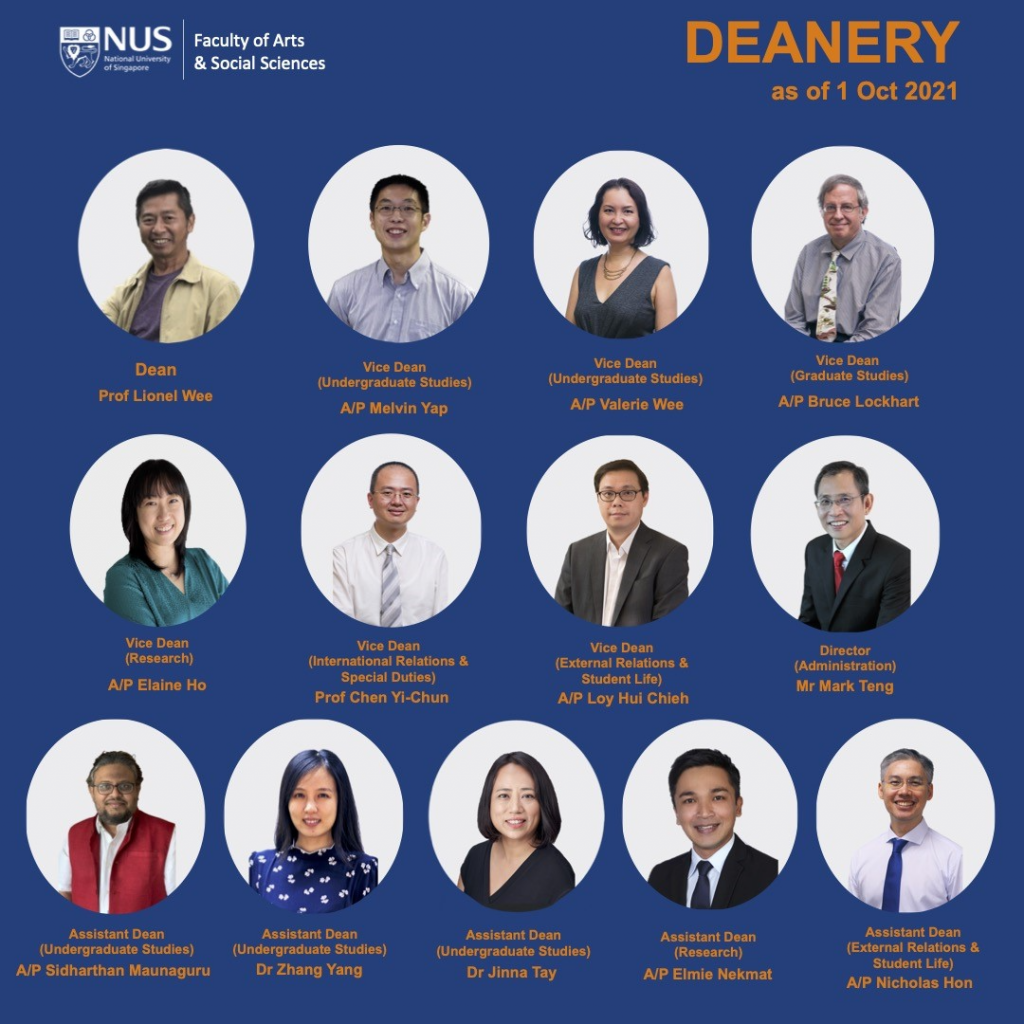
New Appointments to the Strong Leadership
Beginning their new roles with the FASS Deanery today are:
- Associate Professor Elaine Ho (Geography) as Vice Dean (Research). She was previously Assistant Dean (Research)
- Associate Professor Elmie Nekmat (Communications and New Media) as Assistant Dean (Research)
The following members of the Deanery will continue to serve in their respective positions:
- Associate Professor Melvin Yap, Vice Dean (Undergraduate Studies)
- Associate Professor Valerie Wee, Vice Dean (Undergraduate Studies)
- Associate Professor Bruce Lockhart, Vice Dean (Graduate Studies)
- Professor Chen Yi-Chun, Vice Dean (International Relations and Special Duties)
- Associate Professor Loy Hui Chieh, Vice Dean (External Relations and Student Life)
- Mr Mark Teng, Director of Administration
- Associate Professor Sidharthan Maunaguru, Assistant Dean (Undergraduate Studies)
- Dr Zhang Yang, Assistant Dean (Undergraduate Studies)
- Dr Jinna Tay, Assistant Dean (Undergraduate Studies) – recently appointed to the Deanery on 1 July 2021.
- Associate Professor Nicholas Hon, Assistant Dean (External Relations and Student Life)
Global Studies as a Second Major
IN BRIEF | 1 min read

We are pleased to announce that students are now able to pursue Global Studies as a second major.
Global Studies is a multidisciplinary field of inquiry that examines the processes and effects of globalisation across political, economic, social, and cultural domains around the world.
The Second Major in Global Studies programme will be offered from AY2021-22 Semester 2 to Cohort 2020 onwards.
For more information on major requirement, students may refer to the this link.
For more information on the list of recognised modules for the Second Major in Global Studies, students may refer to this link.
New NUS Dean of Arts and Social Sciences Appointed
IN BRIEF | 5 min read
-
Professor Lionel Wee will be appointed the new dean of the NUS Faculty of Arts and Social Sciences (FASS) and co-dean of the College of Humanities and Sciences from 1 October 2021.
-
Prof Goh, who has served as the Dean since 2017, will be taking a leave of absence from the University, but will continue to contribute in the Singapore education sector as the new Provost at the Singapore University of Social Sciences from 1 October 2021.
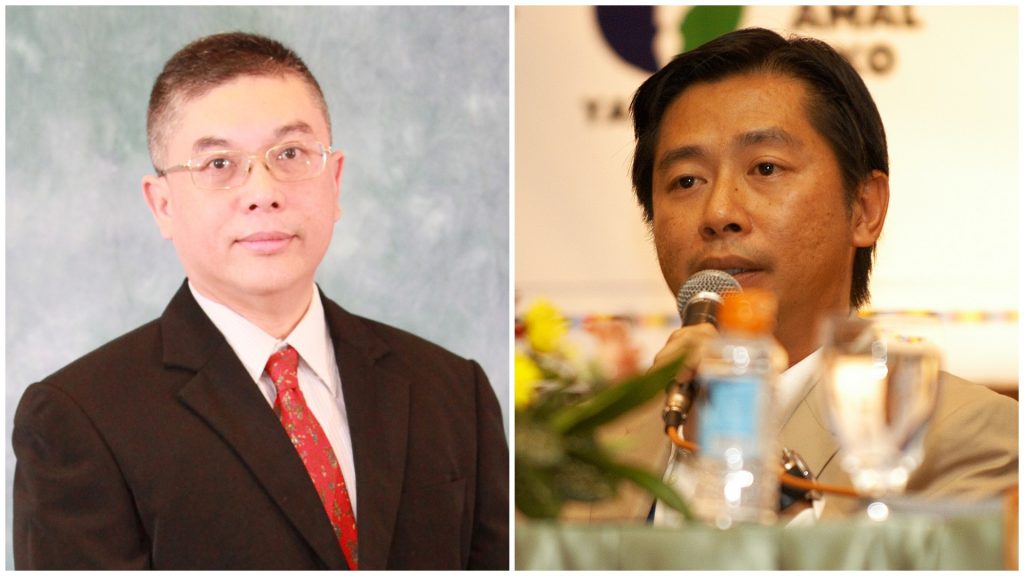
The University today announced the appointment of Professor Lionel Wee as the new Dean of its Faculty of Arts and Social Sciences (FASS) and Co-Dean of the College of Humanities and Sciences. Prof Wee will take over the helm from Prof Robbie Goh as the Faculty’s 18th Dean from 1 October 2021.
Currently FASS Vice Dean of Research and Professor of Linguistics in the Department of English Language and Literature, Prof Wee was appointed Provost’s Chair Professor in July 2017 for his outstanding scholarly achievements.
After graduating from NUS in 1988 with a Bachelor of Arts (First Class Honours) degree majoring in English Language and Sociology, Prof Wee embarked on an academic career, joining the University as a Teaching Assistant with the Department of English Language and Literature. He was awarded the NUS Overseas Graduate Scholarship where he pursued his PhD in Linguistics at the University of California, Berkeley. Prof Wee was appointed as a Lecturer upon his return to Singapore in 1995, and rose the ranks to full Professorship in 2012.
“NUS is pleased that after a rigorous global search, Prof Lionel Wee has been selected to be the next Dean. He is passionate about high quality education and research, and has an excellent understanding of FASS and the University, having served in numerous leadership roles at the department, faculty and university-levels. I am confident that he will bring the Faculty to new heights of international excellence,” said NUS President Professor Tan Eng Chye.
Besides serving as Vice Dean of Research at FASS from 2014 to present, Prof Wee was also the Head of the Department of English Language and Literature from 2010 to 2014. He had also contributed on various committees such as Chair of the FASS Faculty Promotion & Tenure Committee II, Chair of the University Mid-Term Advisory Report Committee, and Member of the University Promotion and Tenure Committee. In recognition of his dedicated service and contributions to NUS and education in Singapore, Prof Wee was awarded the National Day Awards Public Administration Medal (Bronze) in 2020 and the Long Service Medal in 2018.
“I am excited and honoured to be given this opportunity to lead my alma mater as its next Dean. Having spent more than three decades at FASS, both as a student and a faculty member, I have experienced firsthand the selfless commitment of my colleagues and impressive insights our students bring to the study of the arts, humanities and social sciences. I am confident that together, we can continue to make significant contributions to society while enhancing our Faculty’s standing as one of the leading humanities and social sciences faculties in the world,” said Prof Wee.
Besides his passion in linguistics, Prof Wee feels very strongly about animal welfare and is also very much an avid city traveller, although the pandemic has put quite a damper on travel in the past year or so. He also enjoys the cafes, a habit which he picked up during his time as a graduate student in Berkeley. Students and colleagues at FASS may have many a times seen Prof Wee deep in thought at the cafes across the NUS campus. He is very much focused in developing a particular idea or argument once he is seated down and would need to walk around before he can move on to another new idea.
Prof Wee has published widely in international and local journals, and also sits on the editorial boards of a number of academic journals and publications, including Applied Linguistics, English World-Wide, Multilingual Margins, The Journal of Asian Linguistic Anthropology, the “Cambridge Elements: World Englishes” book series, and the “Multilingualisms and Diversities in Education” book series. He is a well-respected scholar with research interests in the areas of language policy (especially in Southeast Asia), the grammar of Singapore English, metaphorical discourse, and general issues in sociolinguistics and pragmatics.
Prof Goh, who has served as the Dean since 2017, will be taking a leave of absence from the University. However, he will continue to contribute in the Singapore education sector as the new Provost at the Singapore University of Social Sciences from 1 October 2021.
Prof Goh said, “It has been a privilege and honour to serve as Dean of one of Singapore’s largest and most historied Faculties. I am grateful to my talented colleagues for all their hard work. I believe that together, we have brought the Faculty to new heights of excellence in teaching, research and service. I look forward to the work of creating new programmes and nurturing talent in my next role as Provost of the Singapore University of Social Sciences, and hope that I will also be able to forge new ties and collaborations between the two universities."
Having spent more than three decades at the University, Prof Goh has taken on numerous administrative and leadership roles outside of the Faculty. He was Deputy Director of the NUS Centre For the Arts from 1996 to 1999, and Deputy Director of the Asia Research Institute from 2008 to 2010.
“On behalf of the University, I would like to express my heartfelt appreciation to Professor Robbie Goh for his dedication and strong stewardship in leading NUS FASS. Under his visionary leadership, the Faculty has made significant contributions to the advancement of education and research in the humanities and social sciences. During his leadership, the FASS 2.0 Industry Tracks programme was started to enhance the employability of its graduates. New multidisciplinary initiatives such as the Philosophy, Politics & Economics programme were also established. The Faculty has also expanded collaborations with industry and further strengthened its high international reputation,” added Prof Tan.
This story first appeared on NUSnews on 13 August 2021. The full press release is here, and Professor Lionel Wee's biography is here.
From Careers for a Lifetime, to a Lifetime of Careers
IN BRIEF | 5 min read
-
The top skills desired by employers will include critical thinking, analysis, problem-solving and self-management skills such as active learning, resilience, stress tolerance and flexibility.
What does the future of work look like? In this evolving world, new occupations and roles which did not previously exist continue to emerge, while certain traditional skills and jobs continue to become obsolete.
The World Economic Forum’s (WEF) The Future of Jobs Report 2020 (October 2020) highlighted a few key trends.
First, technological adoption of cloud computing, Big Data and e-commerce in many businesses will accelerate the transformation of jobs, skills and entire industry value chains. 85 million jobs are expected to be displaced by a shift in division of labour from humans to machines by 2025, while 97 million new roles may emerge.
Second, online learning and training boomed during the pandemic. The shift was a watershed moment, and there is no turning back for many industries. The pandemic also brought into sharper focus the importance of lifelong learning, with more employees upskilling and reskilling to stay relevant in the volatile job market. More workers are now pursuing personal and professional development, especially in digital skills.
Last but not least, the top skills desired by employers will include critical thinking, analysis, problem-solving and self-management skills such as active learning, resilience, stress tolerance and flexibility.

What skills do employers seek?
Many of these in-demand skills highlighted in WEF’s report corroborate CFG’s Industry Insights Survey (2020). Drawing on insights from career events, industry surveys and engagements, CFG’s survey cited a similar list of soft skills that are becoming increasingly imperative at the workplace.
These are abilities learnt through life experiences that are impervious to change, and relevant across all professions and workplaces. They are attributes we take with us when we embark on job pathways in the New Normal - which are shifting from one defined career over a lifetime, to a series of dynamic and rapidly changing careers.
Our survey clusters these abilities into two main categories: Personal Qualities and Workplace Traits.
Personal qualities
Many employers are looking for individual cognitive abilities such as problem-solving, learning agility and pattern-recognition. They are also seeking graduates who are equipped with design and computational thinking, as well as proficiency in quantitative analysis.
They want graduates who are able to look at problems from different perspectives, to solve complex problems in real-world environments. For example, can a customer service issue be resolved with a combination of user interface design changes, IT infrastructure automation and manpower staffing? What are consumer consumption patterns and behaviours telling us?
Employers also seek character traits such as curiosity, resilience, empathy, proactivity, leadership and adaptability. These traits are predictors of future potential, and potentially determine career longevity and progression. For example, are you curious to learn what other teams or functions are doing beyond your job scope and discover potential synergies? Are you adaptable to changes in your project scope, and possess a “can-do” attitude in the face of obstacles?
Workplace traits
Besides personal qualities, employers are also looking for graduates who possess certain desirable workplace traits. These include good communication and presentation skills, cultural sensitivity and a global mindset. Graduates with business acumen, who are able to influence and negotiate, and are competent in managing different teams and projects, are much sought after.
These attributes mirror the realities of the modern workplace, where teams and projects are becoming more diverse, cross-functional, cross-cultural and business-driven. For example, can you work with a diverse team of colleagues towards achieving a common objective? Can you visualise your organisation’s business potential in an overseas market or a new customer segment?
The call to CHS students
In CHS, you will acquire interdisciplinary knowledge and skills by learning how to draw connections, links and insights across diverse disciplines. It is this important foundation of interdisciplinarity that will better prepare our students to become problem-solvers in an uncertain world beyond the pandemic.
Even as the pandemic has accelerated digital transformation, data is now the new asset that enables businesses to enhance efficiency and augment the ability of their teams to deliver greater value. CHS will focus on competencies like data literacy and design thinking, skills that are now in high demand by industries seeking to unlock value from Big Data.
Beyond academics, internships are one of the best ways to hone workplace experience. When you are on vacation, aim for at least two (if not more) internships, preferably one with an overseas employer. Immerse yourself in co-curricular activities, which provide hands-on opportunities to gain skills such as leadership, teamwork and project management. These experiences in your resume and portfolio will place you in a better stead with employers.

Enhancing employability, preparing for careers
CHS students will have a dedicated Career Advisor, who will guide you through the process of developing a personal career plan. You will be pre-assigned a career preparation module, Career Compass, closely following CFG’s four-year Career Readiness Roadmap which provides a formal framework for your career planning during your undergraduate journey.
You will be enrolled in Career Catalyst, a foundational freshmen module that identifies your core strengths and enhances your profile towards securing an internship. As you progress to Years Two/Three and your final year, you can also sign up for our Career Booster workshops or Career Advancement Webinar Series (CAWS).
Article contributed by the Centre for Future-ready Graduates (Ms Joan Tay, Director and Career Advisors Mr Ryan Ang and Mr Ng Buck Seng)
This story first appeared on CHS on 29 July 2021.
NUS CHS Case Competition: Driving EV Adoption in Singapore
IN BRIEF | 1 min read
- The just-released problem statement for NUS CHS' inaugural Case Competition – Encouraging electric vehicle (EV) ownership in Singapore – is an important real-world topic of especial relevance to us all, as the nation is driving toward a future of electric mobility that is essential to the Singapore Green Plan 2030.

Are you interested in translating your innovations to reality by applying interdisciplinary knowledge and skills?This is now possible with the inaugural College of Humanities and Sciences (CHS) Case Competition, launched on 26 July.
The competition is specially designed for NUS students, and enables participants to synthesise ideas and perspectives from different disciplines to solve complex, real-world challenges.
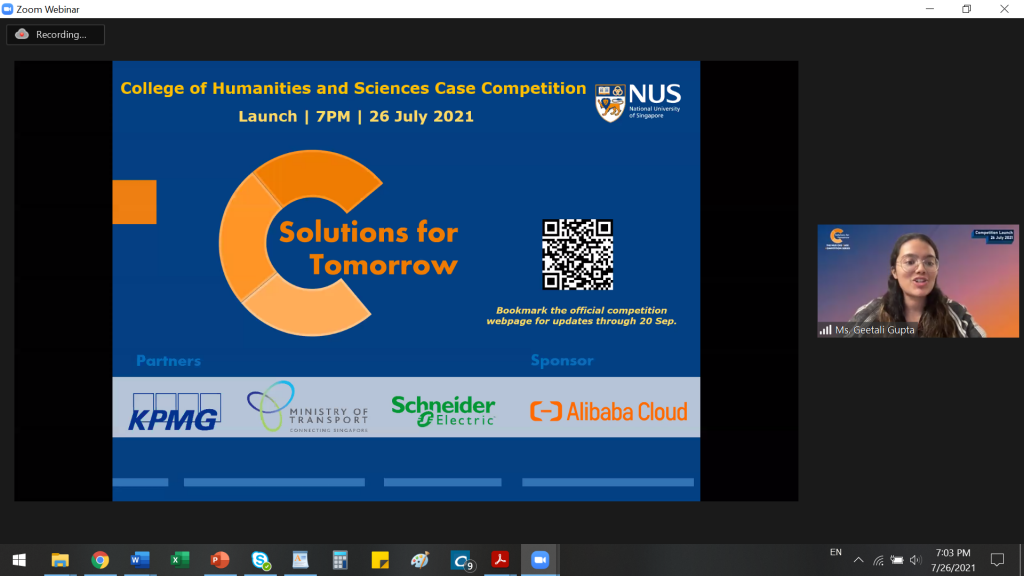
The competition themes, “Sustainability” and “Technology and Us”, are highly topical today. The problem statement - Encouraging electric vehicle (EV) ownership in Singapore - is an important real-world topic, even as Singapore ushers in a future of electric mobility as a key piece of the puzzle in the Singapore Green Plan 2030.
At the virtual launch, our competition partners - the Ministry of Transport, KPMG and Schneider Electric - discussed plans by the Singapore government to usher in the future of EV, Schneider Electric’s vision of a 100% electric mobility future with net-zero carbon emissions and upcoming trends in mobility solutions identified by the advisory arm of KPMG.
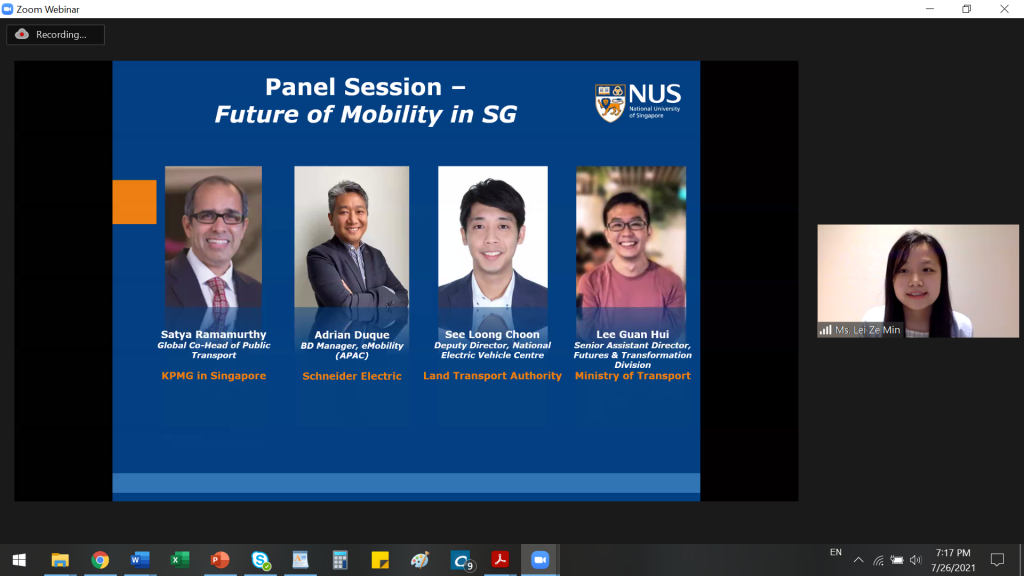
Participants will have the opportunity to attend mid-term workshops in mid-August, which provide important domain knowledge, including engineering and design, and communications skills.
The project submissions will be judged in the final round of the competition on 20 September by representatives from our competition partners. They will also be sharing their EV domain expertise with the participating teams throughout the competition.
The launch was attended by more than 100 participating teams (close to 200 individual attendees) from across NUS.
Find out more about the competition here and read the problem statement here.
Strong Interest in Interdisciplinary Learning With High Acceptance Rates
IN BRIEF | 5 min read
-
NUS President Professor Tan Eng Chye discusses the University’s recent interdisciplinary initiatives – the setting up of the College of Humanities and Sciences (CHS) and the new Common Curriculum for the Faculty of Engineering and the School of Design and Environment – and the importance of lifelong learning in ensuring that students are adaptable and future-ready.
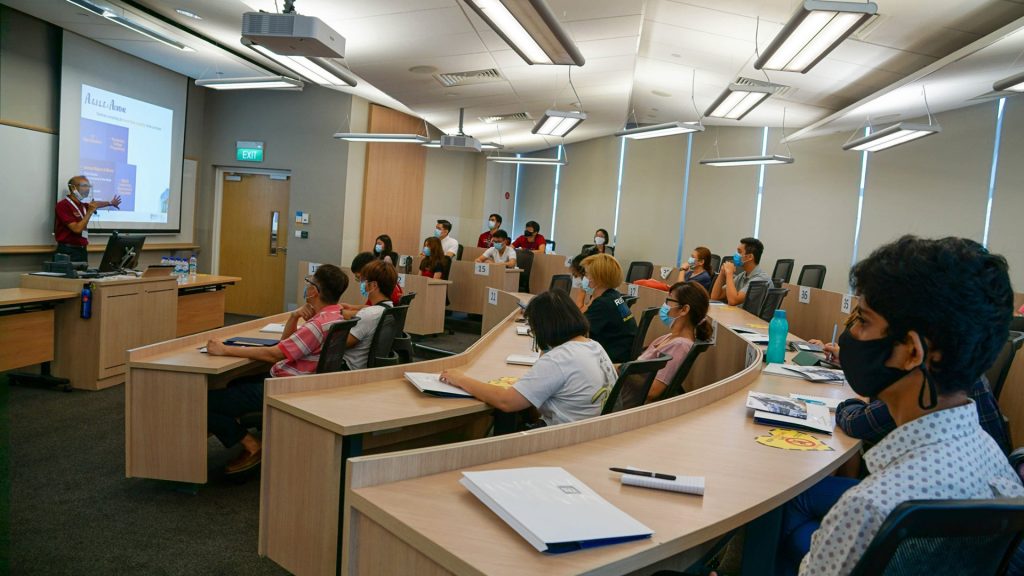
In today’s volatile, uncertain, complex and ambiguous (VUCA) world, staying stagnant is never an option. Now, more than ever, universities have to prepare students to thrive in a fast-changing and unpredictable post-COVID reality through an interdisciplinary education.
Just ask the incoming batch of freshmen, who have given a thumbs-up to the University’s recent interdisciplinary initiatives – specifically, the setting up of the College of Humanities and Sciences (CHS), and the new Common Curriculum for the Faculty of Engineering and the School of Design and Environment.
During the admissions exercise this year, 71 per cent of those who had applied to these programmes as the first choice accepted the offer. Among the incoming batch of freshmen, over 4,000 will be exposed to an interdisciplinary education. By August 2022, NUS hopes to push this number to more than 6,000.
“We are quite heartened that the applicants have responded very well,” said NUS President Professor Tan Eng Chye, as he spoke on the new changes in NUS’ curriculum. “They are receptive to the flexibility that they will have. No more are you confined to one discipline.”
Prof Tan noted that the world faces many wicked problems that cannot be solved with only one discipline.
He cited COVID-19 as a wicked problem, requiring more than just medical sciences to solve. “Even with the right medical knowledge, many countries had difficulties handling COVID-19 and its spread,” he noted.
The pandemic, in fact, prompted NUS to ramp up efforts in remodelling its educational philosophy and pedagogies to prepare its graduates for this dynamic reality.
At the centre of these reforms is the push for lifelong learning, as well as the shift towards interdisciplinary education to ensure students are adaptable and future-ready.
A lifetime of learning
While universities used to prepare their graduates for a single job, this approach is fast becoming obsolete. Today, graduates will change jobs at least 10 times over the course of their lifetime.
In line with this trend, NUS has been future-proofing its education to prepare students for lifelong learning.
“A student’s enrolment is valid for 20 years from the point they enter the university,” Prof Tan explained. “We want to remove the conception that university is only for four years. You can always come back to (NUS) to learn new skills and knowledge.”
For instance, the NUS Lifelong Learners (L3) programme upskills alumni through a wide array of skill-based, industry-relevant courses, carefully tailored to focus on emerging skills identified under SkillsFuture such as data analytics or digital literacy.
The process of returning to NUS for further studies is also made seamless. If a student does not complete a second major or degree in their initial four years, they are welcome to return to the university to read the necessary remaining modules even after graduation.
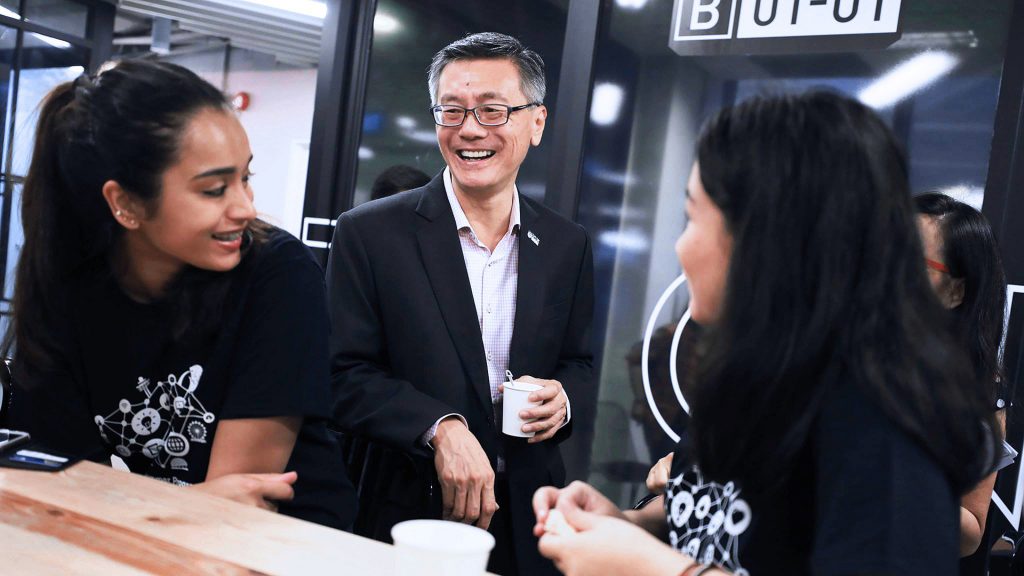
Towards interdisciplinary learning
Recognising the benefits of interdisciplinary learning, NUS is rolling this out to more students.
This started with the launch of CHS, which brings together the Faculty of Arts and Social Sciences and the Faculty of Science.
In the upcoming semester, CHS will admit 2,200 students and they will take a new Common Curriculum within their first three semesters – consisting of integrated modules with a problem-based pedagogy.
Similarly, a Common Curriculum has been introduced for the Faculty of Engineering and the School of Design and Environment to encourage knowledge transfer between the two complementary disciplines.
For instance, NUS’ very own net-zero energy building at SDE4 is a product of melding both architecture and engineering – the first of its kind in Singapore.
“The building’s beautiful architectural design alone doesn’t contribute to it being net-zero energy. What you have is a lot of deep engineering work embedded into it. It shows that architects have to work very closely with engineers in order to achieve this,” explained Prof Tan.
With interdisciplinary learning, the proportion of Unrestricted Elective modules a student can take has also been increased to up to 30 per cent, encouraging students to have two or more specialisations.
In the four faculties that now have an interdisciplinary common curriculum, this works out to more than 700 possible double major pairings, 1,700 major-minor pairings, and 100,000 major with double minor combinations.
Expanding choices for students
Ultimately, these educational innovations create greater flexibility for students to curate their own curriculum.
They will no longer have to make an immediate commitment to a single discipline. Instead, they are given time to decide on their academic calling through the common curriculum.
These efforts are central to NUS’ flagship role as a creator, integrator and propagator of knowledge.
Looking ahead, the structural barriers between faculties will further dissolve, allowing students to build even broader connections between disciplines.
“Right now, we have 70 majors and 80 minors, but we may actually have more as we go along. We start with a minor. If there’s enough interest, we push it to a second or full major. The possibilities are endless especially as we move online,” said Prof Tan.
This story first appeared on NUSnews on 26 July 2021.
Creating New Internship Opportunities: Engaging Employers to See Value in Humanities and Social Sciences
IN BRIEF | 4 min read
-
Mr Jonathan Sim, instructor from the Department of Philosophy, describes how he engaged with local employers to open internship opportunities to humanities and social sciences students who would not previously have been considered.

Humanities and social science majors are frequently misunderstood, in Singapore as in many other parts of the world. The value of their education is regularly questioned, and many employers are unaware of the value such majors can bring to the table. They prefer to hire graduates with more explicitly “practical” degrees for jobs that humanities and social sciences students could excel in.
As a result, humanities and social sciences students are not typically considered for many organisations and roles, despite offering relevant and useful skills.
So when developing an internship module, I began reaching out to organisations to create internship opportunities in such roles, to boost receptivity to hiring students from these disciplines. This enabled potential employers to better understand how students in subjects they might have previously overlooked can fill gaps in their talent pool.
Compounding the issue is that many humanities and social sciences students are unaware of the diversity of careers available to them and tend to limit themselves to roles stereotypical of their majors. There is a good reason for this. When these students apply for non-stereotypical roles, they are often turned down due to having an “impractical” major.
I regularly hear employers and people in the corporate sector lamenting the lack of creativity and critical-thinking and communication skills in their industries. These key capabilities are needed to challenge assumptions, innovate and improve processes within organisations. Employers’ lack of awareness of the value of humanities and social sciences is preventing them considering this potential talent pool.
Starting an internship module
I teach a module on data analysis and philosophical reasoning to hundreds of students each semester. With so many students under my charge, I was inspired by the idea that education is more than just about imparting knowledge. Rather, it is about facilitating growth in one’s students by providing them with opportunities for challenge and development.
As a result, I decided it would be worthwhile to experiment with an internship module where I approach employers, explain the value my students can bring to their organisation and ask them to offer temporary roles not typically filled by humanities and social sciences majors. A model designed to be mutually beneficial to both employers and students.
Here are my key lessons in how to do this:
Start by approaching contacts working in human resources (HR) and ask them to link you up with senior management or with department heads of your target companies. I initially spoke to friends in HR and some of them linked me up with HR professionals from other organisations.
Provide reassurance that you will be guiding and mentoring the students throughout the programme. My credentials as a university educator meant employers were generally open to exploring this strategic partnership.
Prepare and present a pitch clearly describing what value and skills your students can bring to the companies where you wish to secure internships. I explained how my students were excellent in data analytics, coding and problem-solving, and their training in humanities and social sciences meant they could bring unique perspectives thanks to creativity and critical thinking. Having worked with the students for one semester already, I could also vouch for their character, including attributes such as work attitude, independence and willingness to learn.
Discuss the job scope and be honest and realistic about what your students can and cannot do. I helped advise the hiring managers on my students’ capabilities, based on what I had taught them, and sometimes this meant suggesting new items in the job scope that the organisation may not have considered.
Invite students to apply for the roles available by submitting their CVs, then interview shortlisted candidates. I found interviews useful to get a better understanding of what students wanted to do and what they hoped to achieve during the internship. The application process also provided an opportunity to work with students to improve their CVs and interview skills before they spoke to employers.
Try to match students with internship roles that will best suit their personality, skills and career aspirations.
During the internships, check in on students regularly and ask them to share any challenges, so you can help them troubleshoot any issues. My role was more like an adviser pointing them to resources or giving life advice on how to handle novel social or professional situations.
Ask the students to write reflections centred on how their training in humanities and social sciences can be applied to the work they do as an intern. This helped me gauge the extent of their learning but also nudged students towards deeper reflection on their discipline to see its value and relevance in the work they did. It was very eye-opening to see concrete examples of how students found connections and applications between their studies and their work.
Benefits to organisations and students
These collaborations have proven mutually beneficial. They allow participating organisations to develop strategic partnerships with the university, helping employer branding and making it easier for them to attract talent.
At the same time, the student interns become living proof to employers that their major makes them as good as, if not better than, some students from more “practical” disciplines. The internships help inform humanities and social sciences students that they can take on roles they never thought were open to them.
We have completed one round of internships with organisations such as Henkel, a German multinational chemical and consumer goods company, and Azendian, a local AI data analytics start-up.
Students were pleased with the chance to take up roles they would not have ordinarily pursued, or been given a chance to try, in areas such as supply chain and logistics management, database management and data analytics for marketing. The internships provided profound insights on how they can apply the skills from their majors in ways that allow them to craft a niche in such roles.
The first round of placements seems to have persuaded employers to be more receptive when it comes to hiring humanities and social sciences students, as they have asked for more interns in subsequent iterations.
This is just the beginning, and there is a lot more that we can achieve in our capacity as university faculty by engaging with local organisations and employers. We can work to create more internship opportunities and help employers better understand the capabilities of our students across multiple disciplines here in Singapore and further afield.
This story first appeared on Times Higher Education on 21 June 2021.
Commencement 2021: Special Message of Congratulations to the Classes of 2020 and 2021!
IN BRIEF | 3 min watch
-
FASS Faculty and students congratulate the Classes of 2020 and 2021 and wish them all the best as they go out to change the world for the better!
“We believe in you. I believe in you. Go out there, do us proud. Make the world a better place.” — Associate Professor Loy Hui Chieh, FASS Vice Dean of External Relations and Student Life FASS, joint committee member of the NUS Philosophy, Politics, and Economics (PPE) programme, and also Faculty member of staff at the NUS Department of Philosophy.
Faculty and students talk about what life has been for them this past year, what they miss about campus life, and extend words of advice and congratulations to the graduating Classes of 2020 and 2021.
This video features Assoc Prof Loy and Dr Lohsnah Jeevanandam, Senior Lecturer, NUS Department of Psychology, as well as students from the graduating Classes of 2020 and 2021: Alvarez Brielle Clavel ('20); Somesh s/o Sailesh ('20); Douglas Ong ('20), Christina Chen (Doctoral Class of '20); Ng Qian Qian ('21); and, Lai Wei Na ('21).
Meet the Neighbours: The Seven Animals You’ll Spot in NUS
IN BRIEF | 5 min read
-
NUS is not only a second home for staff and students, but also a place for a wide range of biodiversity to call home. Mr Athanasius Koh, a management trainee with the NUS Faculty of Arts and Social Sciences (FASS) and FASS Political Science alumnus ('21) tells us about the interesting animals he has spotted around campus.
Beyond the lecture theatres, classrooms and student hangout spots, it is hard to miss the lush greenery that surrounds NUS. This has made the campus environs not only a second home for staff and students, but also a place for a wide range of biodiversity to call home.
These habitats are here to stay too. Emphasising NUS’ commitment to preserving its rich biodiversity, fighting climate change and being an environmentally responsible campus, the “Planting 10,000 Trees” initiative launched by NUS President Professor Tan Eng Chye in 2018 saw 500 mature trees planted throughout the campus, as well as 9,500 saplings nurtured in the NUS nursery. In addition, a strict policy to protect existing trees was also implemented.
Mr Athanasius Koh, a management trainee with the NUS Faculty of Arts and Social Sciences (FASS) Corporate Communications team for the past six months, and avid nature photographer, takes regular photo walks exploring these habitats. Mr Koh, who is also from the FASS Class of 2021, shares about the interesting animals he has spotted along the way.
Collared Kingfisher (Todiramphus chloris)
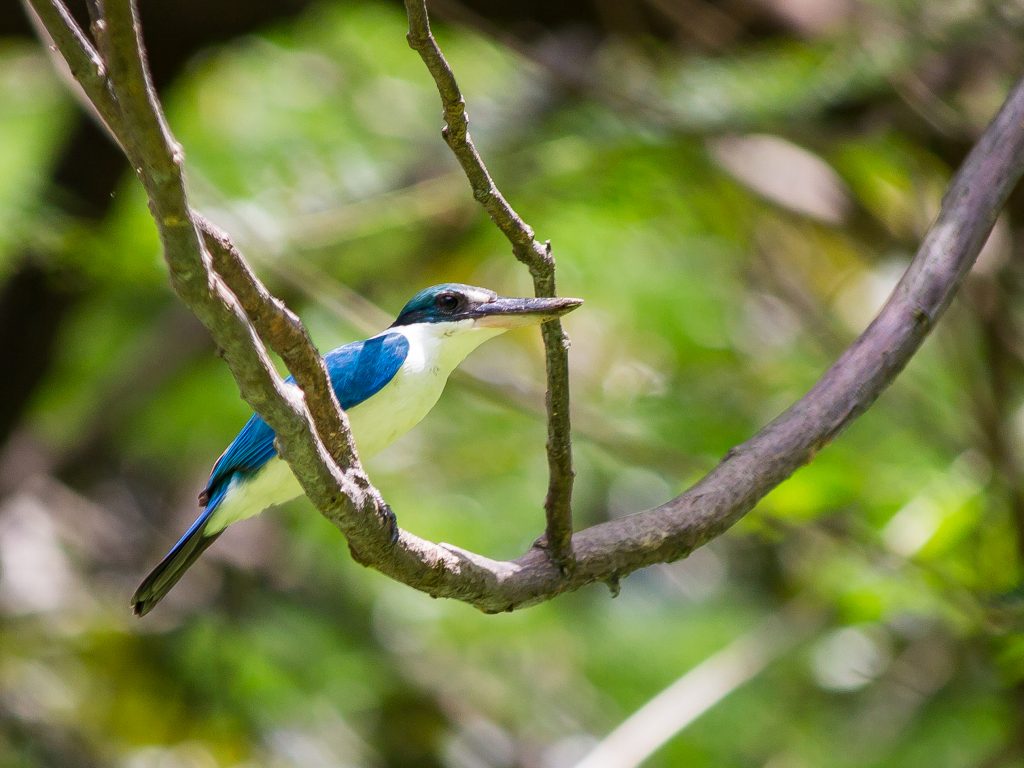 A collared kingfisher perched on a tree at AS8. (Photo: Mr Athanasius Koh)
A collared kingfisher perched on a tree at AS8. (Photo: Mr Athanasius Koh)
Dressed in beautiful blue feathers and a broad white “collar” around its neck, the collared kingfisher is a vocal bird spotted about campus with its series of harsh “kee-kee” notes, described by some as a maniacal laugh.
The collared kingfisher has also been quite the icon in Singapore’s history, gracing not only stamps but even the now decommissioned $10 note as part of The Bird Series Currency Notes from 1976 to 1984.
Look out for the collared kingfisher’s outstanding blue plumage as it rests atop trees and lamp posts. This sharply dressed celebrity is an easy spot around FASS and NUS Faculty of Engineering.
Red Junglefowl (Gallus gallus)
 Male red junglefowls proudly flaunt their dark green tail feathers and black primary feathers. (Photo: Mr Athanasius Koh)
Male red junglefowls proudly flaunt their dark green tail feathers and black primary feathers. (Photo: Mr Athanasius Koh)
Even if you have never personally caught sight of the resident FASS red junglefowl, you are more than likely to have heard its signature “cock-a-doodle-doo” around the faculty. Often confused for the domestic chicken, the red junglefowl is in fact its wild ancestor.
According to a study led by NUS ornithologist Associate Professor Frank Rheindt, the red junglefowl can be quite easily distinguished from the domestic chicken. Male red junglefowls proudly flaunt their dark green tail feathers and black primary feathers while females have distinguishing grey legs and sport black primary feathers.
While it remains a mystery why it crosses the road, the red junglefowl and its loud presence has certainly captured the attention of students and staff alike.
Plantain Squirrel (Callosciurus notatus)
 A plantain squirrel resting on a tree behind AS4. (Photo: Mr Athanasius Koh)
A plantain squirrel resting on a tree behind AS4. (Photo: Mr Athanasius Koh)
Scurrying and leaping from tree to tree, the plantain squirrel is an adorable sight if you are lucky to observe one at rest or enjoying its meal. This active animal is one of the most common mammals in Singapore and can be identified by distinctive black and white stripes on the sides of its body and its long bushy tail.
These physical features might have you thinking what a beautiful squirrel it is, and you are not alone! In fact, Callosciurus, the plantain squirrel’s taxonomic group, translates to “beautiful squirrel”.
Blink and you just might miss this nimble creature, but the plantain squirrel can be commonly found on the trees around NUS such as at the NUS Faculty of Science. Listen out for the rustling of leaves and you just might come face-to-face with this lovable rodent.
Rose-Ringed Parakeet (Psittacula krameri)
 A rose-ringed parakeet perches on a branch after breakfast along the AS6-AS8 walkway. (Photo: Mr Athanasius Koh)
A rose-ringed parakeet perches on a branch after breakfast along the AS6-AS8 walkway. (Photo: Mr Athanasius Koh)
Often moving in flocks and squawking in unison, the rose-ringed parakeet is a loud presence in NUS. Sporting a bright green plumage, orange beak and blue-tipped tail, males also have an added pink collar around their neck in their third year.
The rose-ringed parakeet was introduced to our green spaces as escaped pets. Native to the Indian subcontinent and northern Southeast Asia, it is a resilient bird that has thrived even in locations as far as Europe!
A bird that you might hear before you see, the rose-ringed parakeet has been spotted on sunny mornings at FASS’ Lovers’ Park and along the walkway between Blocks AS6 and AS8 grabbing its breakfast.
Yellow-vented Bulbul (Pycnonotus goiavier)
 The Yellow-vented Bulbul is easily distinguishable from its black eye-mask, olive-brown back and yellow undertail (Photo: Mr Athanasius Koh)
The Yellow-vented Bulbul is easily distinguishable from its black eye-mask, olive-brown back and yellow undertail (Photo: Mr Athanasius Koh)
One of the most common birds in Singapore’s many green spaces besides the mynah, the yellow-vented bulbul is an easy spot with its black eye-mask, olive-brown back and wings and most strikingly, yellow undertail.
An unfussy fellow, the yellow-vented bulbul has been observed to feed on a variety of small fruits and insects. In addition, it can sometimes be seen carrying strips of man-made waste like plastic bags and tissue paper to be used as nesting material. You might have heard its distinct chirps before, without knowing that it was the yellow-vented bulbul, but now you can keep an eye out for them too! Spot them in shrubs and trees around campus, such as the patch of greenery right outside NUS Press at Block AS3.
Changeable Lizard (Calotes versicolor)
 Adult male changeable lizards develop an orange-coloured head and black patches over their cheeks during the mating season (Photo: Mr Athanasius Koh)
Adult male changeable lizards develop an orange-coloured head and black patches over their cheeks during the mating season (Photo: Mr Athanasius Koh)
Often mistaken for the chameleon, the changeable lizard definitely is not one at all, but that does not stop it from changing its colours when it needs to! Usually brownish to greenish yellow with faint stripes along its body, adult males develop an orange-coloured head and black patches over their cheeks during the mating season.
As common as this rapid reptile is, you might be surprised to know that it is not native to Singapore. It is believed that it was accidentally introduced in the 1980s and has since populated in numbers, aggressively displacing the native green crested lizard (Bronchocela cristatella).
While the changeable lizard is somewhat adept at camouflaging, its timid nature means that you are more likely to find it scurrying away the moment there is a slightest disturbance, rustling up the grass. They can be seen all around campus such as at the FASS Fragrant Plant Garden or outside The Deck.
Oriental Pied Hornbill (Anthracoceros albirostris)
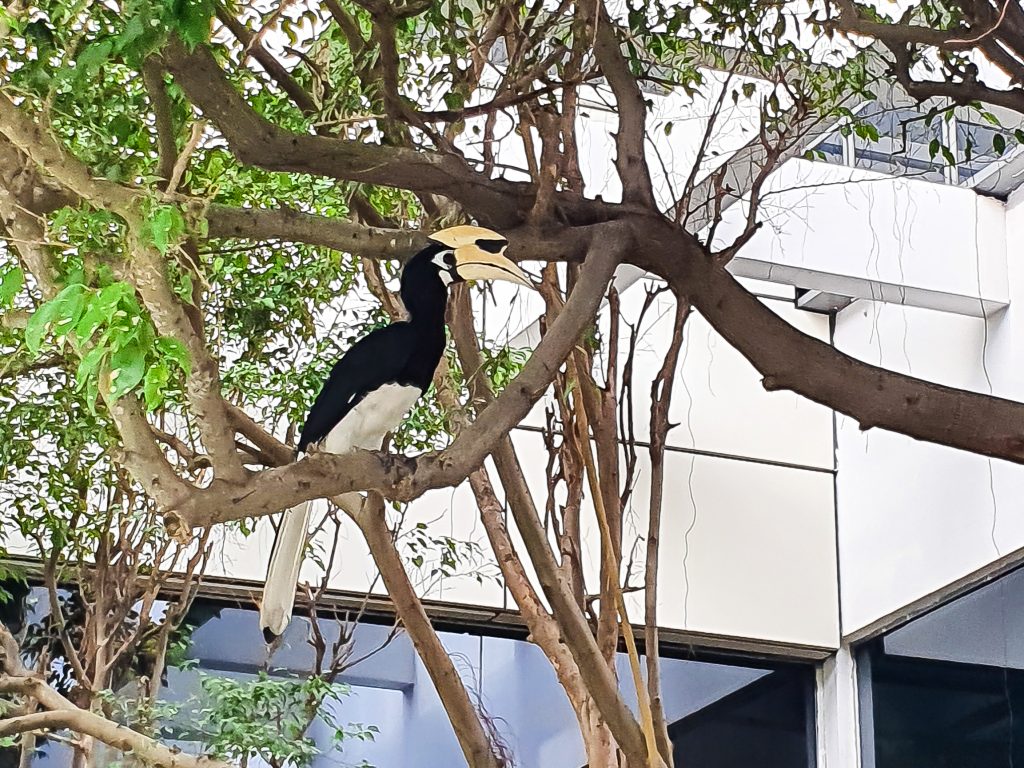 An oriental pied hornbill perches on a tree outside of AS7, Shaw Foundation Building. (Photo: Mr Athanasius Koh)
An oriental pied hornbill perches on a tree outside of AS7, Shaw Foundation Building. (Photo: Mr Athanasius Koh)
The oriental pied hornbill has certainly made an impactful comeback to Singapore’s shores. Once thought to be locally extinct, the large bird can be identified by its casque atop its beak as well as its black and white plumage.
Along with other “celebrity wildlife” like the otters in Singapore, the oriental pied hornbills’ return to the mainland can be largely attributed to conservation efforts by the National Parks Board, Wildlife Reserves Singapore and the local research community. These efforts include providing sufficient mature trees for hornbills that favour nesting in tree holes.
Spotted across a number of locations in Singapore, NUS is no exception. It has been spotted in University Town and around FASS Block AS1 as well as the trees outside AS7, Shaw Foundation Building.
Now that you have met some of the interesting wildlife that have called NUS their home, be sure to keep an eye out for our neighbours in nature between classes! Do appreciate them from a safe distance and refrain from feeding them.
This story first appeared on NUSnews on 17 June 2021.
NUS CHS Case Competition: Solutions for Tomorrow
IN BRIEF | 1 min read
- The NUS College of Humanities and Sciences has launched the Case Competition Series. Register your interest now!
 The NUS College of Humanities and Sciences has launched the Case Competition Series, which seeks to encourage undergraduate and post graduate students to apply their curriculum learning to tackle complex real-world challenges that require interdisciplinary approaches to their solution. The students, who are expected to work in teams comprising members from across different disciplines, will be presented with a complex problem (to be shared at the start of the competition in late July), and given four weeks to build their cases in consultation with participating industry and Faculty advisers before their presentation for the first round of judging. Scan the QR code below or just click here to register your interest as team leader for this competition now. More details will be released to participants next month.
The NUS College of Humanities and Sciences has launched the Case Competition Series, which seeks to encourage undergraduate and post graduate students to apply their curriculum learning to tackle complex real-world challenges that require interdisciplinary approaches to their solution. The students, who are expected to work in teams comprising members from across different disciplines, will be presented with a complex problem (to be shared at the start of the competition in late July), and given four weeks to build their cases in consultation with participating industry and Faculty advisers before their presentation for the first round of judging. Scan the QR code below or just click here to register your interest as team leader for this competition now. More details will be released to participants next month.
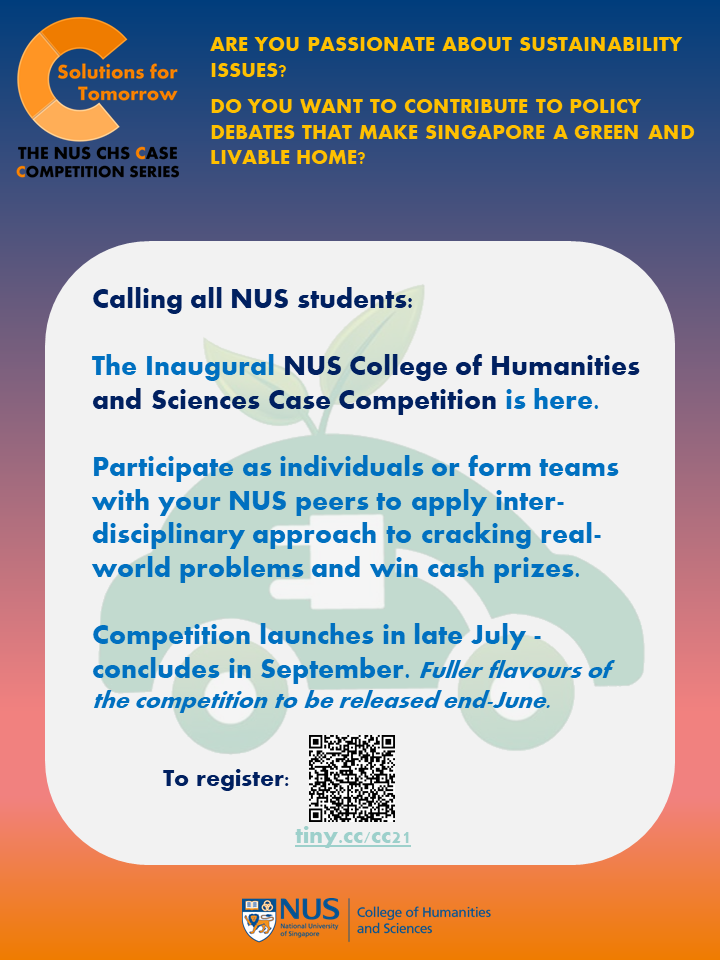
Honouring five outstanding alumni from Arts and Social Sciences
IN BRIEF | 3 min read
- Five exceptional NUS Faculty of Arts and Social Sciences (FASS) alumni from diverse backgrounds were lauded at the annual FASS Distinguished Arts and Social Sciences Alumni Awards 2020 in a simple presentation ceremony on 30 April at Swissotel The Stamford.
 (From left to right): FASS alumni Mr Yatiman Yusof, Mr Niam Chiang Meng, Ms Lim Sau Hoong, Mr Ravi Menon and Dr Liang Wern Fook have made singular contributions to the areas of the arts, education, media, finance, policy and community development.
(From left to right): FASS alumni Mr Yatiman Yusof, Mr Niam Chiang Meng, Ms Lim Sau Hoong, Mr Ravi Menon and Dr Liang Wern Fook have made singular contributions to the areas of the arts, education, media, finance, policy and community development.
Five exceptional NUS Faculty of Arts and Social Sciences (FASS) alumni from diverse backgrounds were lauded at the annual FASS Distinguished Arts and Social Sciences Alumni Awards 2020 in a simple presentation ceremony on 30 April at Swissotel The Stamford.
All have left their distinct mark in the wide-ranging fields that they serve. They are namely:
- Mr Yatiman Yusof (Geography and Malay Studies, ’72), Non-Resident High Commissioner of Singapore to Kenya
- Mr Niam Chiang Meng (Economics, ’83), Chairman of the Maritime and Port Authority of Singapore (MPA)
- Ms Lim Sau Hoong (Chinese Studies, ’83), Founder, Former CEO and Executive Creative Director of advertising agency 10AM Communications
- Mr Ravi Menon (Economics, ’87), Managing Director of the Monetary Authority of Singapore (MAS)
- Dr Liang Wern Fook (Chinese Studies, ’89 and Master of Arts, ’92), Writer, musician and educator
Congratulating the award recipients, FASS Dean Professor Robbie Goh said, “Ms Lim Sau Hoong, Dr Liang Wern Fook, Mr Ravi Menon, Mr Niam Chiang Meng and Mr Yatiman Yusof, have made singular contributions to the arts, education, media, finance, policy and community development. Not only do their wide-ranging achievements bring pride to the FASS family, but I believe that it also attests to the disciplinary range, intellectual curiosity and critical thinking that are the hallmarks of the FASS educational experience.”
This disciplinary diversity, Prof Goh elaborated, would soon be enhanced by FASS’ partnership with the NUS Faculty of Science in the NUS College of Humanities and Sciences (CHS) where students would be able to choose any major that is offered by both faculties. He added that this would be a major boost to FASS students’ educational experience as “the CHS common curriculum will prepare students for a disruptive world – by giving them a compulsory grounding in essential skills such as writing and communication, data literacy, digital literacy, design thinking and AI.”
Our alumni and their contributions
 Present at the ceremony were (clockwise from top left): FASS Dean Prof Robbie Goh; Mr Menon; Dr Liang; Mr Bernard Toh, Director of NUS Alumni Relations; Mr Niam; Ms Lim; Mr Yatiman; and NUS President Prof Tan Eng Chye.
Present at the ceremony were (clockwise from top left): FASS Dean Prof Robbie Goh; Mr Menon; Dr Liang; Mr Bernard Toh, Director of NUS Alumni Relations; Mr Niam; Ms Lim; Mr Yatiman; and NUS President Prof Tan Eng Chye.
A teacher and a journalist early on in his career, Mr Yatiman served key government appointments including as a Member of Parliament and Senior Parliamentary Secretary of the Ministry of Foreign Affairs and the then-Ministry of Information and the Arts, before his retirement in 2006. In addition to being Singapore’s non-resident envoy to Kenya, Mr Yatiman is a Board Member of the Singapore Press Holdings Foundation and the Chairman of the Malay Language Council of Advisors.
Contributing extensively to the public sector too was Mr Niam who served in the Ministries of Finance, Trade and Industry, Health, Law, and Information, Communications and the Arts – including Permanent Secretary appointments in several of these Ministries. He also served at the National Population and Talent Division, and the National Climate Change Secretariat. Aside from his current MPA chairmanship, Mr Niam is also the Chairman of Gardens by the Bay Pte Ltd and MediaCorp Pte Ltd.
A heavyweight in the media, marketing, and advertising industry, Ms Lim’s creative leadership of 10AM Communications has garnered over 300 prestigious global awards including The One Show, the Clio Awards, and the Communication Arts. Identified for her unique creative talent, Ms Lim was Visual Advisor to the Planning Committee for the 2008 Beijing Olympics’ Opening Ceremony and headed the Shanghai World Expo 2010 Singapore Pavilion Advisory Panel. In 2007, Ms Lim was awarded the President’s Design Award and was named Designer of The Year for her extensive contributions to media, marketing and culture in Singapore.
Prior to his appointment at MAS, Mr Menon served as Permanent Secretary at the Ministry of Trade and Industry, and Deputy Secretary at the Ministry of Finance. A recipient of the Singapore Government’s Meritorious Service Medal and Public Administration (Gold) Medal, he has served on boards in the public, private, and people sectors. He is currently Chairman of the Institute of Banking and Finance, and serves on the Board of Trustees of the Singapore Indian Development Association.
A singer-songwriter, poet and academic in Chinese literature and language, Dr Liang is a respected cultural figure and pioneer of Xinyao – a movement of locally composed Mandarin pop songs from the 1980s. To date, Dr Liang is the only artist who has received the National Arts Council’s Young Artist Award (Literature) and the prestigious Cultural Medallion (Music) across different art genres. He was also honoured recently with the Singapore Chinese Cultural Contribution Award for his outstanding contribution to the promotion, enrichment and development of Chinese Singaporean culture. His canon of work includes over 15 publications of literature, more than 200 songs, and two Mandarin musicals – a number of his most important works were written and composed during his university days.
On receiving the awards
Also present at the event was NUS President Professor Tan Eng Chye who presented the awards to the five alumni. Invited guests were also treated to videos of the award recipients who shared about their university days in FASS and their career highlights.
Recalling the moment he received news of the award, Mr Yatiman humbly shared, “To be frank, I’m quite surprised when I was told about it. And I thought there are hundreds, if not thousands of people who are more suitable to receive this award. I’m just a small worker in the community, not doing much in my lifetime. I think there are many others. So, for those who’ve been working hard for the good of the community, I take this award as recognition of their effort too.”
Mr Niam recalled some of his best memories were during university days where he learnt a lot about networking and life skills. It was also where he found his life partner. He said, “It is a privilege to be given this award. I would like to thank NUS and the organising committee for bestowing this honour on me and the other recipients…it means a great deal.”
 Taking the form of a rising star, the alumni award represents the inspiration these individuals bring to society through their brilliant contributions towards the Faculty, University and Singapore.
Taking the form of a rising star, the alumni award represents the inspiration these individuals bring to society through their brilliant contributions towards the Faculty, University and Singapore.
Established in 2015, the Awards recognise individuals for their distinguished scholarship and outstanding service to the Faculty, the University and Singapore. These outstanding recipients have made significant impact in various fields locally and internationally, which has contributed to the betterment and promotion of the arts and social sciences.
Previous recipients of the Awards include luminaries such as former President Mr S R Nathan, Emeritus Senior Minister and former Prime Minister Mr Goh Chok Tong, former United Nations Under-Secretary General Dr Noeleen Heyzer; Permanent Member of the Presidential Council for Minority Rights Mr Abdullah Tarmugi; and Executive Chairman of Banyan Tree Holdings Limited Mr Ho Kwon Ping.
Click here for more details on this year’s award recipients.
This story first appeared on NUSnews on 6 May 2021.
Singapore through the years: A digital cartographic record
IN BRIEF | 3 min read
- Professor Taylor and Associate Professor Feng Chen-Chieh, along with their department colleagues at NUS Geography, created Historical Maps of Singapore, an online resource hosted by NUS Libraries that provides a series of maps of different scales dating from 1846 to 2010.
 A plan of Singapore town and the adjoining districts produced by John Turnbull Thomson, a Government Surveyor, and published by J.M. Richardson in London in 1846.
A plan of Singapore town and the adjoining districts produced by John Turnbull Thomson, a Government Surveyor, and published by J.M. Richardson in London in 1846.
From quiet colonial backwater to thriving city-state, Singapore has undergone rapid transformation over the last 200 years or so.
If you are interested in finding out how the Central Business District has developed since the 1828 Jackson Plan or have a general interest in the country’s ever-changing landscape, do check out Historical Maps of Singapore, an online resource created by NUS Geography and hosted by NUS Libraries.
Historical Maps of Singapore provides a series of maps of different scales dating from 1846 to 2010. The maps have been carefully converted to a digital format and georeferenced to facilitate cross-comparison.
The work was funded through a Strategic Initiative award from NUS, and both the Singapore Land Authority and Ministry of Defence kindly provided permission for the maps to be made available online.
NUS Geography faculty members who worked on the project included the Head of Department Professor David Taylor, as well as Associate Professor Feng Chen-Chieh.
“Maps are extremely important resources, and not only for geographers. Maps are time-stamped windows not only on the ever-changing landscapes they represent in reduced form but also on the minds and values of the map-makers and those who they thought might be interested in the results of their endeavours,” said Prof Taylor.
“For example, the 1873 map shows the locations of 29 police stations, but only one hospital ~ was crime really a much greater concern than health in late 19th century Singapore? Making the maps available in digital form opens them to a wider audience and to new forms of analysis.”
 (From left to right) The changing landscape of the Telok Ayer Basin from 1860 to 1993.
(From left to right) The changing landscape of the Telok Ayer Basin from 1860 to 1993.
The online resource is being used in teaching by NUS Geography, and has proved particularly valuable during the COVID-19 pandemic when teaching was moved largely online.
The digitised maps have also been used in research. For example, geographers have used the maps as a basis for plotting changes in Singapore’s coastline and the extent to which coastal habitats such as mangrove forests have been lost, while researchers at NUS Chinese Studies have plotted changes in the locations of Chinese temples and kampungs – and in some cases their disappearances.
The Historical Maps of Singapore web-based resource has been made as straightforward as possible to use. Once on the website, users may select the maps that they are interested in and zoom in and out, revealing higher or lower levels of detail. They can also arrange several maps on top of one another as layers, and search for common features on the different maps. Layer swipes can also be done to compare different maps.
Clicking on the metadata, one can also view a description of the map, provenance and citation. These maps can be exported and viewed in Google Earth, QGIS or ArcGIS as layers. These features provide researchers and students from a range of disciplines with the analytical and visualisation tools needed to carry out more detailed studies of the digitised maps.
 Users may swipe to compare the maps over different years.
Users may swipe to compare the maps over different years.
Prof Taylor added, “The popularity of the Historical Maps of Singapore web-based resource has not surprised me. Singapore has changed so much in a relatively short period of time.
“Maps are one way of capturing and evaluating those changes. But they are capable of providing much more than a simple record of change. I hope that we are able to add to the current collection of digitised maps and associated resources in the coming years as we move increasingly into an era where geospatial information underpins so much of what we do and who we are”.
This story first appeared on NUSnews on 22 April 2021.
#DiscoverFASS@CHS 2021 | Sign Up for Masterclasses, Learn All About Our Majors
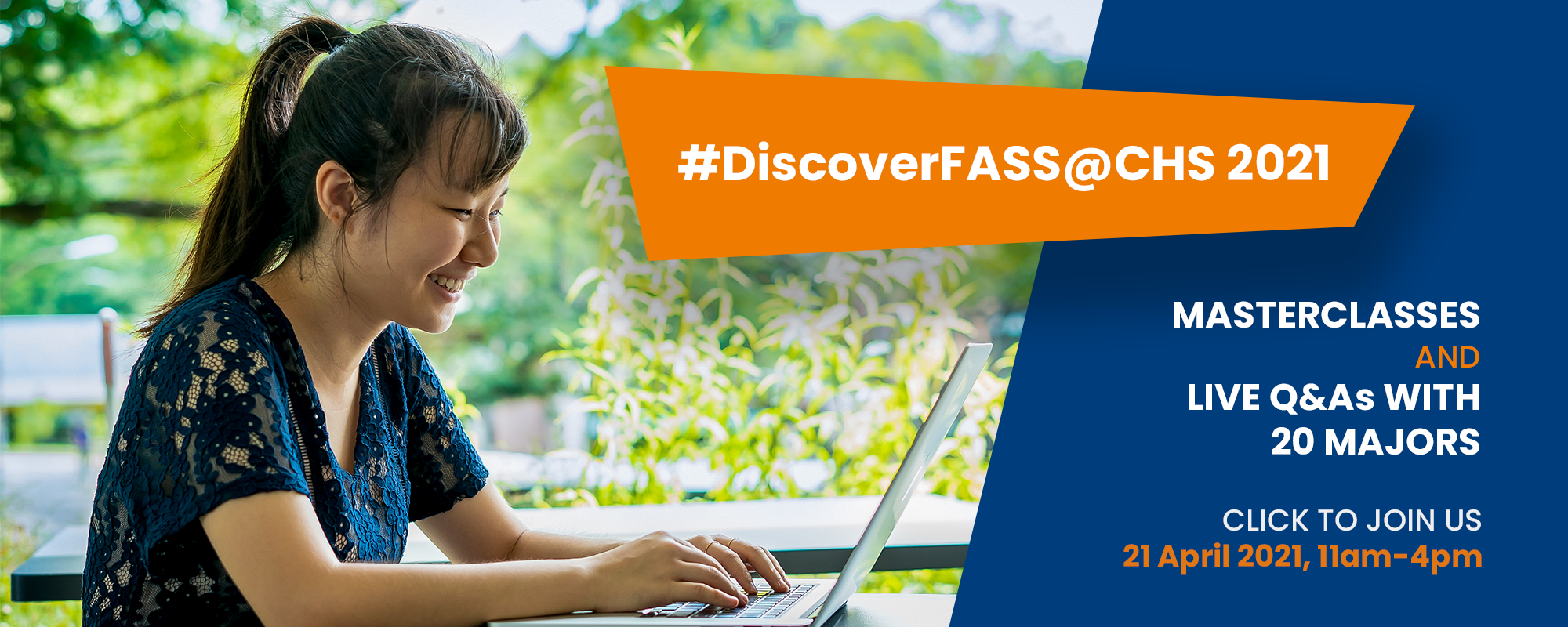
As part of the #DiscoverFASS@CHS campaign leading up to our Open House in May this year, we are holding 'live' Masterclasses presented by three of our award-winning Faculty members, and our Departments are hosting 'live' Q&A sessions for prospective students. These are opportunities not to be missed if you wish to know all you need to know about classes here and the myriad programmes available to you if you are a part of the FASS community. Masterclasses by Award-Winning Faculty
Experience lessons led by our dynamic faculty members.  Roasted Fetuses and Corpse Magic: An Introduction to Supernaturalism in Southeast Asia
Roasted Fetuses and Corpse Magic: An Introduction to Supernaturalism in Southeast Asia
Presented by Associate Professor Irving Johnson, Department of Southeast Asian Studies
The class aims to foreground the fascinating world of beliefs in supernaturalism that pervade Southeast Asian lives. Many of us enjoy telling and listening to creepy stories, watching horror movies on Netflix or dabbling in the esoteric. In this masterclass, we will look at some of the beliefs that structure constructions of the supernatural in modern Southeast Asia. The class revolves around a series of interrelated questions that seek to discover commonalities in popular belief systems and their prominence in the region, linking supernaturalism to larger issues of power, gender and politics. 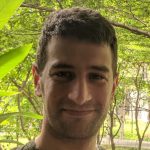 Evidence and Promise Making
Evidence and Promise Making
Presented by Assistant Professor Zachary Barnett, Department of Philosophy
Promise-making is an important part of life. We make promises to our friends, families, and significant others, and they make promises to us. We will look at a puzzle that arises when we think about "promising against the odds": How should I feel about making a promise, if I know that most of the people in my exact situation end up breaking that promise? For example, suppose that I promise to quit smoking cigarettes. At the same time, I know that most people who sincerely promise to quit smoking do not actually succeed on their first attempt. Should I believe that I will be the exception to the rule? If not, am I justified in making the promise in the first place? And if I do make the promise, should my friends and family believe me? These questions arise in many different contexts, ranging from the superficial to the serious, involving addiction or relationships. 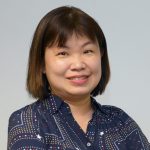 Making Sense of Self-Awareness and What That May Mean
Making Sense of Self-Awareness and What That May Mean
Presented by Dr Peace Wong Yuh Ju, Department of Social Work
In this talk, Dr Wong will attempt to broaden our understanding about ‘self’ and what that may mean to us. It is not uncommon for students in wanting to gain greater self-awareness with the attempt to learn more about one’s beliefs/feelings in relation to the observed world around us. Yet, how do we deepen our understanding of ‘self’, given that we are both familiar with who we are, and yet at times finding ourselves baffled by our reactions, and wondered why we respond in a certain manner? We will briefly discuss the various influences that may impact our values and beliefs, as well as consider what knowing your ‘self’ may mean to you.
To register for Masterclasses, click here.
Live Q&As with our Departments
Meet key Faculty and student representatives of every FASS Department and major programme in their respective Zoom meeting rooms and ask them specific questions about the requirements, content and value of the programmes they offer.
Department of Chinese Studies
The Chinese Studies Department provides training in diverse areas of Chinese Studies and Chinese Language, with the aim of preparing students for employment in a wide range of sectors. Graduates are offered career opportunities as professionals in the educational and business sectors, academia, the translation service industry and the mass media.
Join the Department's #DiscoverFASS@CHS 2021 'Live' Q&A session on 21 April (2-4 pm) here.
In the meantime, visit the College of Humanities Programmes page for more details on what this Department offers.
Department of Communications and New Media
Communications and New Media (CNM) at the National University of Singapore is the only Department in Southeast Asia that offers media studies, interactive media design, cultural studies, and communication management with a focus on new media.
Join the Department's #DiscoverFASS@CHS 2021 'Live' Q&A session on 21 April (2-4 pm) here.
In the meantime, visit the College of Humanities Programmes page for more details on the programmes offered by this Department.
Department of Economics
The Department of Economics has an established reputation as one of the largest and leading departments of Economics in the Asia-Pacific region. Faculty members’ research areas span a wide range of economic fields, with strength in the core areas of microeconomics, macroeconomics and econometrics, as well as in particular fields such as game theory and industrial organization, labor economics, education, financial economics, and growth theory and development with special reference to Asia.
The Department's #DiscoverFASS@CHS 2021 'Live' Q&A session on 21 April (2-4 pm) here. This session includes discussion of the Data Science and Economics Cross-Disciplinary Programme (DSE-XDP).
In the meantime, visit the College of Humanities Programmes page for more details on the programmes offered by this Department.
Department of English Language, Literature and Theatre Studies
The Department of English Language, Literature and Theatre Studies houses three undergraduate majors and three graduate programmes. The English Language major offers an education in linguistics, the study of human language. The undergraduate programme in English Literature is designed to provide a broad foundation in reading and analysing texts of all kinds. And, the Theatre Studies curriculum delivers education in all areas of theatre and performance history, production and interpretation.
The Department's #DiscoverFASS@CHS 2021 'Live' Q&A session on 21 April (2-4 pm) here.
In the meantime, visit the College of Humanities Programmes page for more details on the programmes offered by this Department.
Department of Geography
Modules in the Department of Geography are organized along four areas of enquiry: environmental processes and change; global political economy; society and culture; and regional specializations (with a focus on Asia). The Department also offers a Field Studies module in which students travel to countries in the region such as Thailand and Malaysia where they conduct field work and collect research material over a 3-5 week period. Home-stays and visits to local universities and key sites of interest are part of the overseas learning experience it delivers.
The Department's #DiscoverFASS@CHS 2021 'Live' Q&A session on 21 April (2-4 pm) here. This session includes discussion of the Bachelor of Environmental Studies Programme (BES-XDP).
In the meantime, visit the College of Humanities Programmes page for more details on the programmes offered by this Department.
Department of History
The Department of History offers training at undergraduate and graduate levels, and its teaching and research expertise lies primarily in the history of Southeast and East Asia, but there is strong selection of module offerings in European, American, and military history, as well as the history of art, business, religion, science and technology.
The Department's #DiscoverFASS@CHS 2021 'Live' Q&A session on 21 April (2-4 pm) here.
In the meantime, visit the College of Humanities Programmes page for more details on the programmes offered by this Department.
Department of Japanese Studies
Founded in 1981, the Department of Japanese Studies is one of the largest area studies departments devoted to the study of Japan in the Asia-Pacific region, and offers BA, MA and PhD degrees in Japanese Studies taught by specialists with qualifications from leading universities around the world.
The Department's #DiscoverFASS@CHS 2021 'Live' Q&A session on 21 April (2-4 pm) here.
In the meantime, visit the College of Humanities Programmes page for more details on the programmes offered by this Department.
Department of Malay Studies
The Department of Malay Studies actively engages in research on a wide range of issues concerning the Malay world from a multi-disciplinary perspective, promotes exchanges with centres of Malay studies worldwide, and encourages the development of new and alternative approaches to the understanding of Malay history, economy, politics, society and culture.
The Department's #DiscoverFASS@CHS 2021 'Live' Q&A session on 21 April (2-4 pm) here.
In the meantime, visit the College of Humanities Programmes page for more details on the programmes offered by this Department.
Department of Philosophy
The Department of Philosophy is one of Asia’s leading centres for philosophical education and research. It is the top English-language philosophy program in Asia, and the inaugural Asian member of the Australasian Association of Philosophy. The faculty members have a broad range of interests spanning diverse philosophical traditions, offer a philosophical education spanning diverse philosophical traditions.
The Department's #DiscoverFASS@CHS 2021 'Live' Q&A session on 21 April (2-4 pm) here. This session will also include discussion of the Philosophy, Politics, and Economics Cross-Disciplinary Programme (PPE-XDP).
In the meantime, visit the College of Humanities Programmes page for more details on the programmes offered by this Department.
Department of Political Science
The Department of Political Science offers modules in comparative politics, international relations, political theory, and public administration. It also houses the Global Studies Programme, a new, multidisciplinary field of inquiry that examines the processes and effects of globalisation across political, economic, social and cultural domains around the world.
The Department's #DiscoverFASS@CHS 2021 'Live' Q&A session on 21 April (2-4 pm) here. This session includes discussion of the Global Studies Programme.
In the meantime, visit the College of Humanities Programmes page for more details on the programmes offered by this Department.
Department of Psychology
The Psychology programme at NUS aims to equip students with knowledge in the key areas of psychology (such as human biological processes, developmental processes, social processes, cognitive processes, mental health and adjustment of individuals) as well as an understanding of the applications of psychology. It also develops skills for undertaking studies of behaviour, including statistical skills and the use of computers for data analyses.
The Department's #DiscoverFASS@CHS 2021 'Live' Q&A session on 21 April (2-4 pm) here.
In the meantime, visit the College of Humanities Programmes page for more details on the programmes offered by this Department.
Department of Social Work
The main objective of the undergraduate General and Honours degree programme offered by the Department of Social Work is to equip its graduates for entry into the social work profession at the direct-service level. Students are exposed to social service visits, skills laboratory training, fieldwork placements and module projects, among other applied learning methods.
Go to this Department's #DiscoverFASS@CHS 2021 'Live' Q&A session on 21 April (2-4 pm) here.
In the meantime, visit the College of Humanities Programmes page for more details on the programmes offered by this Department.
Department of Sociology
The Department of Sociology is a diverse, dynamic and innovative research and teaching unit with strong expertise in research on Southeast Asia, East Asia and South Asia as well as on Singapore society. One of the largest Sociology departments in the world, it offers comprehensive undergraduate, honours and graduate programmes, led by a group of dedicated and creative researchers and educators.
The Department's #DiscoverFASS@CHS 2021 'Live' Q&A session on 21 April (2-4 pm) here.
In the meantime, visit the College of Humanities Programmes page for more details on the programmes offered by this Department.
South Asian Studies Programme
South Asian Studies, as offered by the South Asian Studies Programme (SASP), focuses on the region comprising India, Pakistan, Bangladesh, Sri Lanka, Nepal, Bhutan and the Maldives. At the undergraduate level, students are offered a range of modules in economics, religious and cultural studies, history, international relations, philosophy, politics and gender studies. The aim is to provide graduates of the programme with a broad understanding of the region from different points of view - knowledge that will be useful in dealing with this changing region in the 21st century.
The Department's #DiscoverFASS@CHS 2021 'Live' Q&A session on 21 April (2-4 pm) here.
In the meantime, visit the College of Humanities Programmes page for more details on the programmes offered by this Department.
Department of Southeast Asian Studies
The Department of Southeast Asian Studies is located in the Asian Studies Division of the Faculty of Arts and Social Sciences, and offers distinctive programmes for anyone interested in studying Southeast Asia, from the undergraduate to the PhD level.
The Department's #DiscoverFASS@CHS 2021 'Live' Q&A session on 21 April (2-4 pm) here.
In the meantime, visit the College of Humanities Programmes page for more details on the programmes offered by this Department.
Centre for Language Studies
The Centre for Language Studies was established in 2001 to serve the foreign language needs of the Faculty of Arts and Social Sciences and has today over 80 full-time and part-time faculty members. It teaches thirteen different languages - Arabic, Bahasa Indonesia, Chinese, French, German, Hindi, Japanese, Korean, Malay, Spanish, Tamil, Thai and Vietnamese - to app. over 3,300 students per semester and thus helps them acquire a very valuable economic and social resource in today's world of growing globalisation and internationalisation.
The Department's #DiscoverFASS@CHS 2021 'Live' Q&A session on 21 April (2-4 pm) here.
In the meantime, visit the College of Humanities Programmes page for more details on the programmes offered by this Department.




